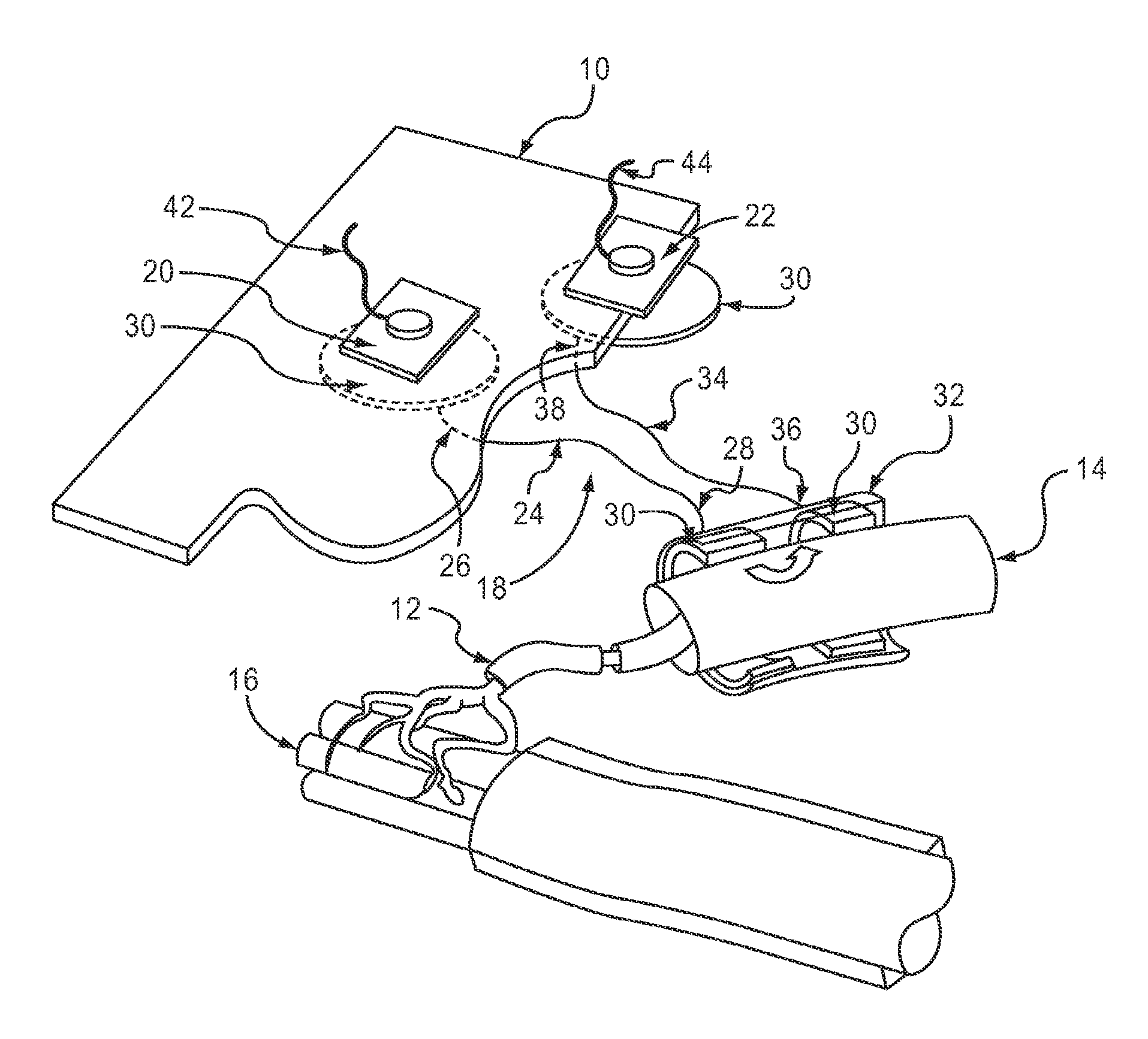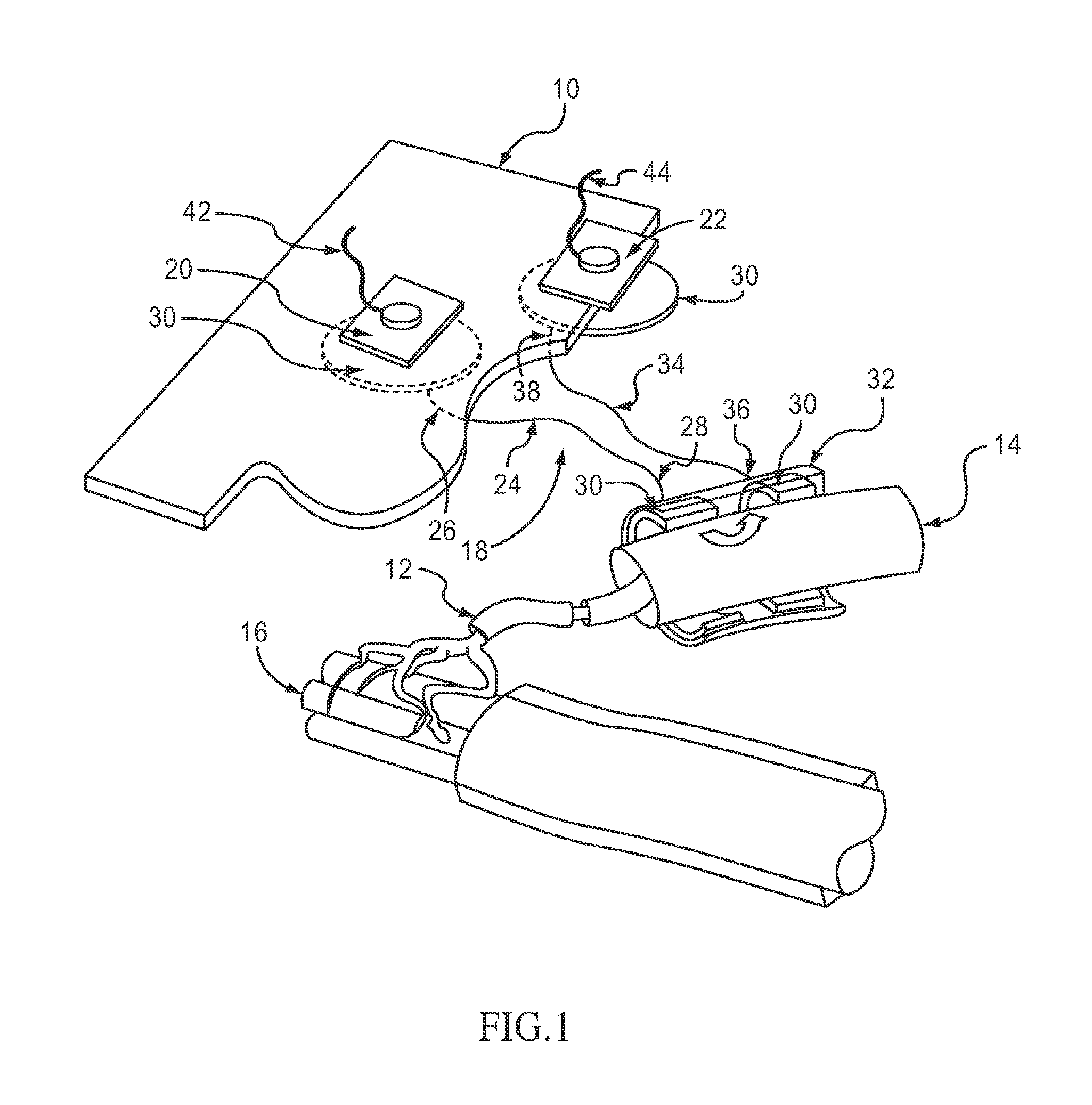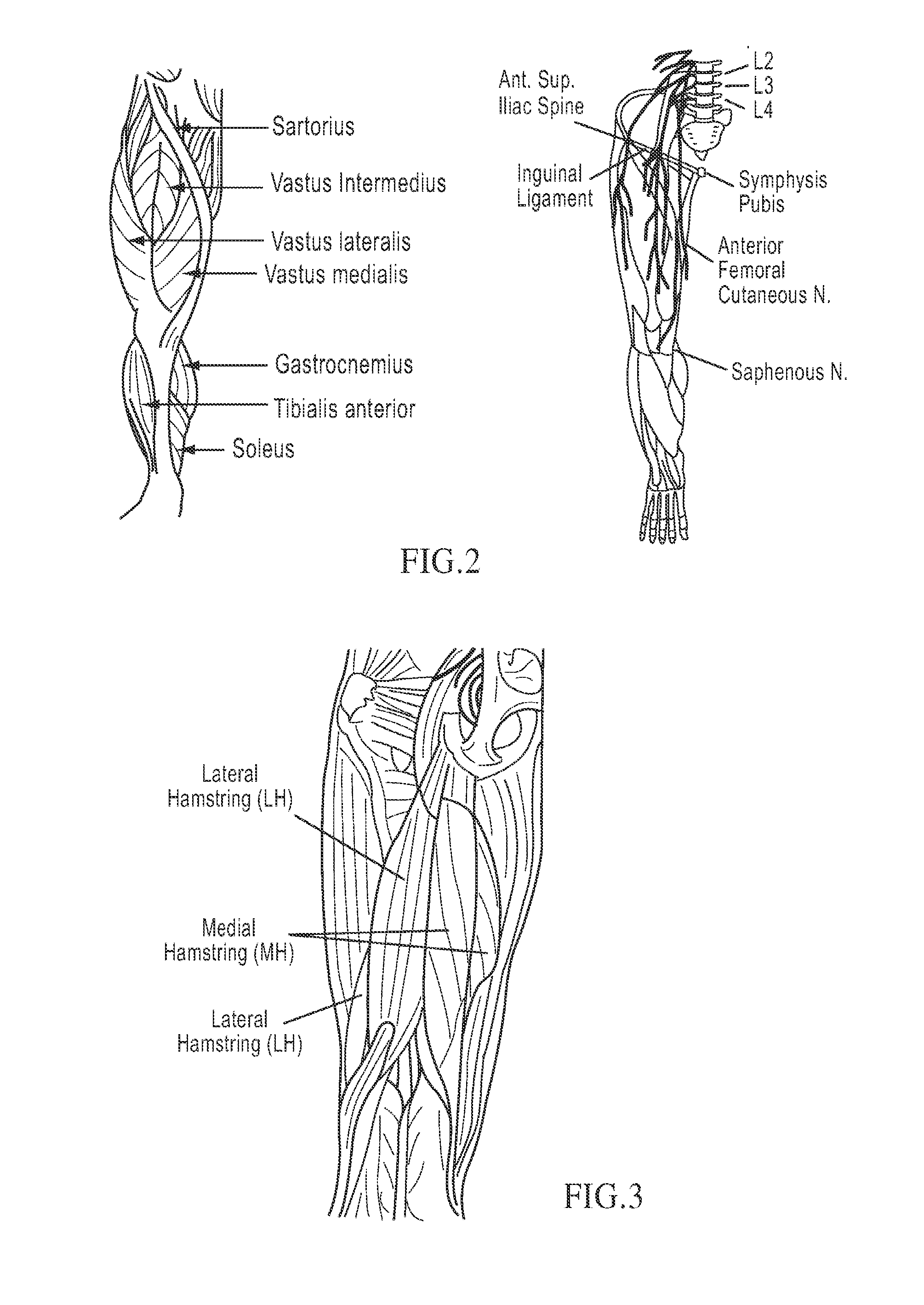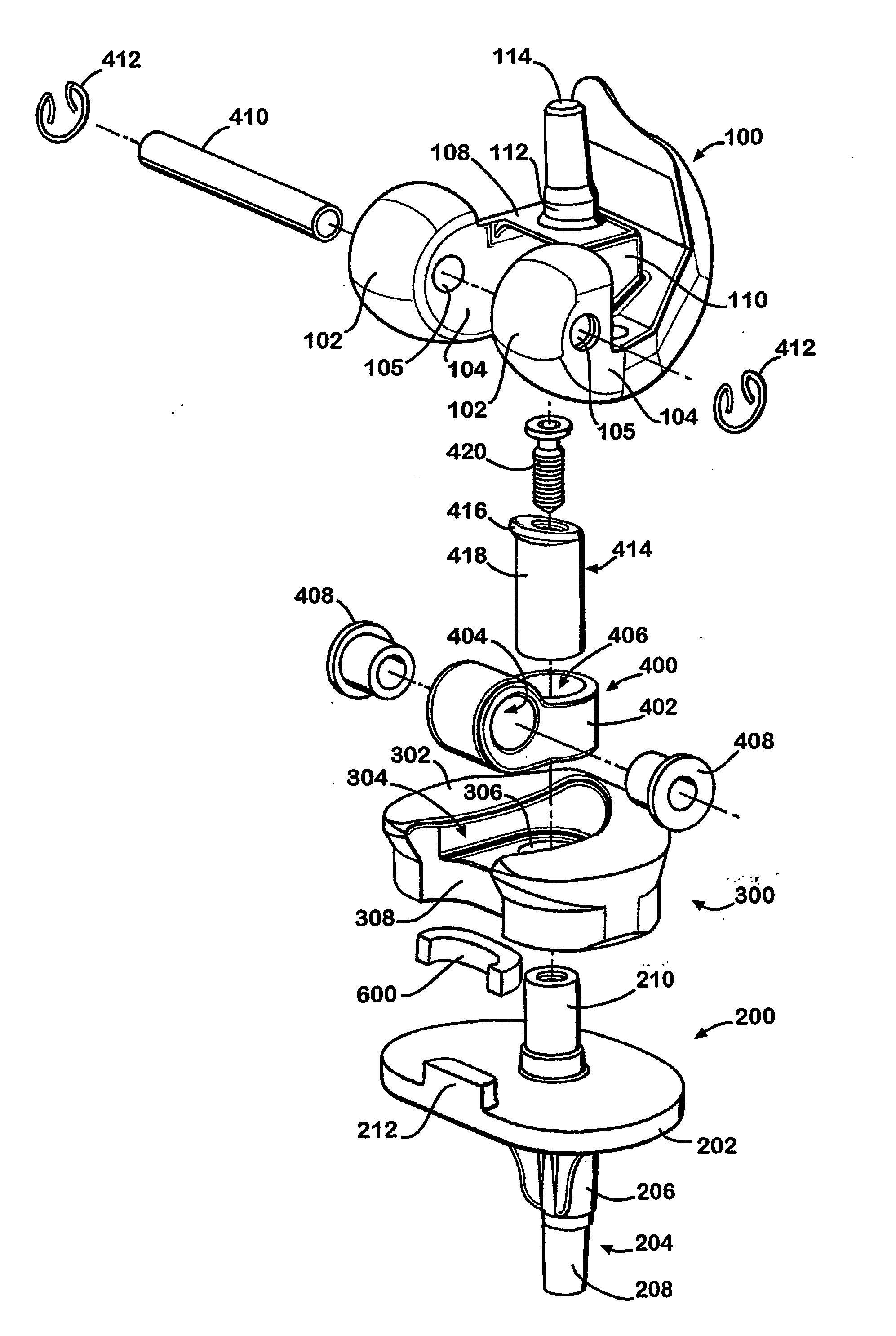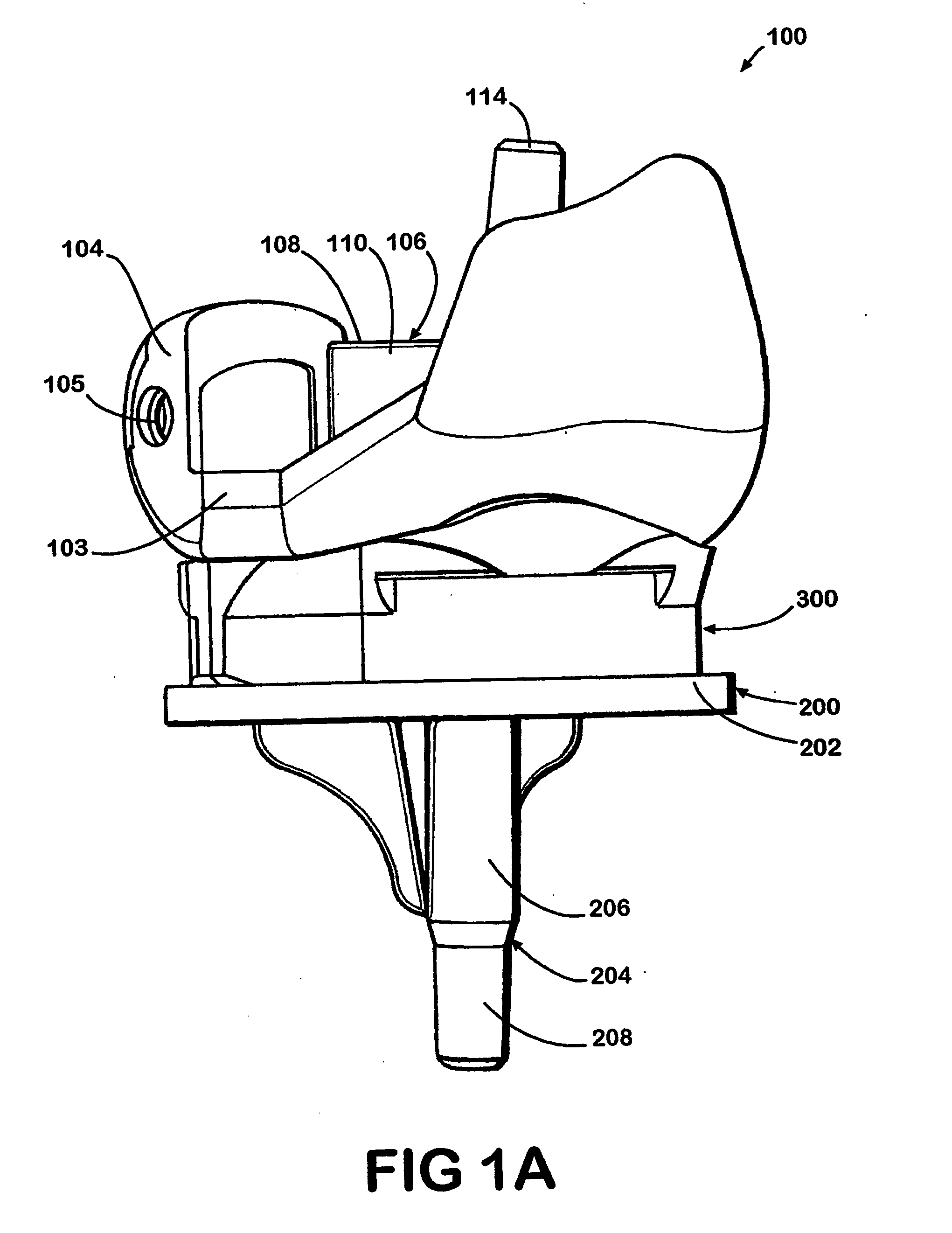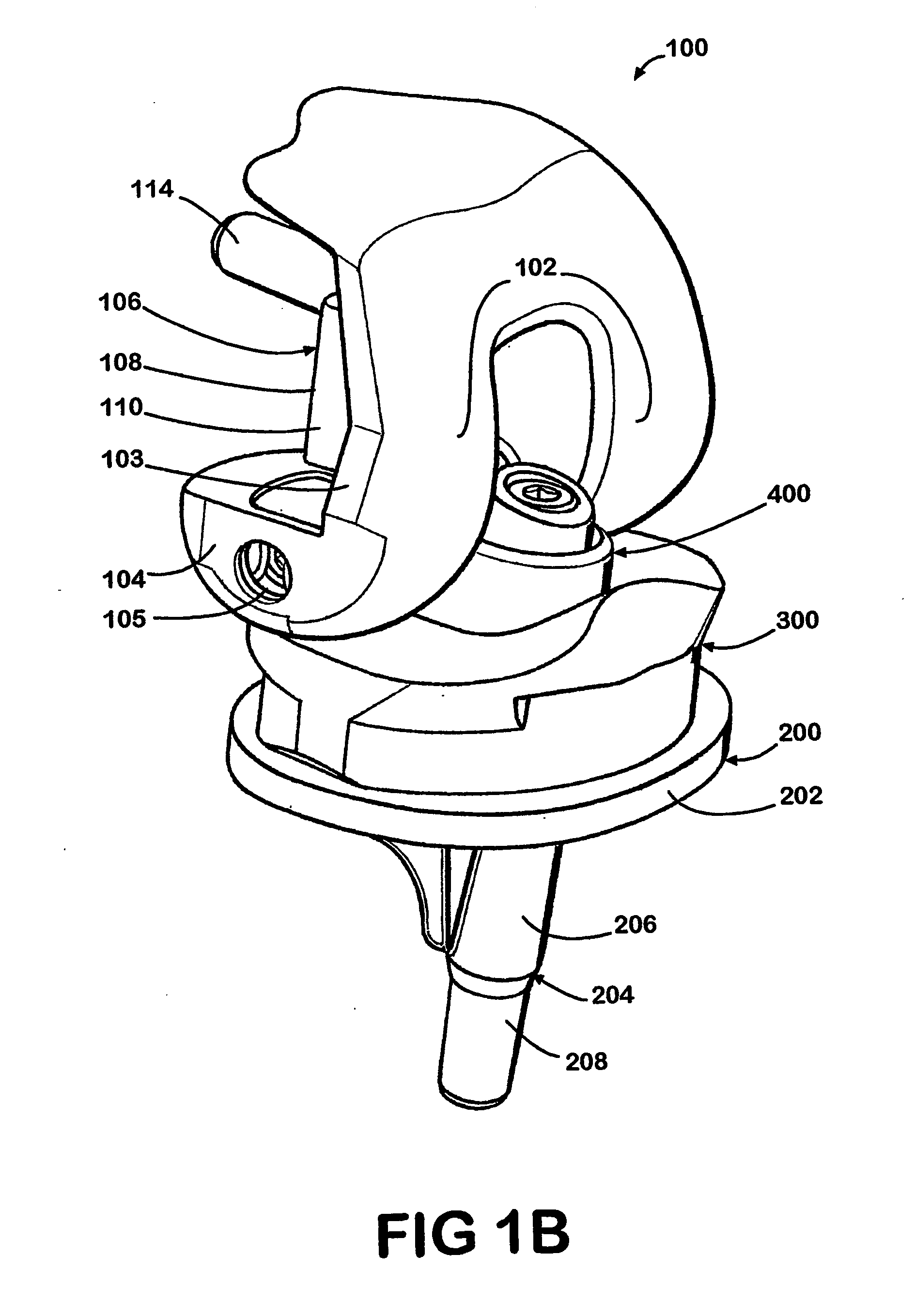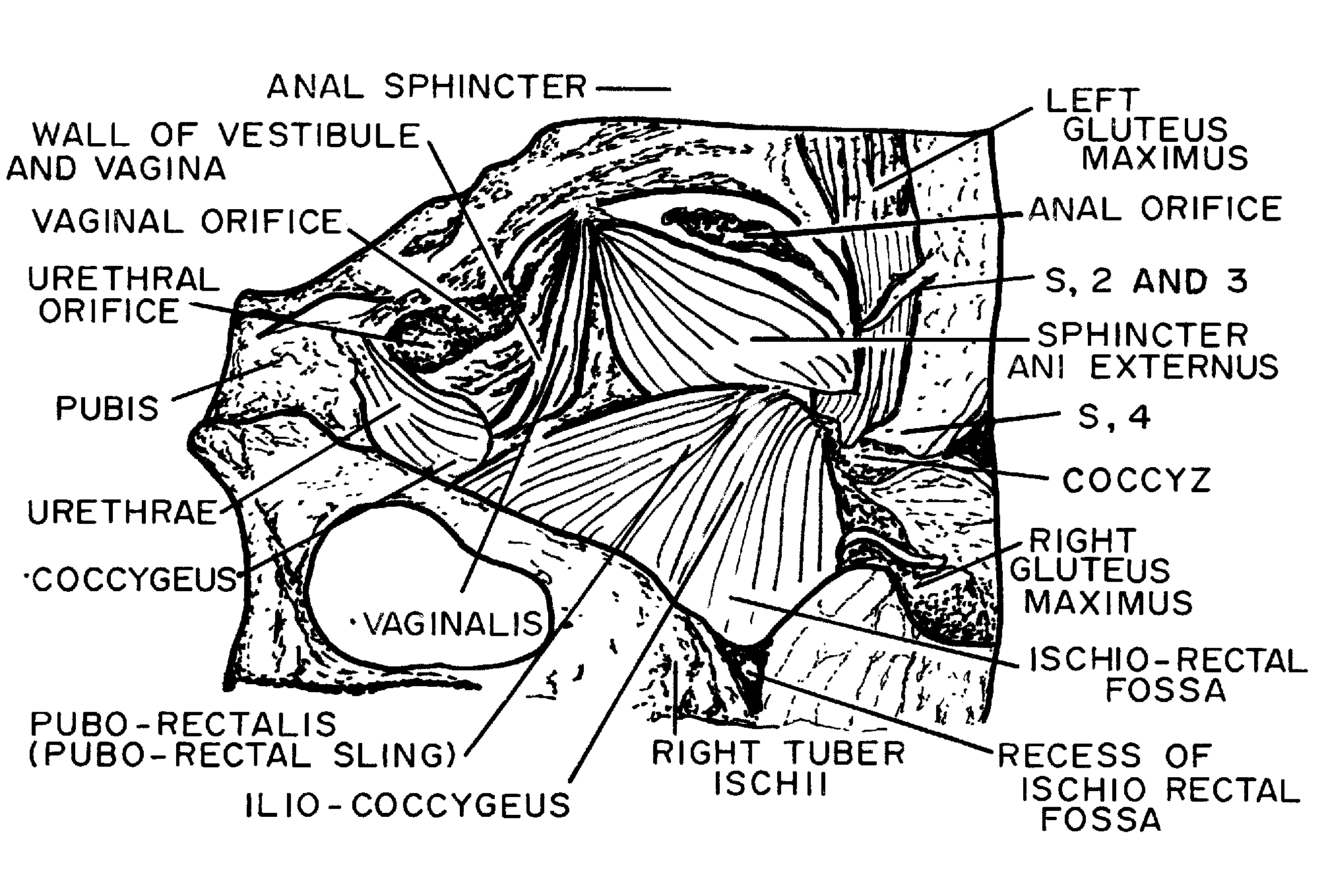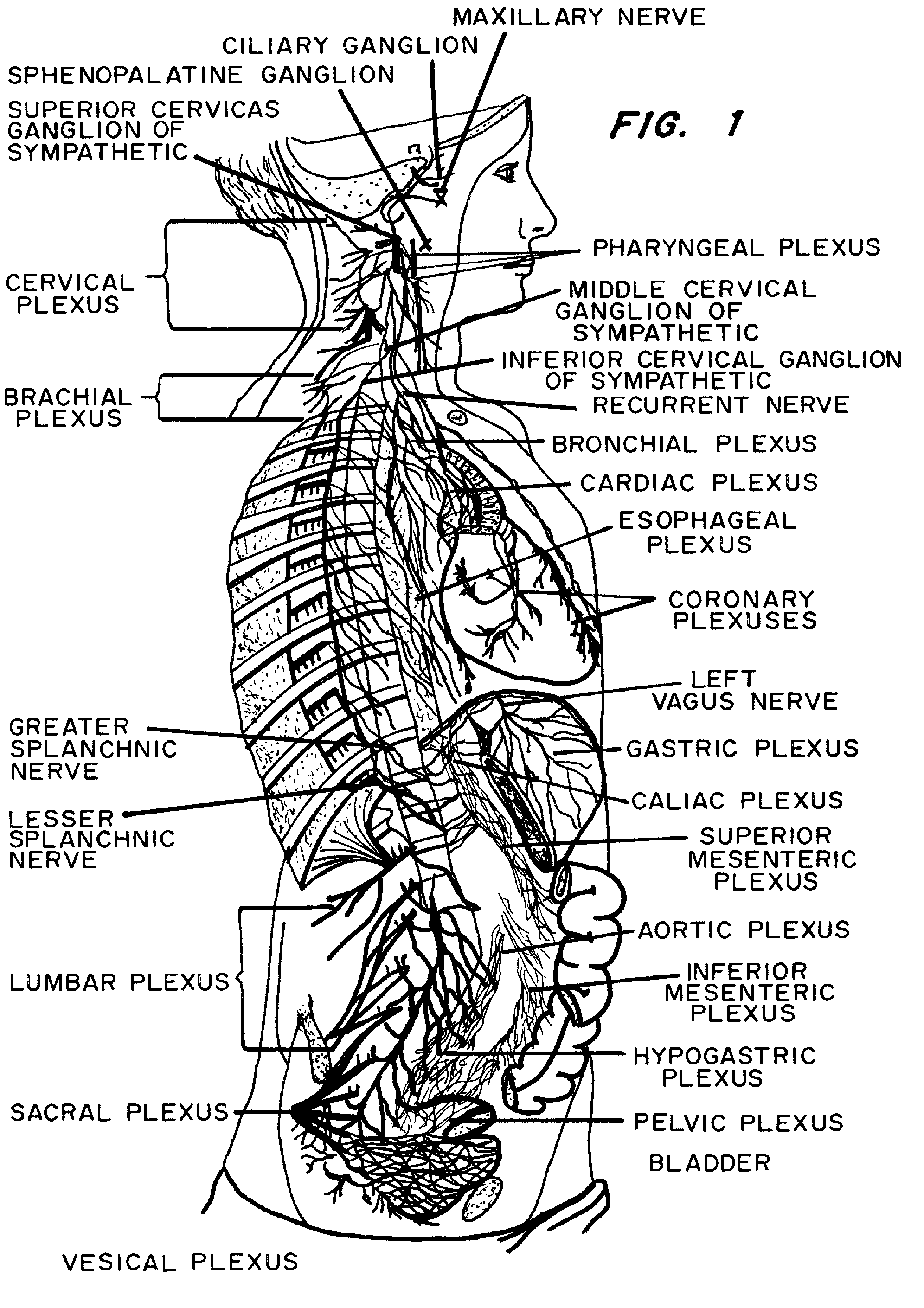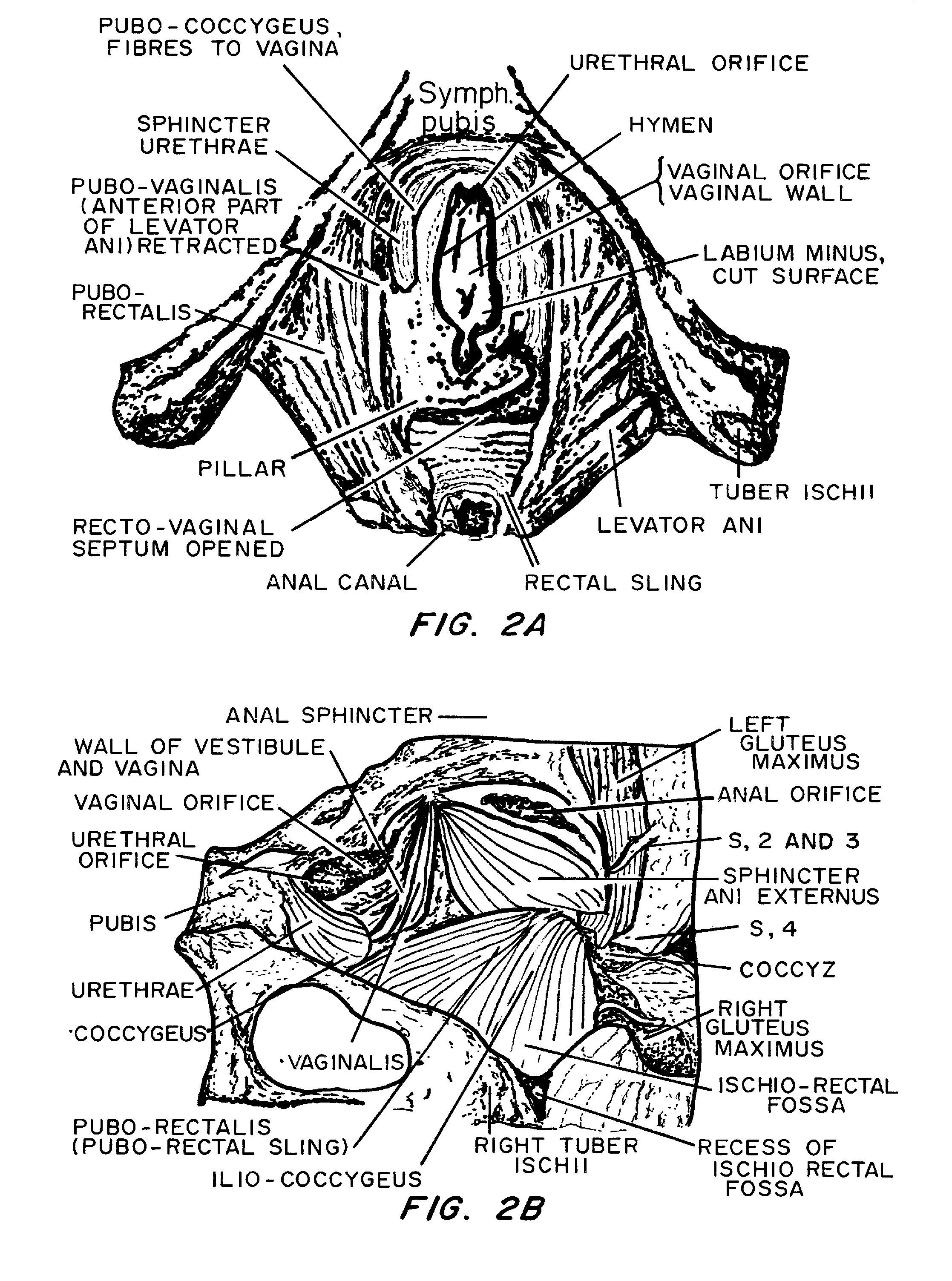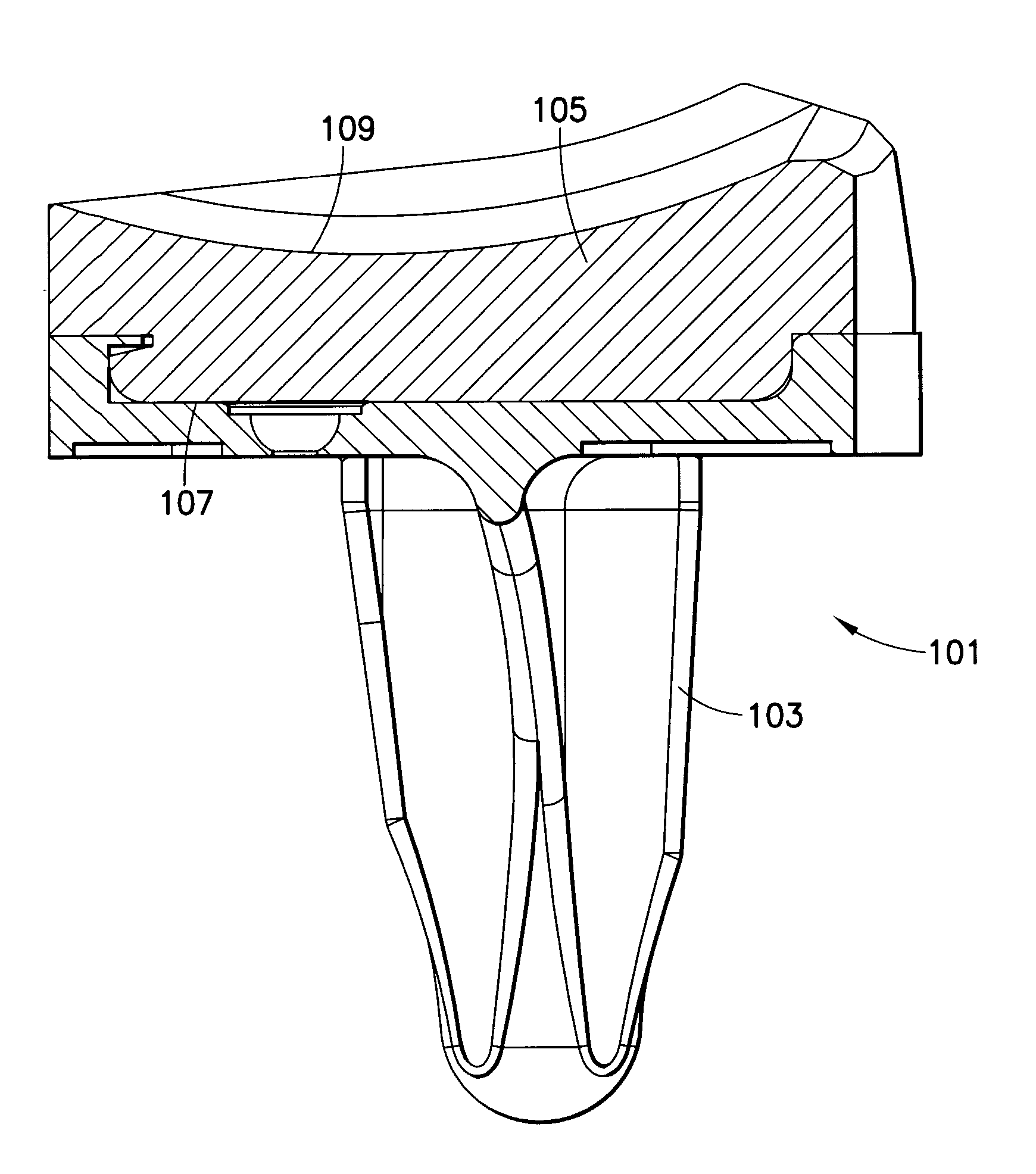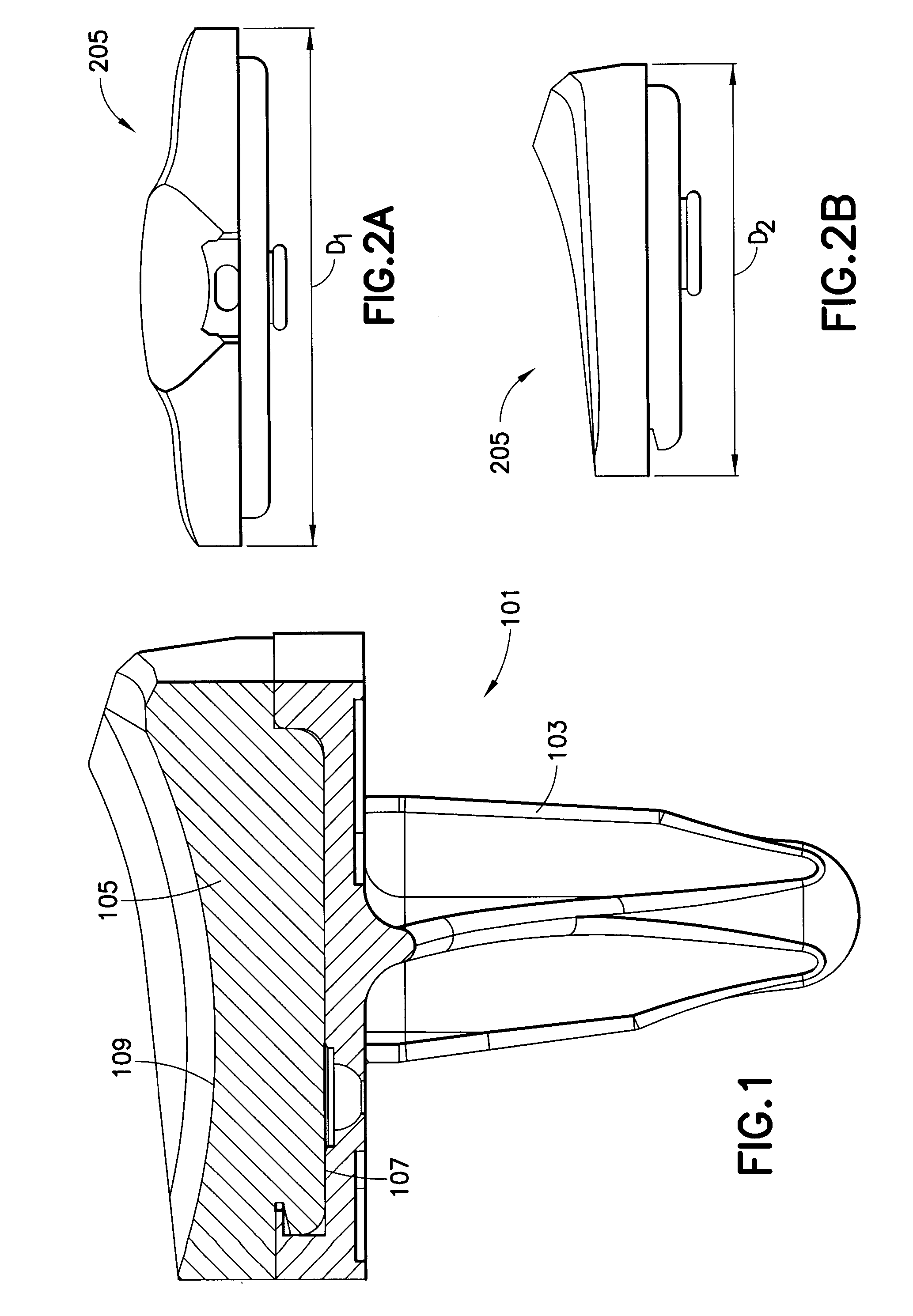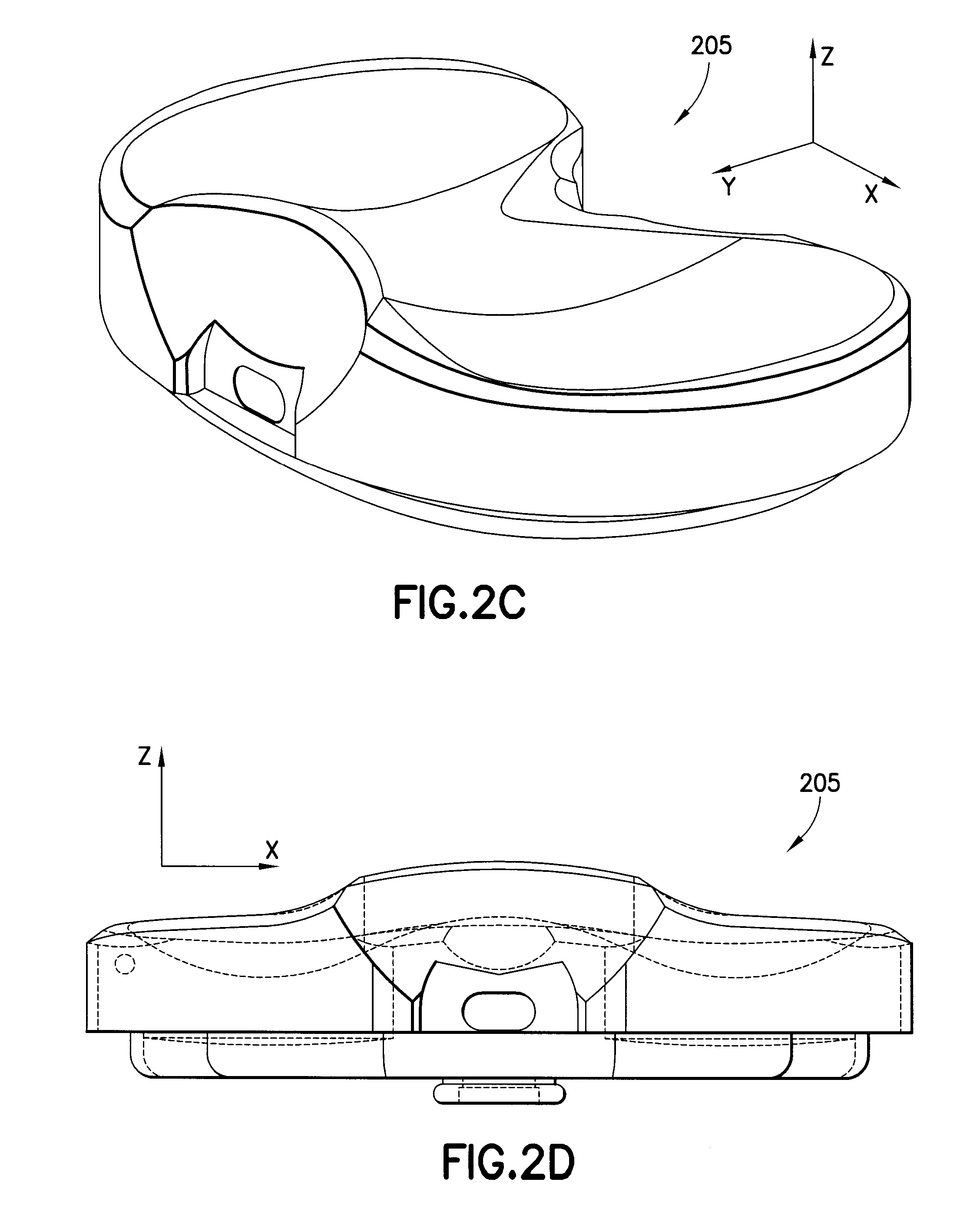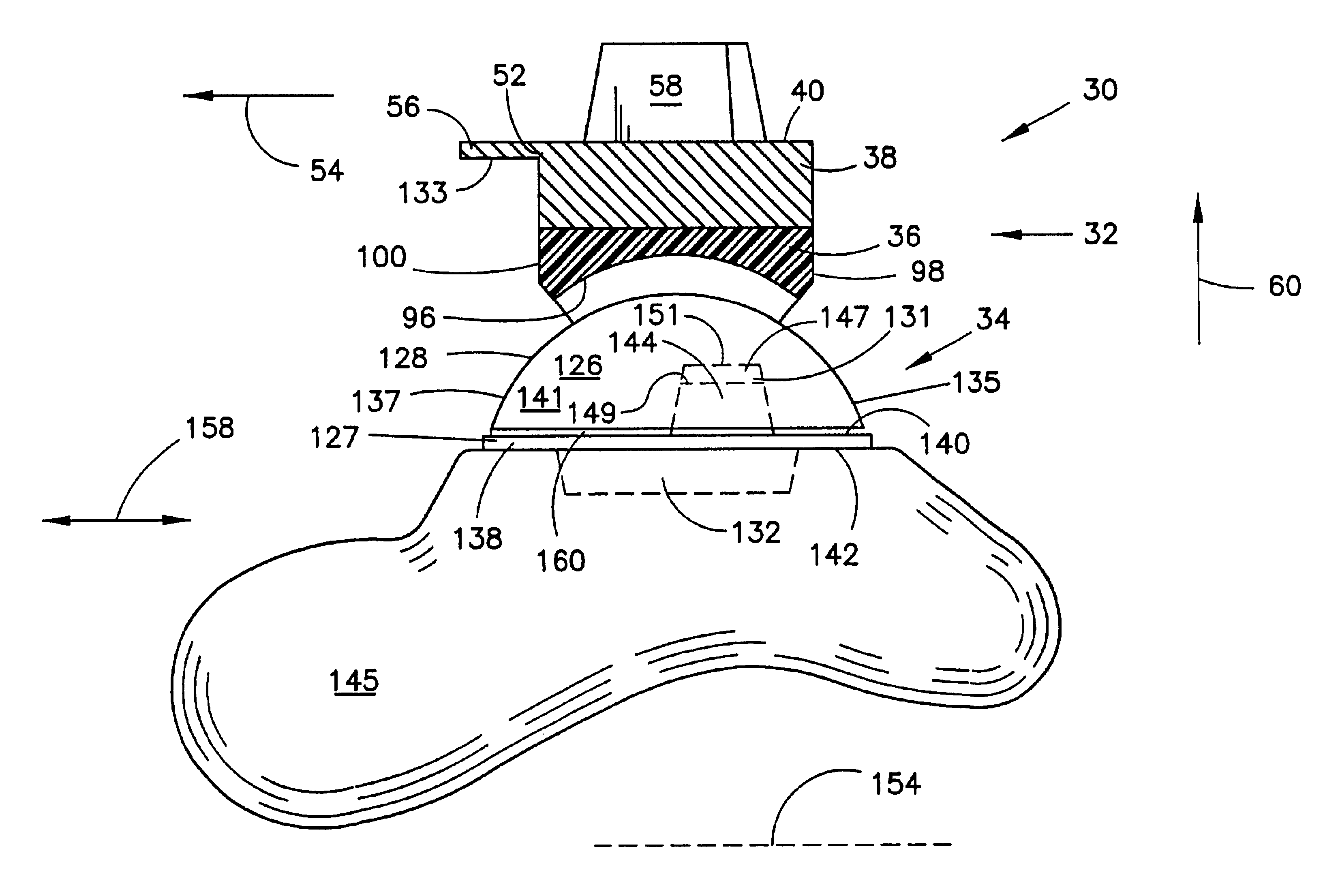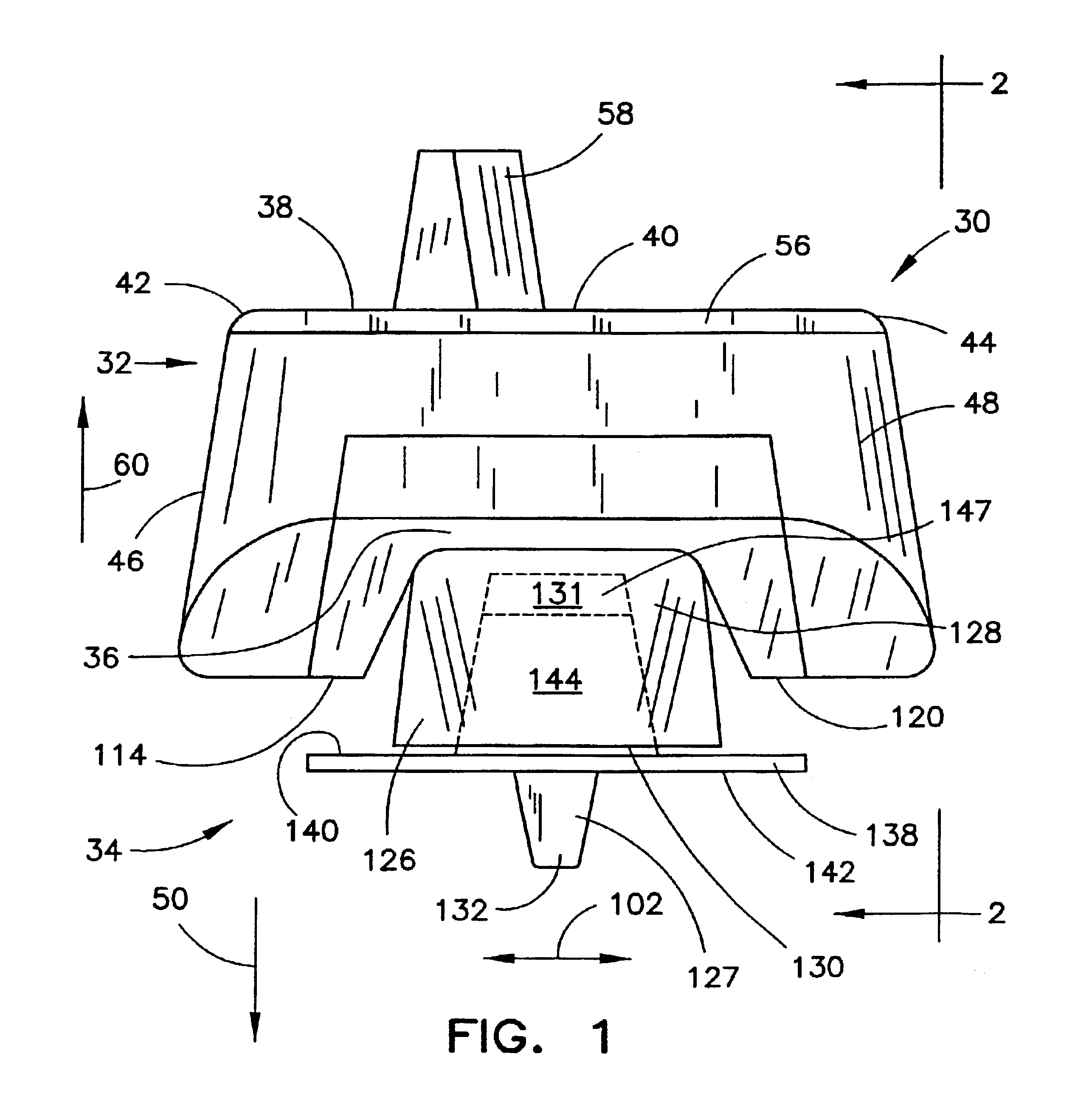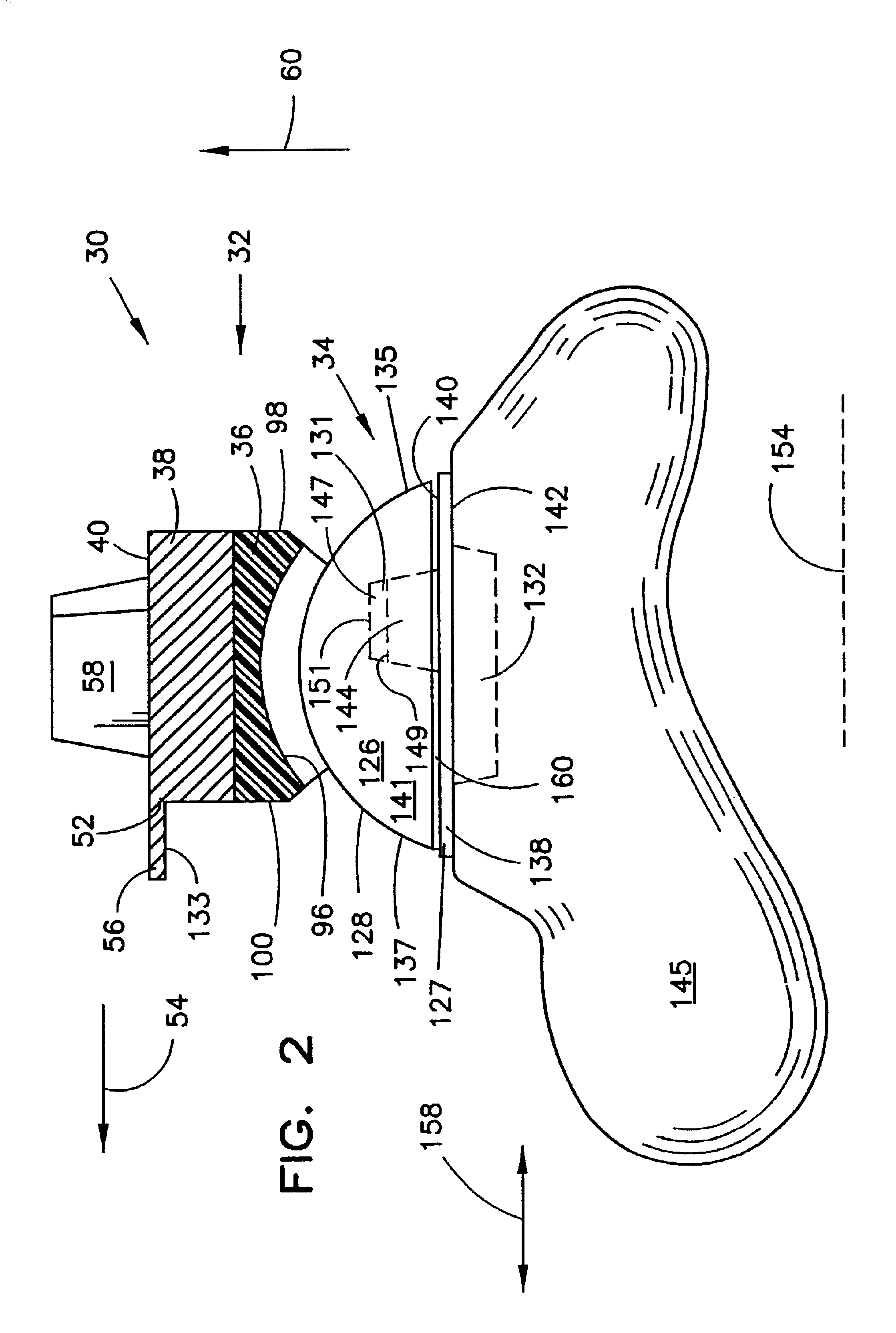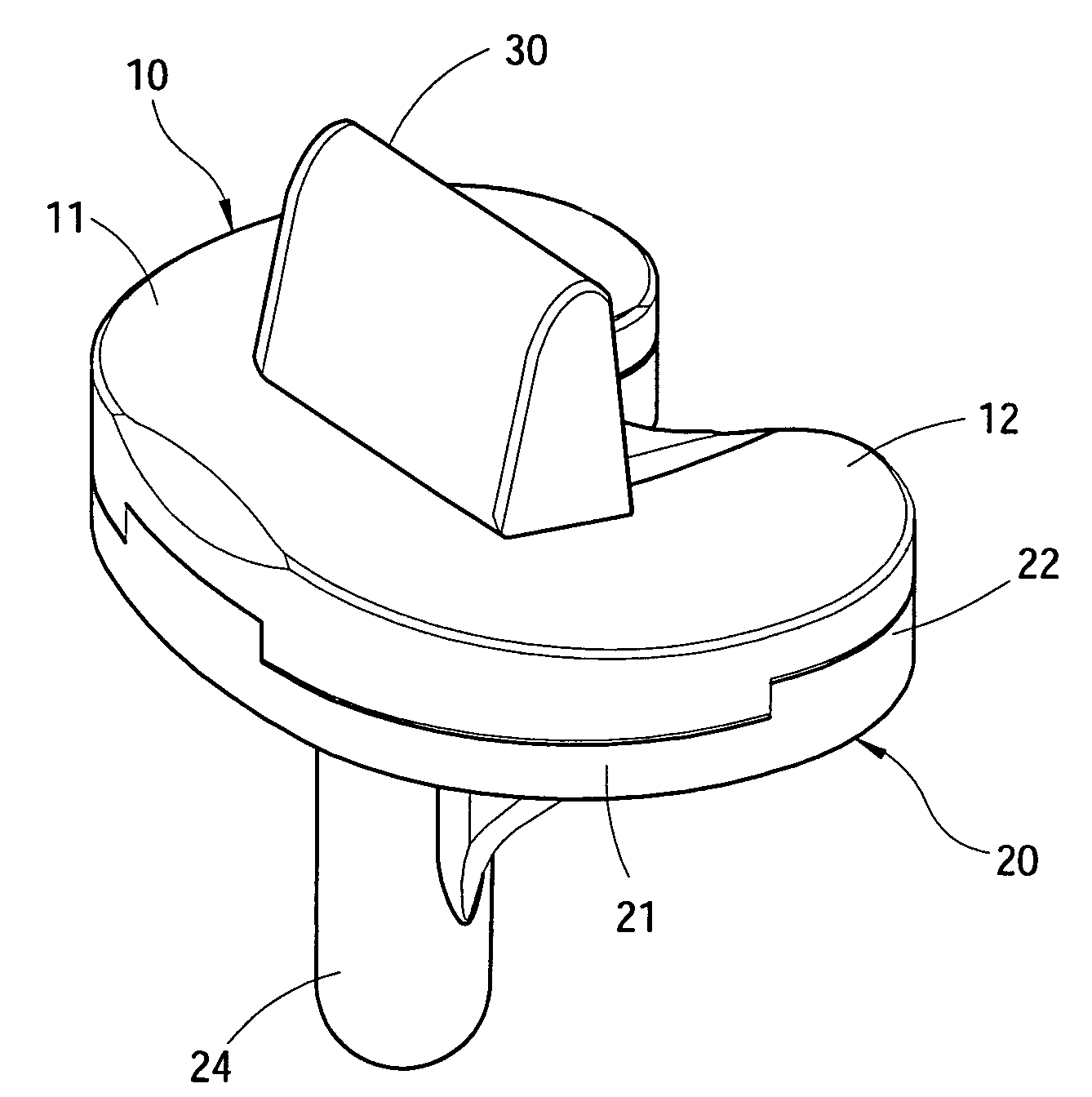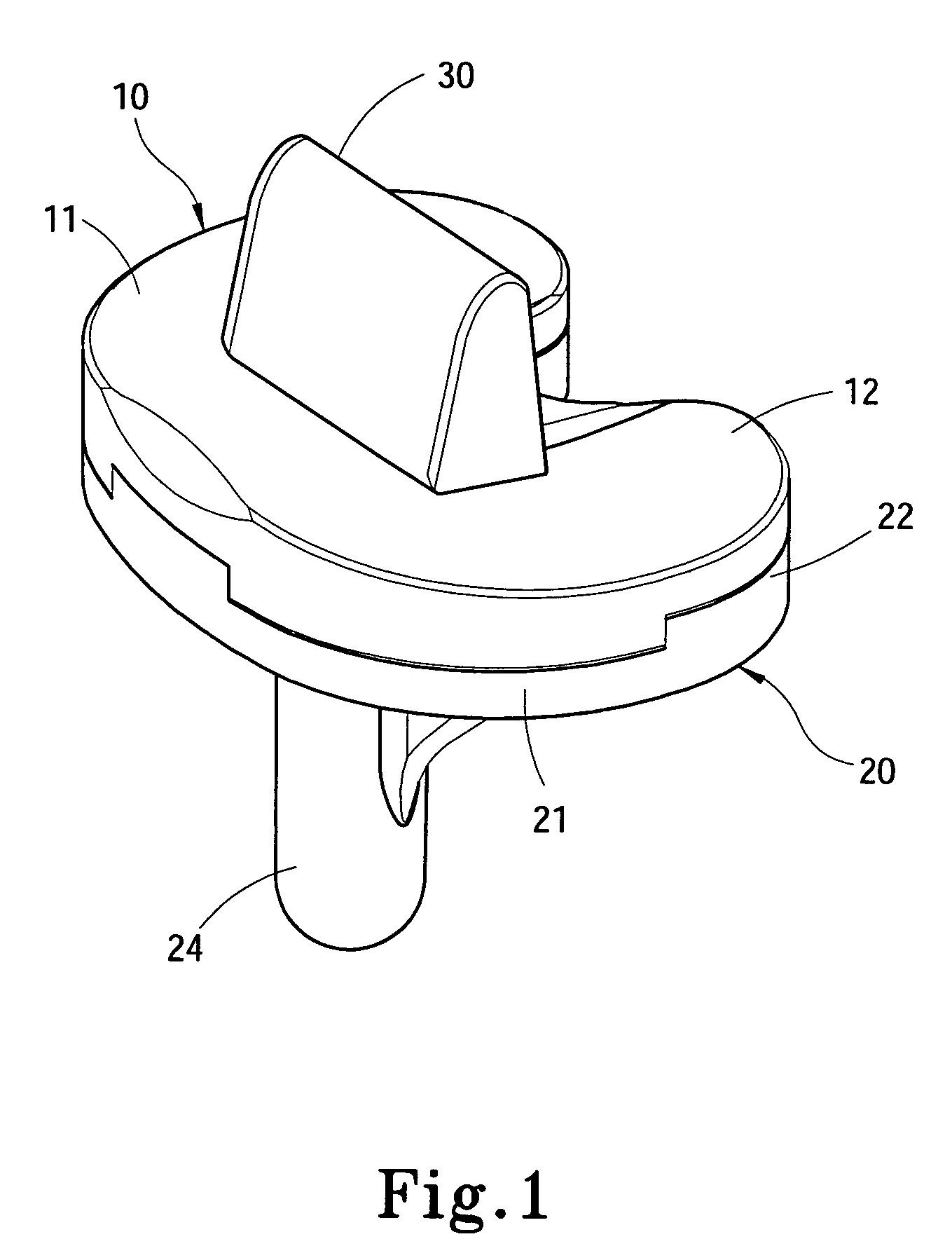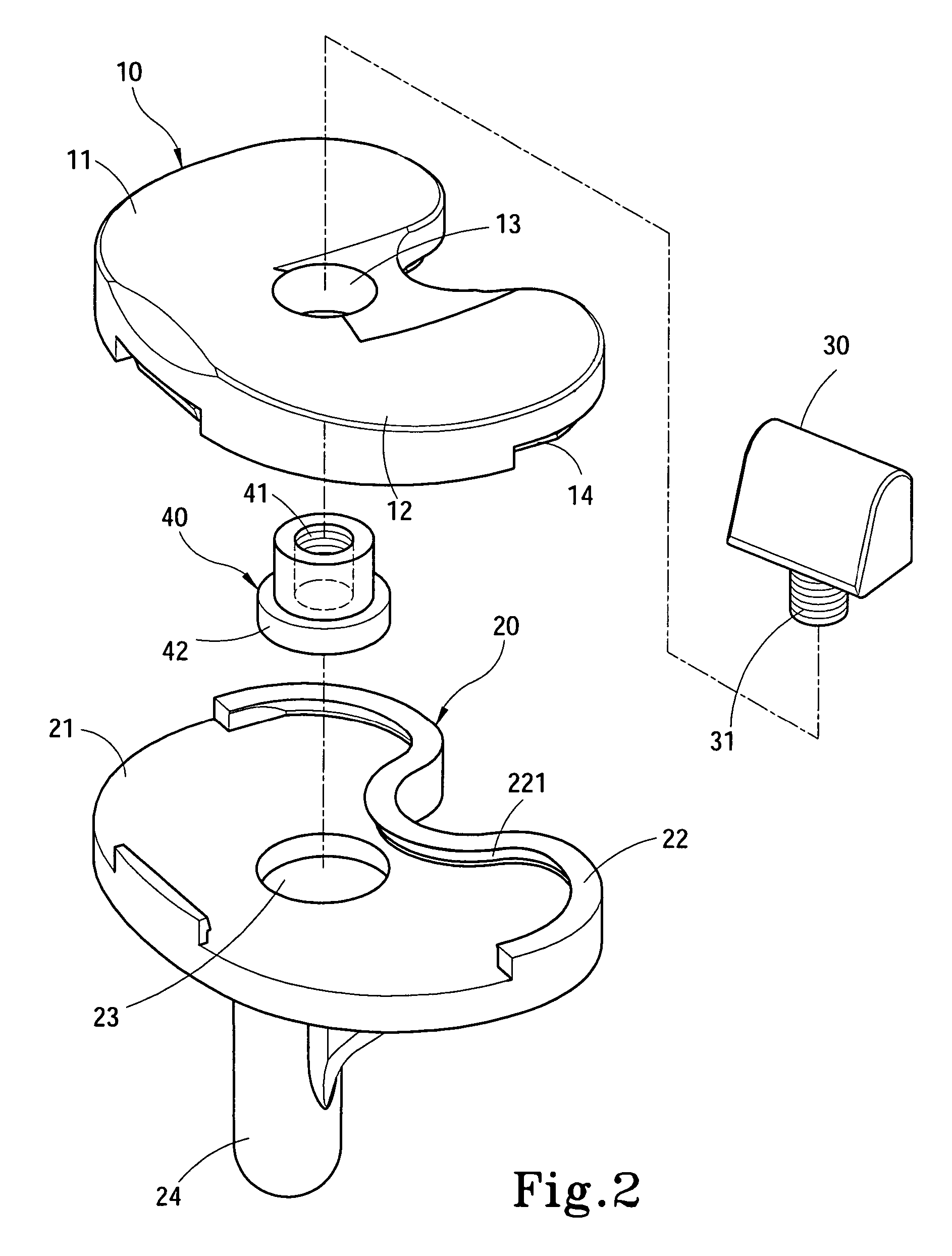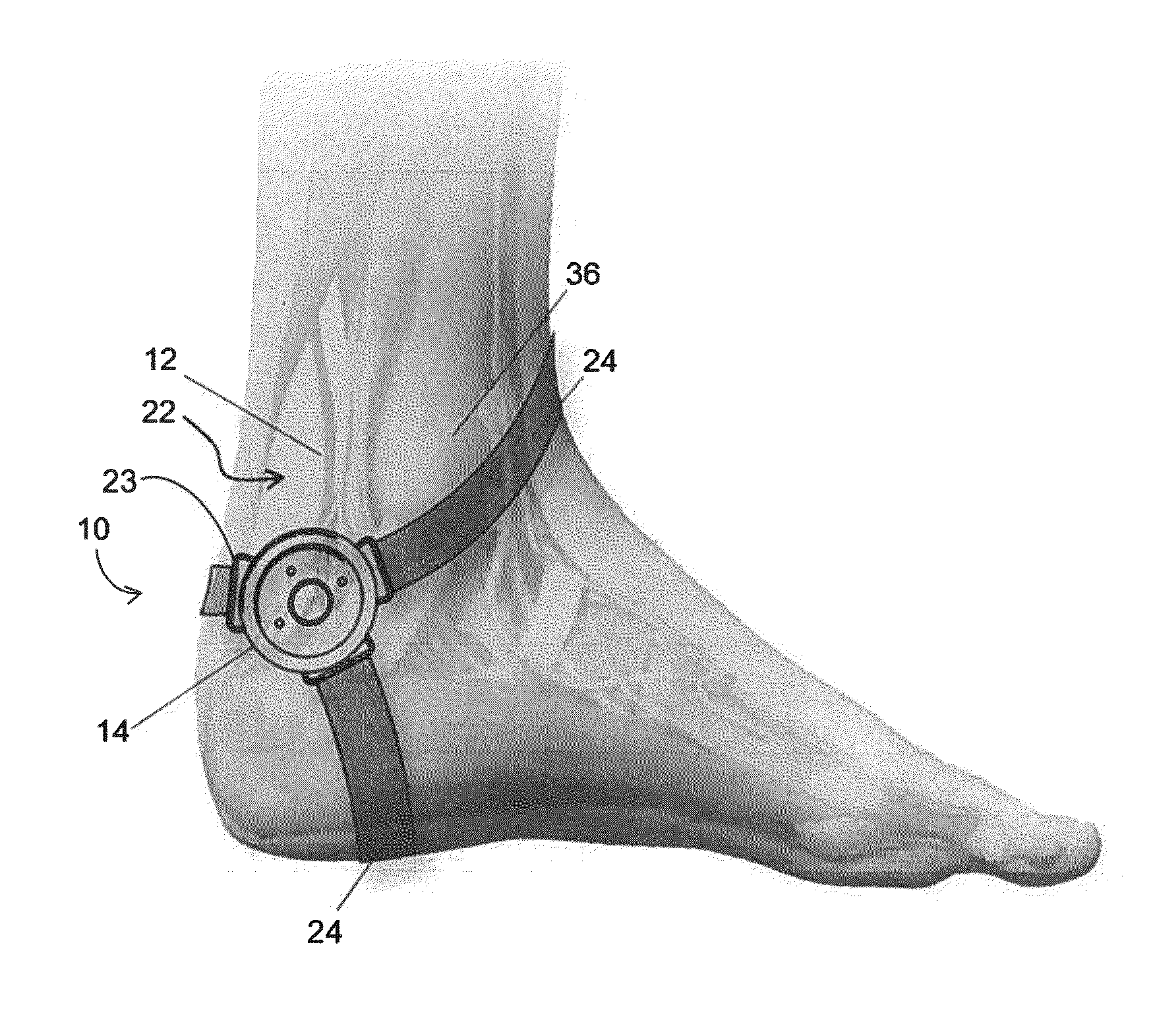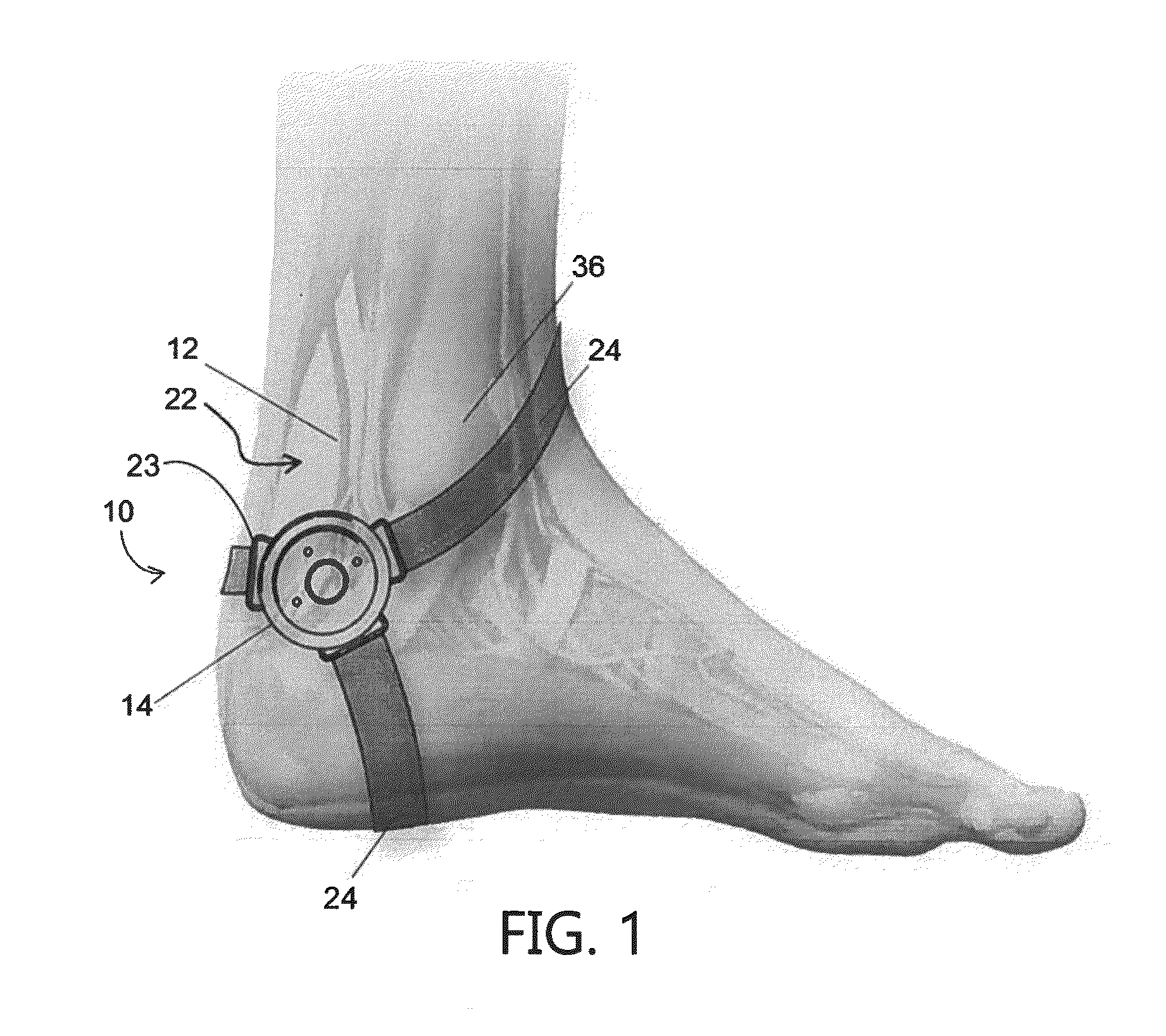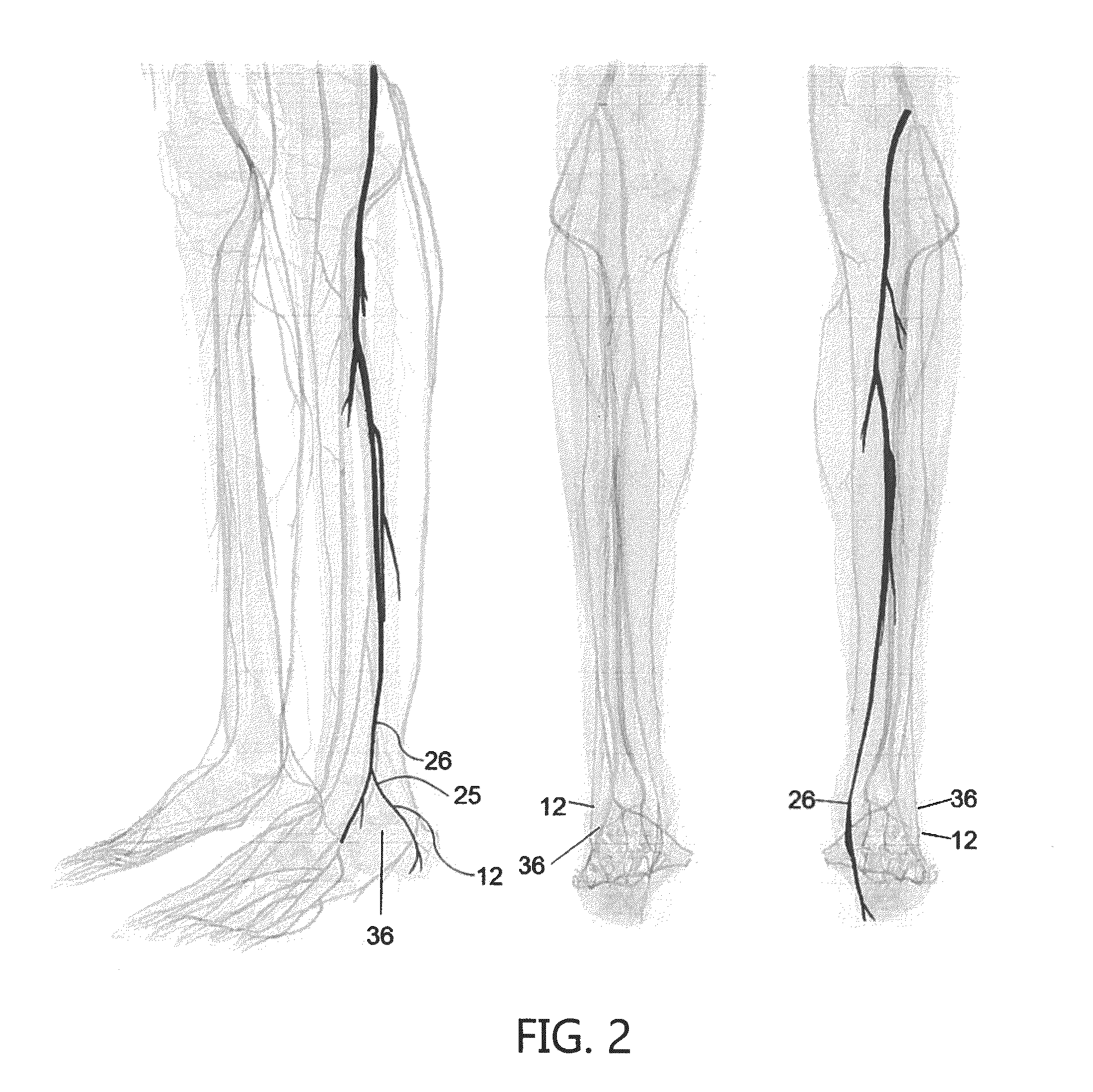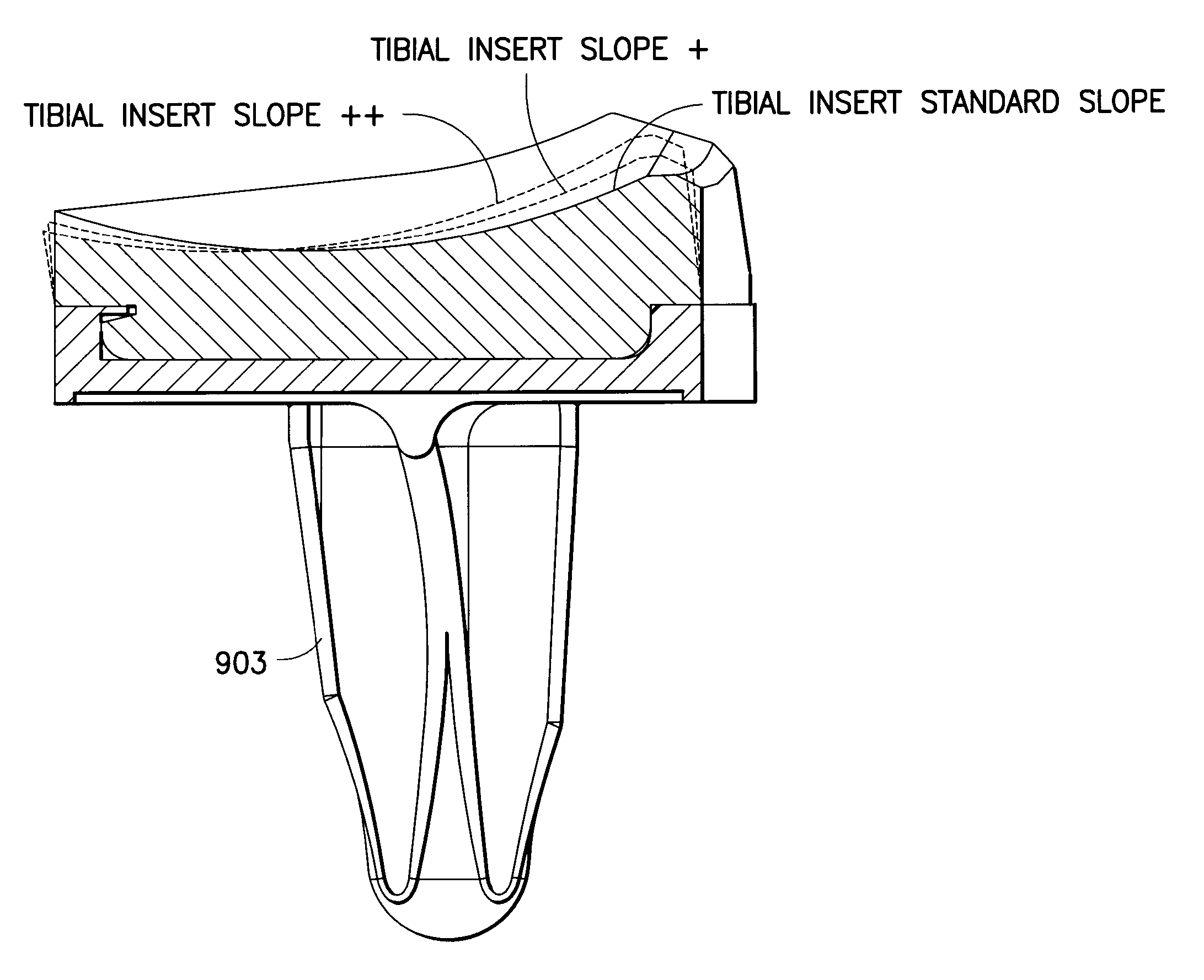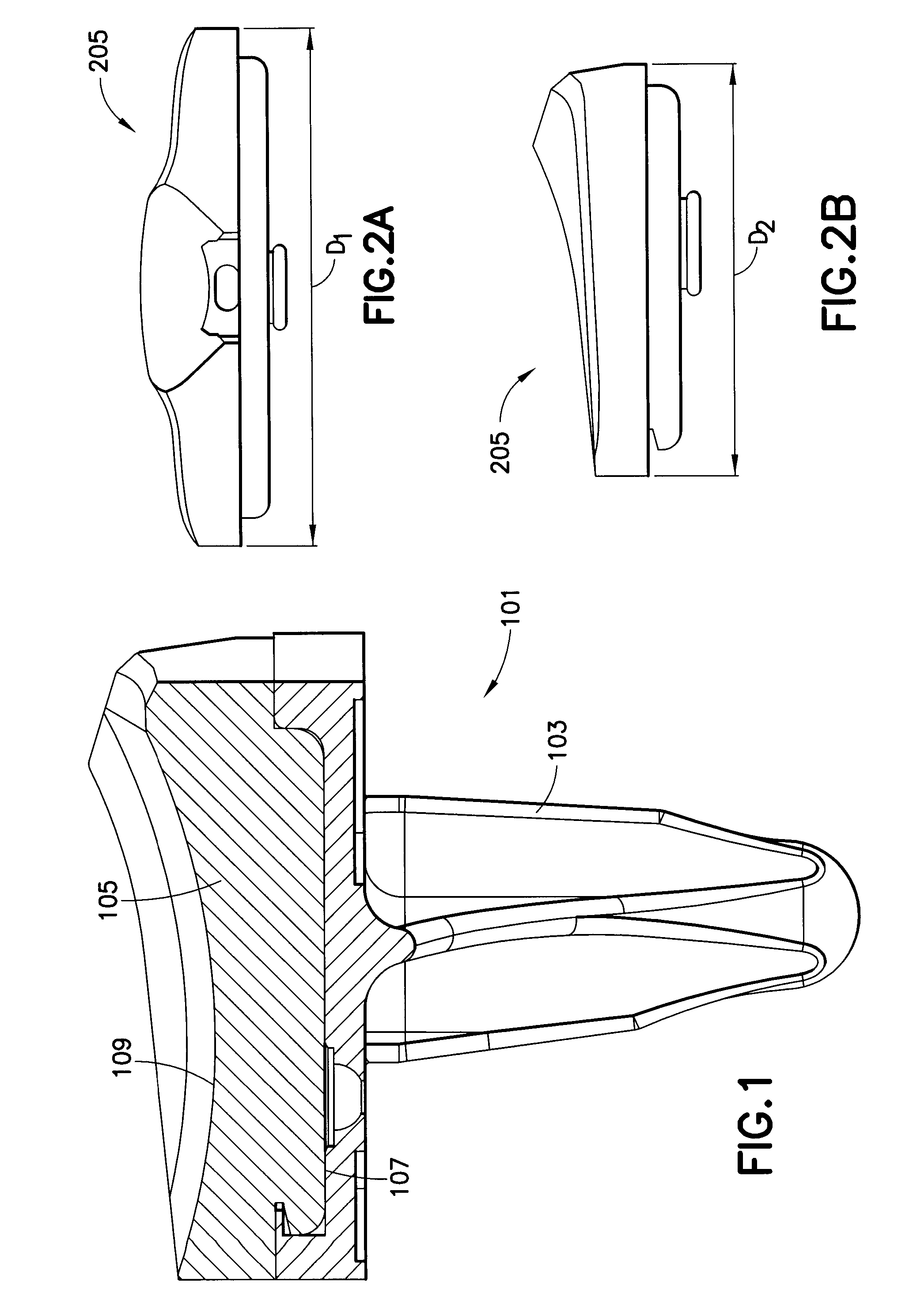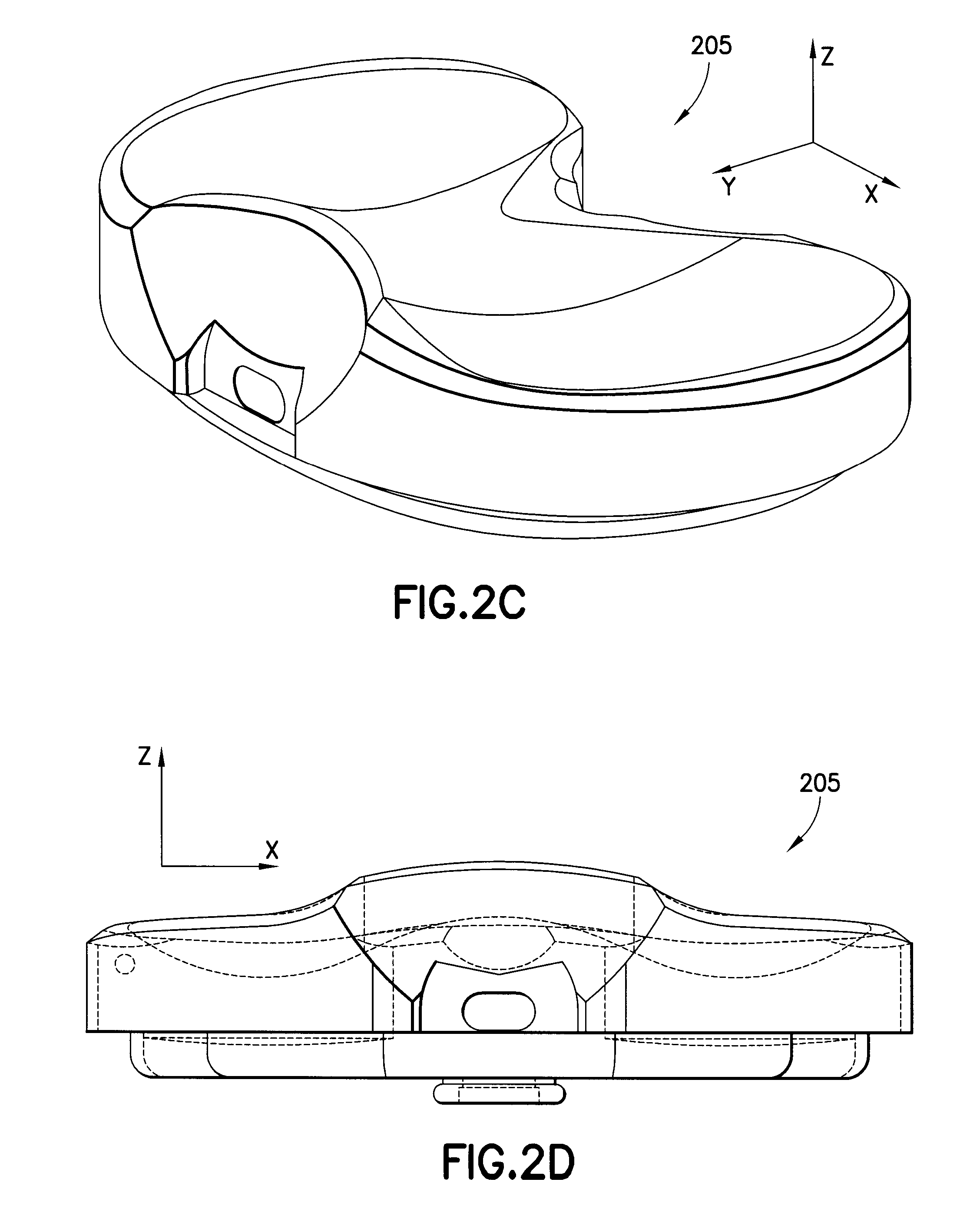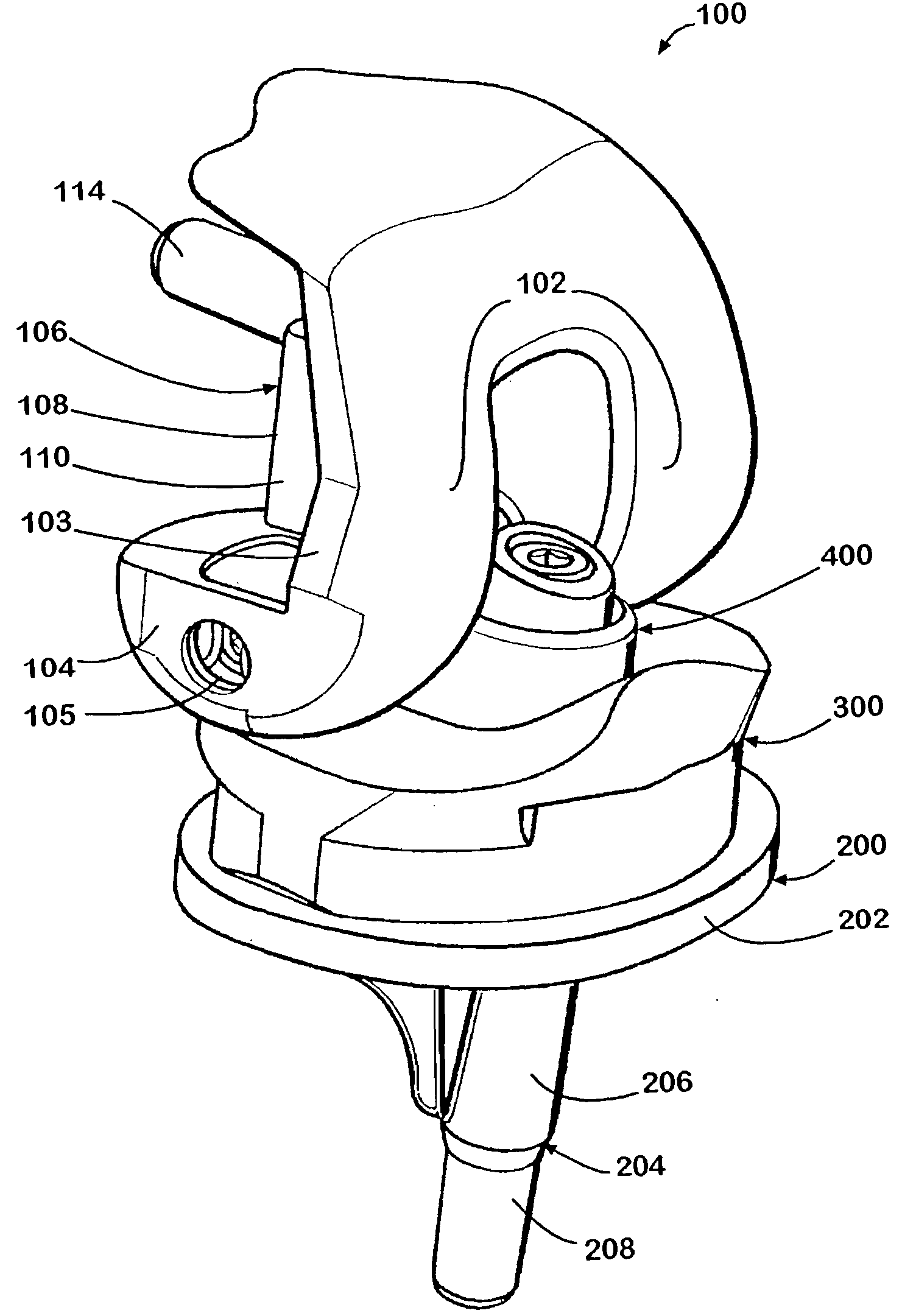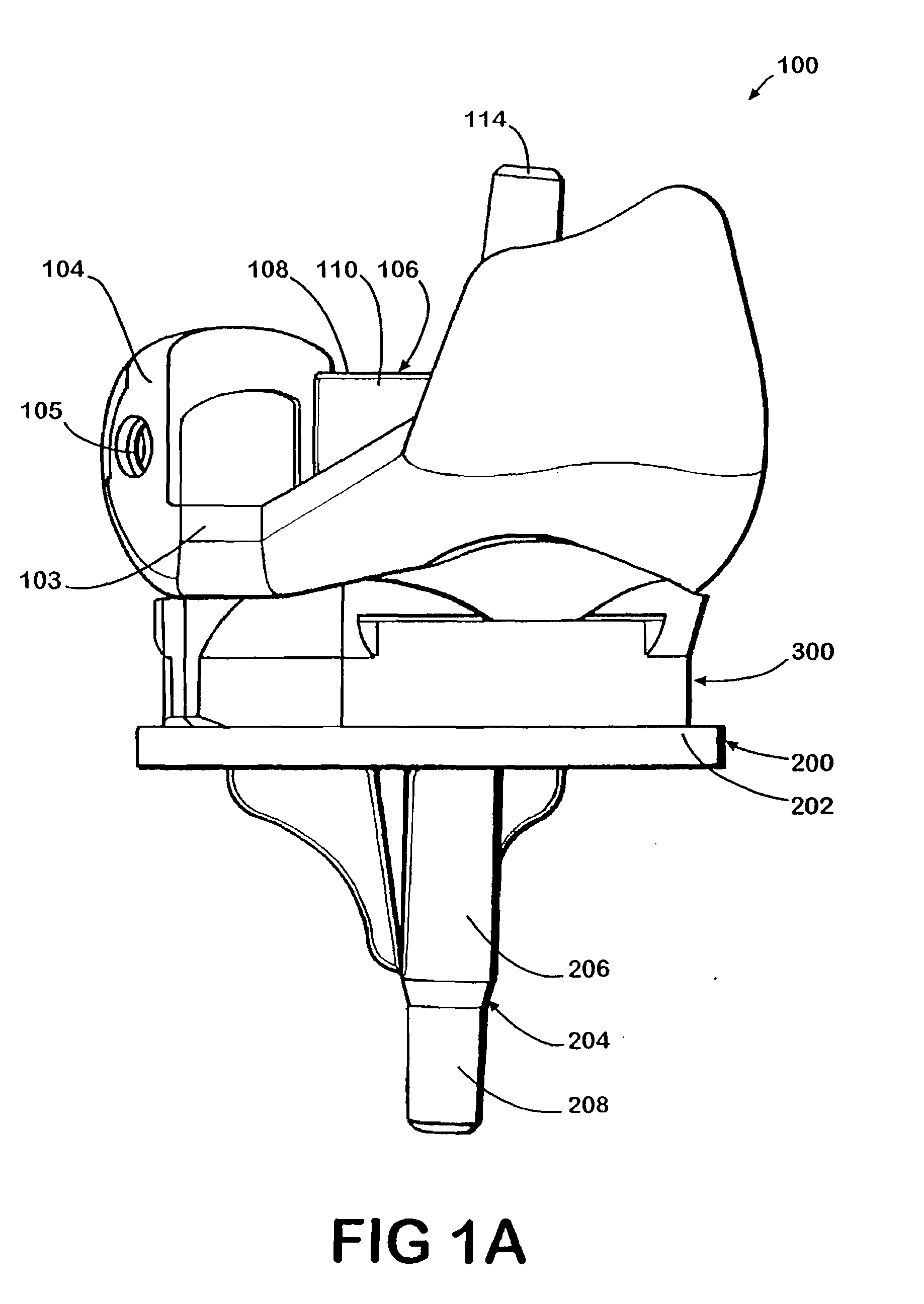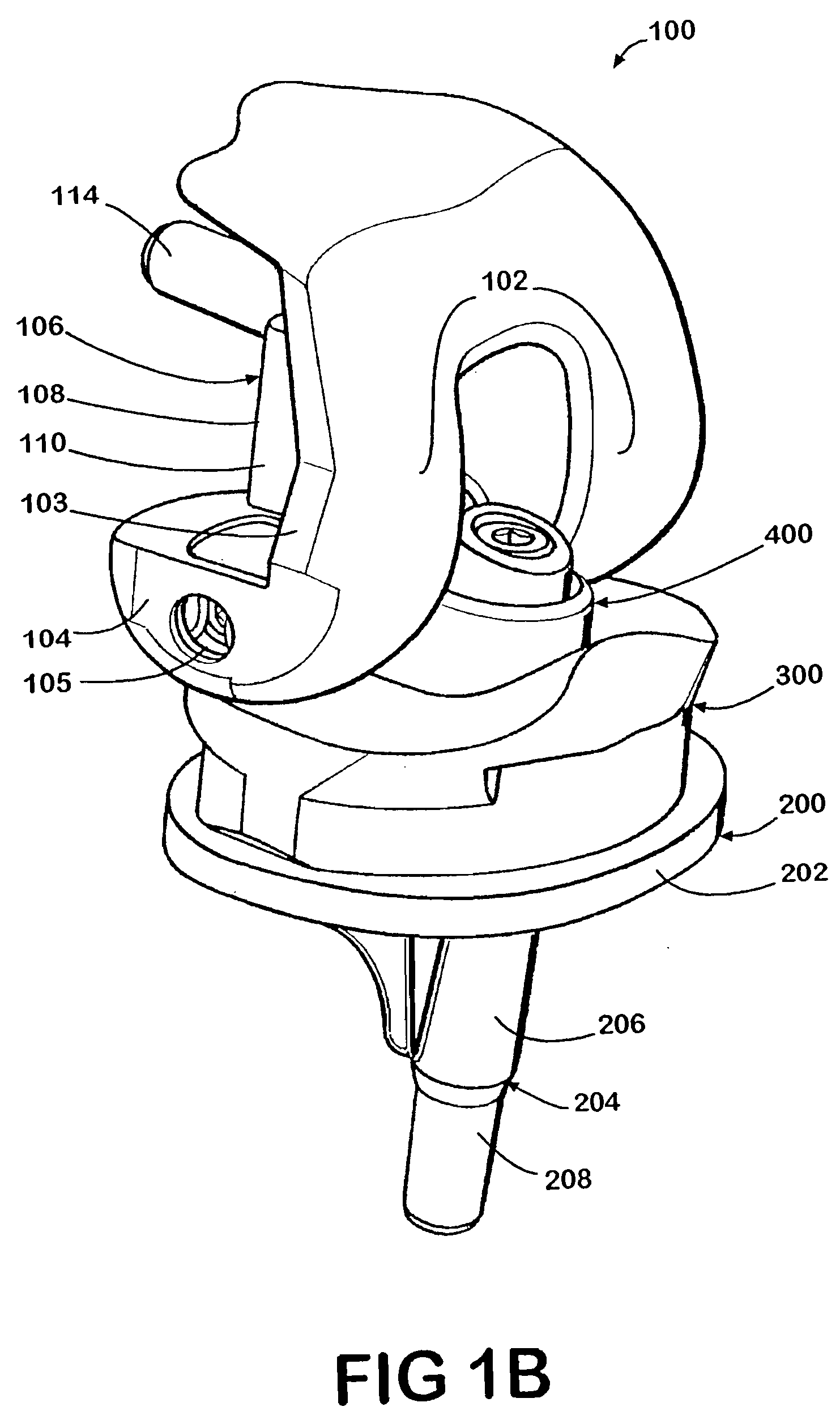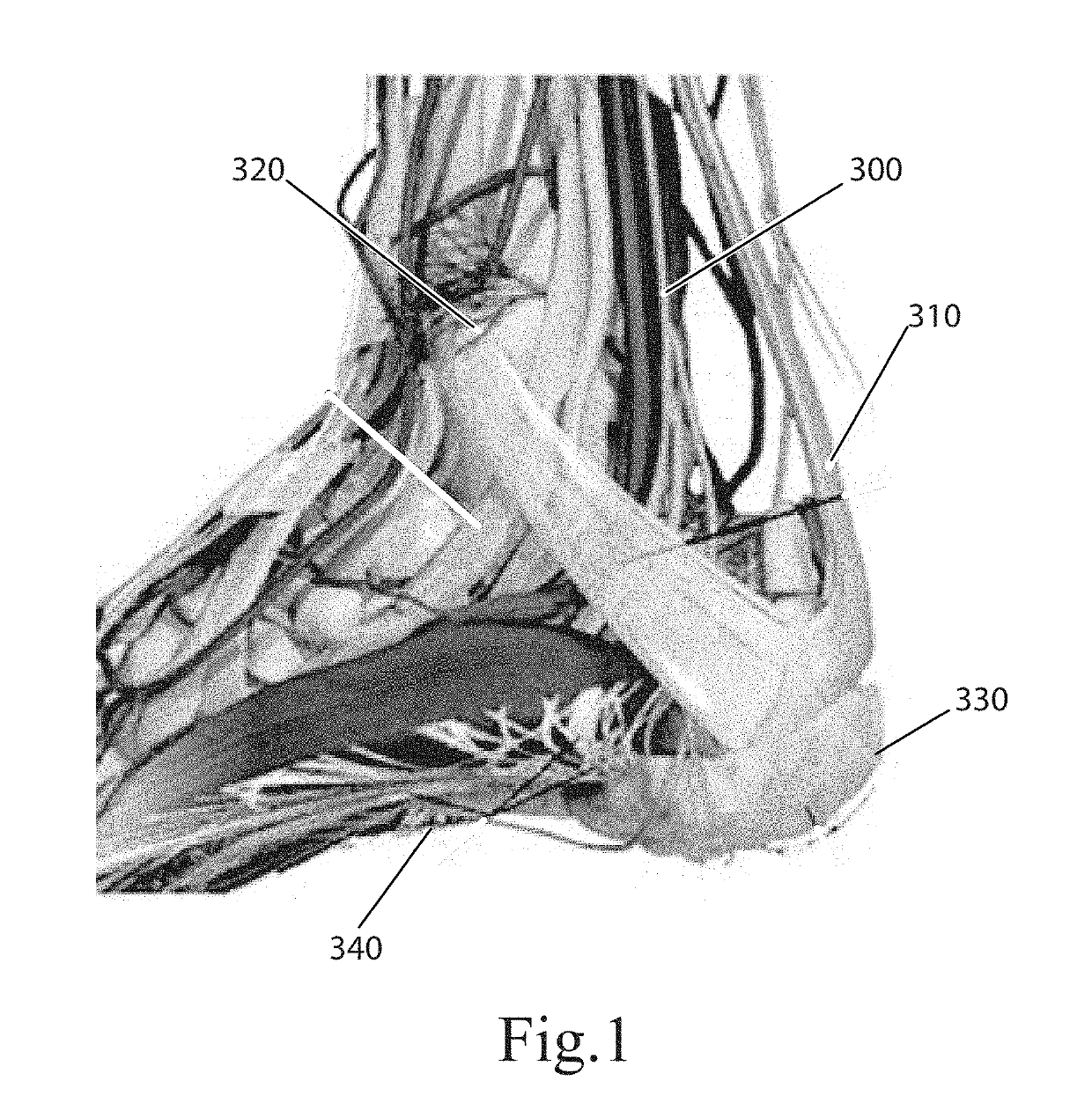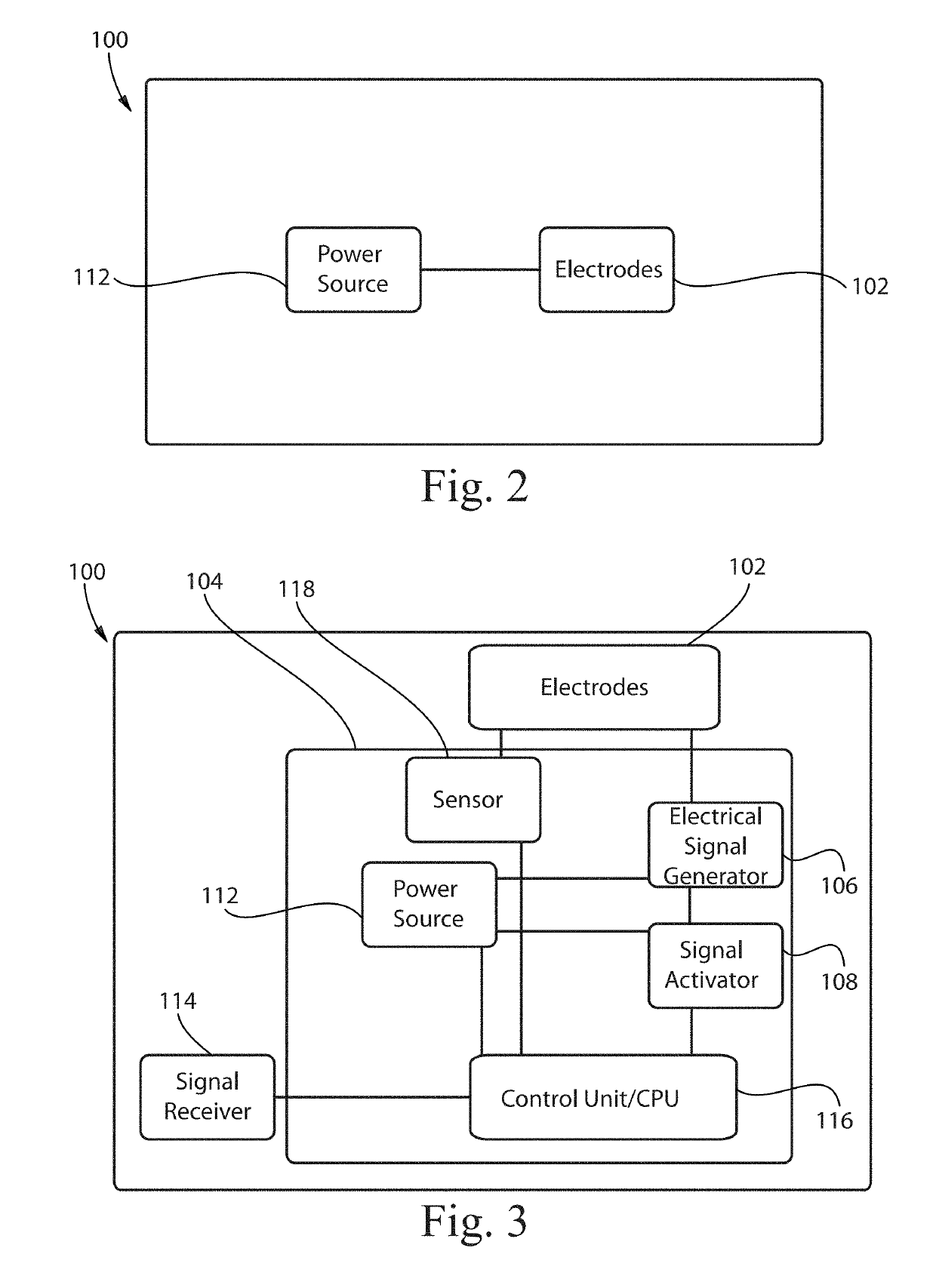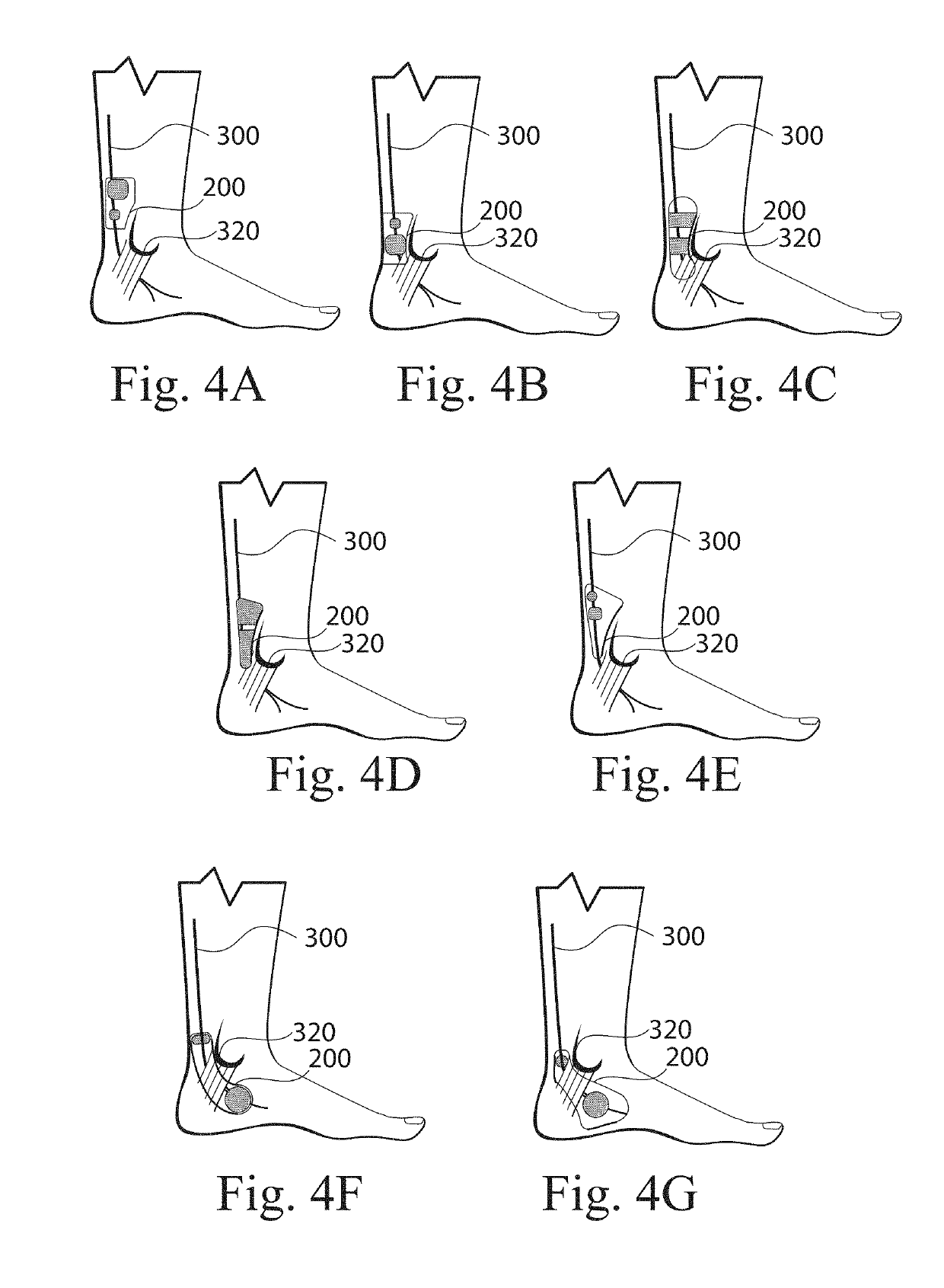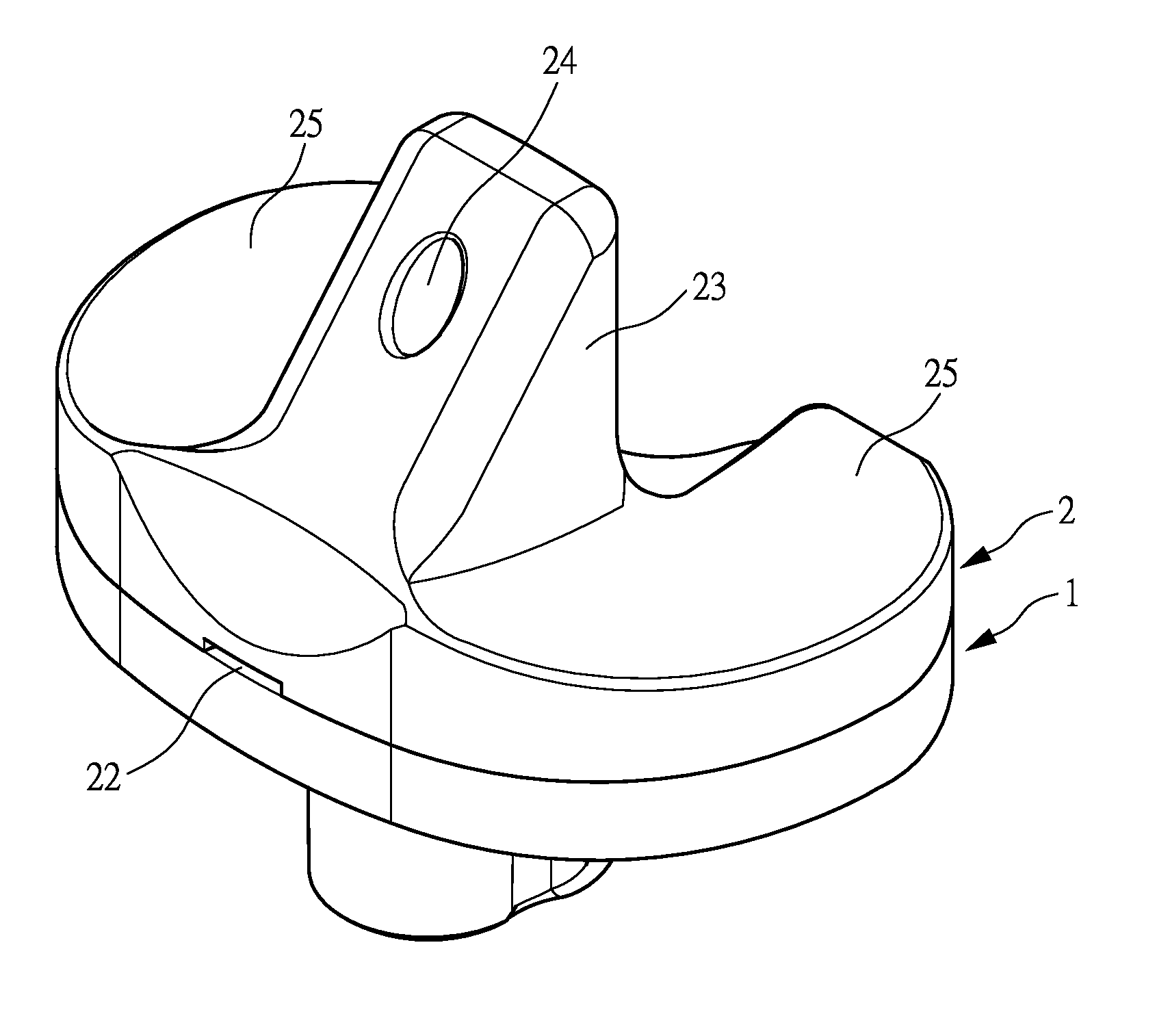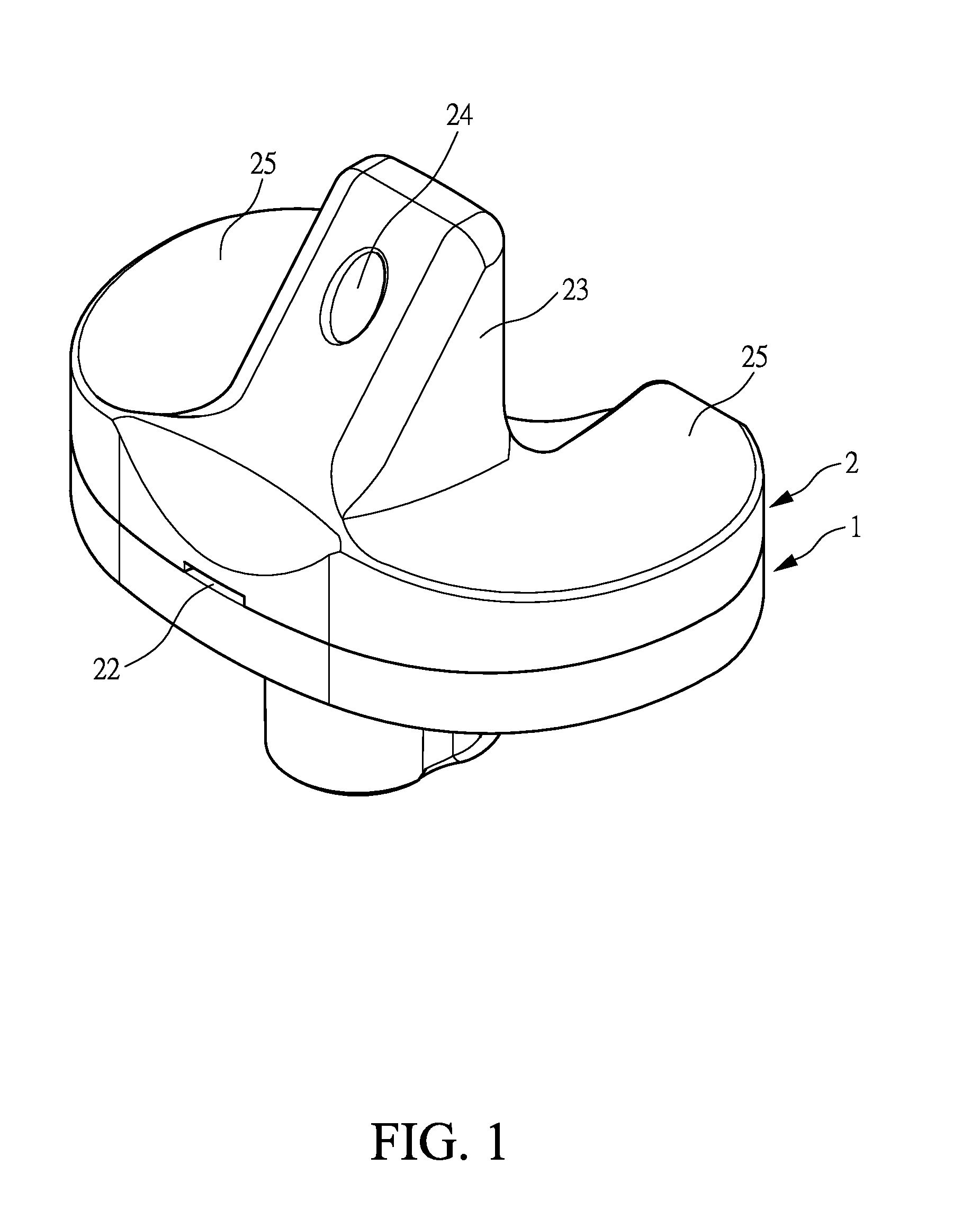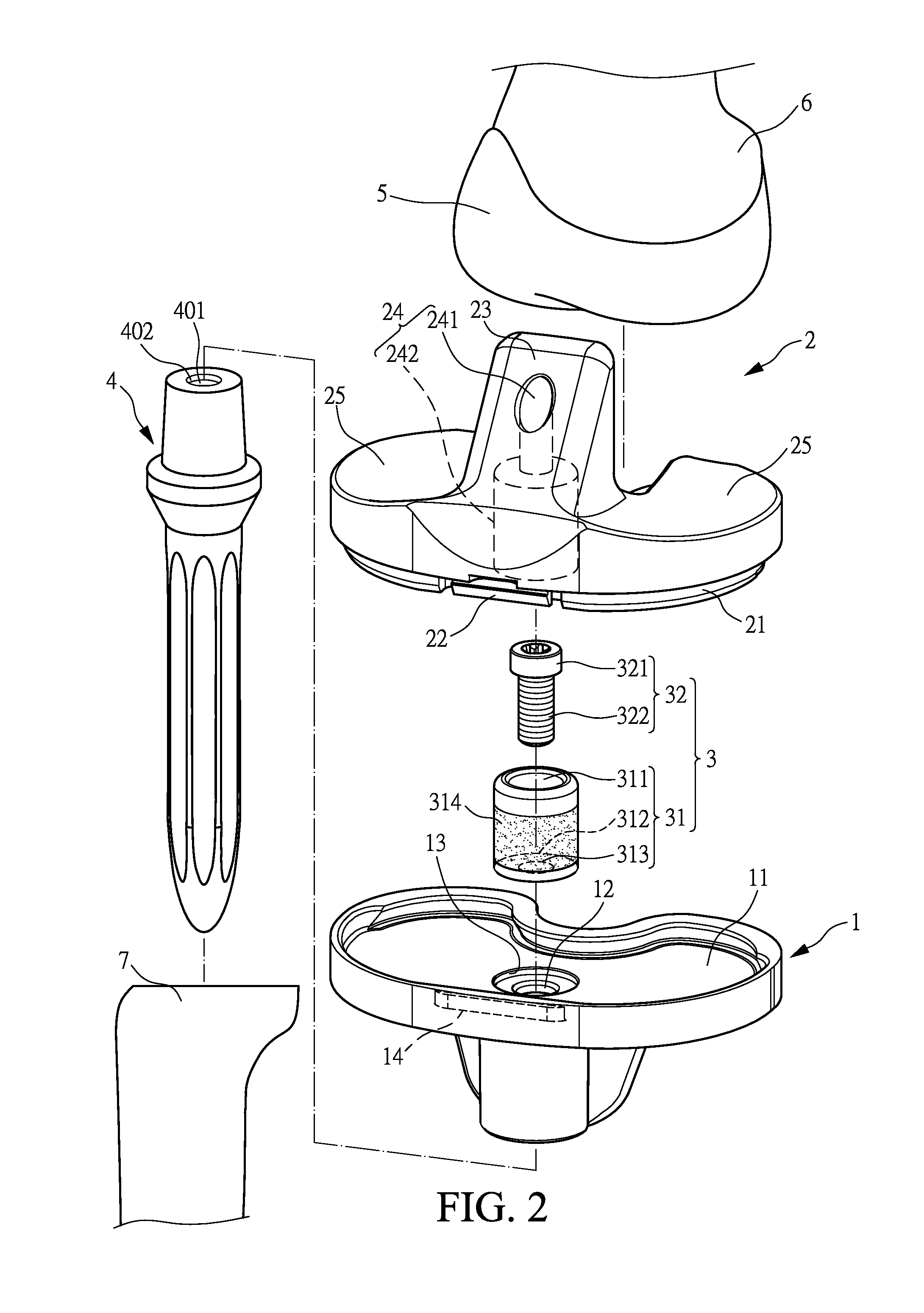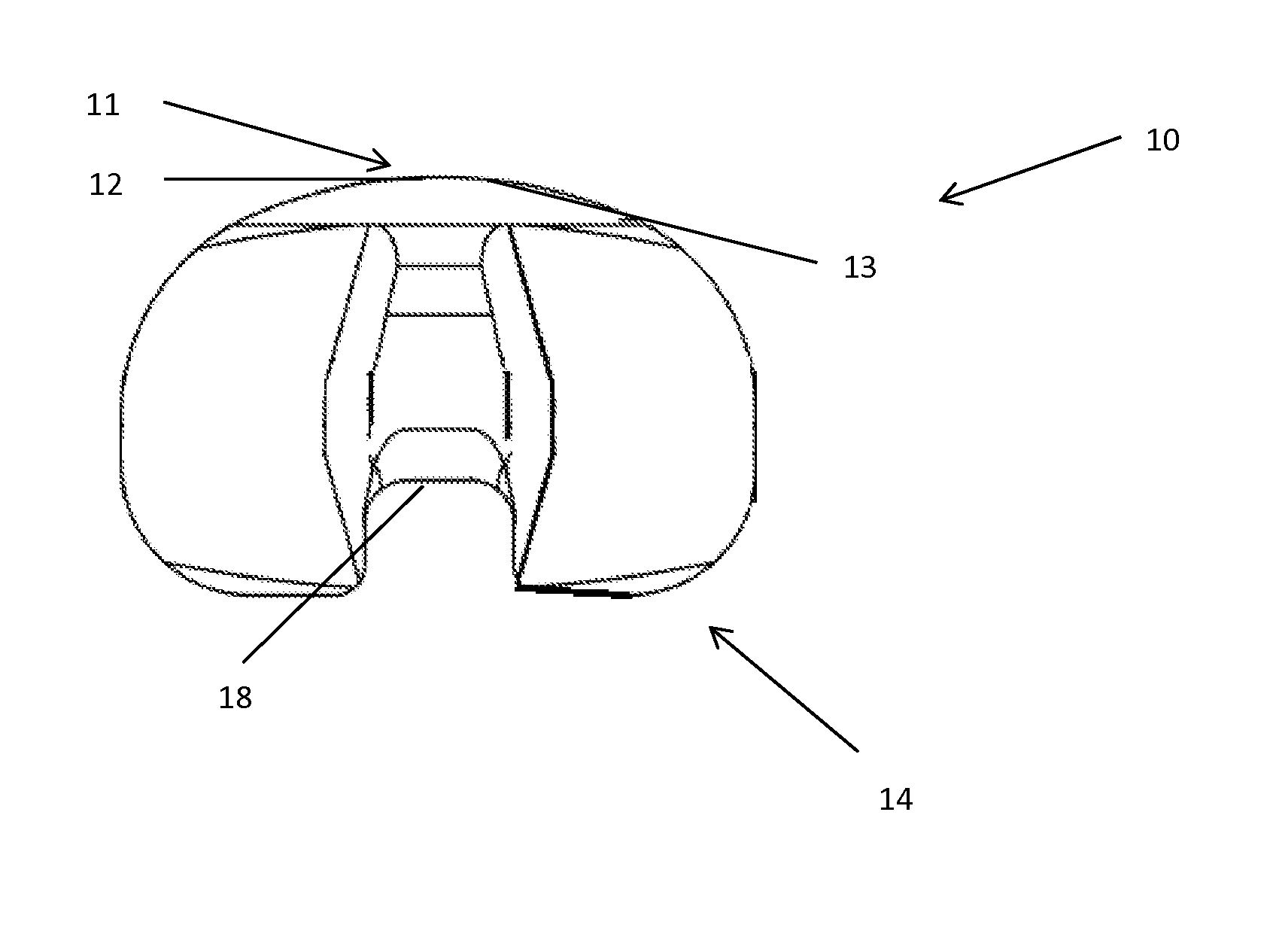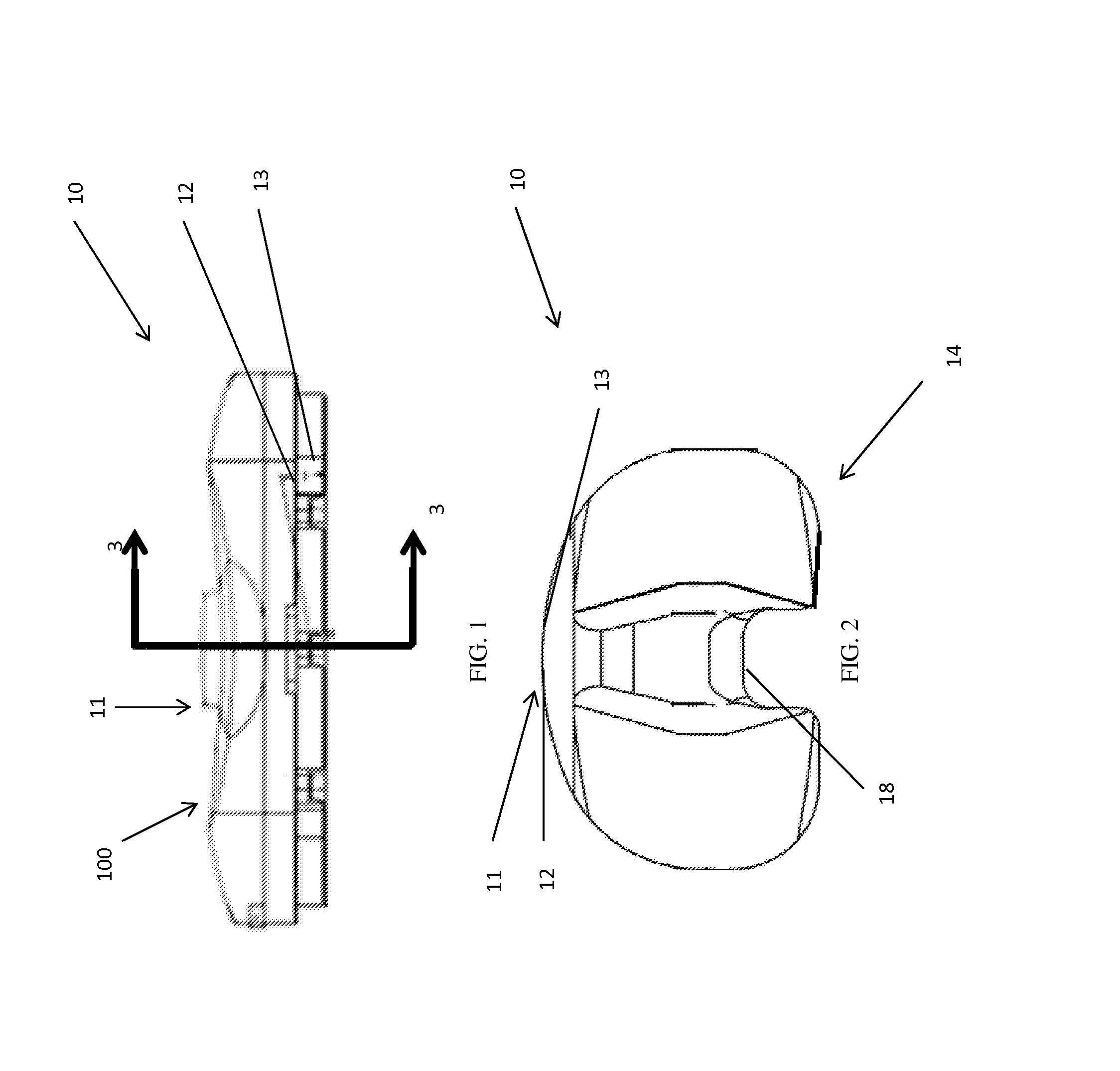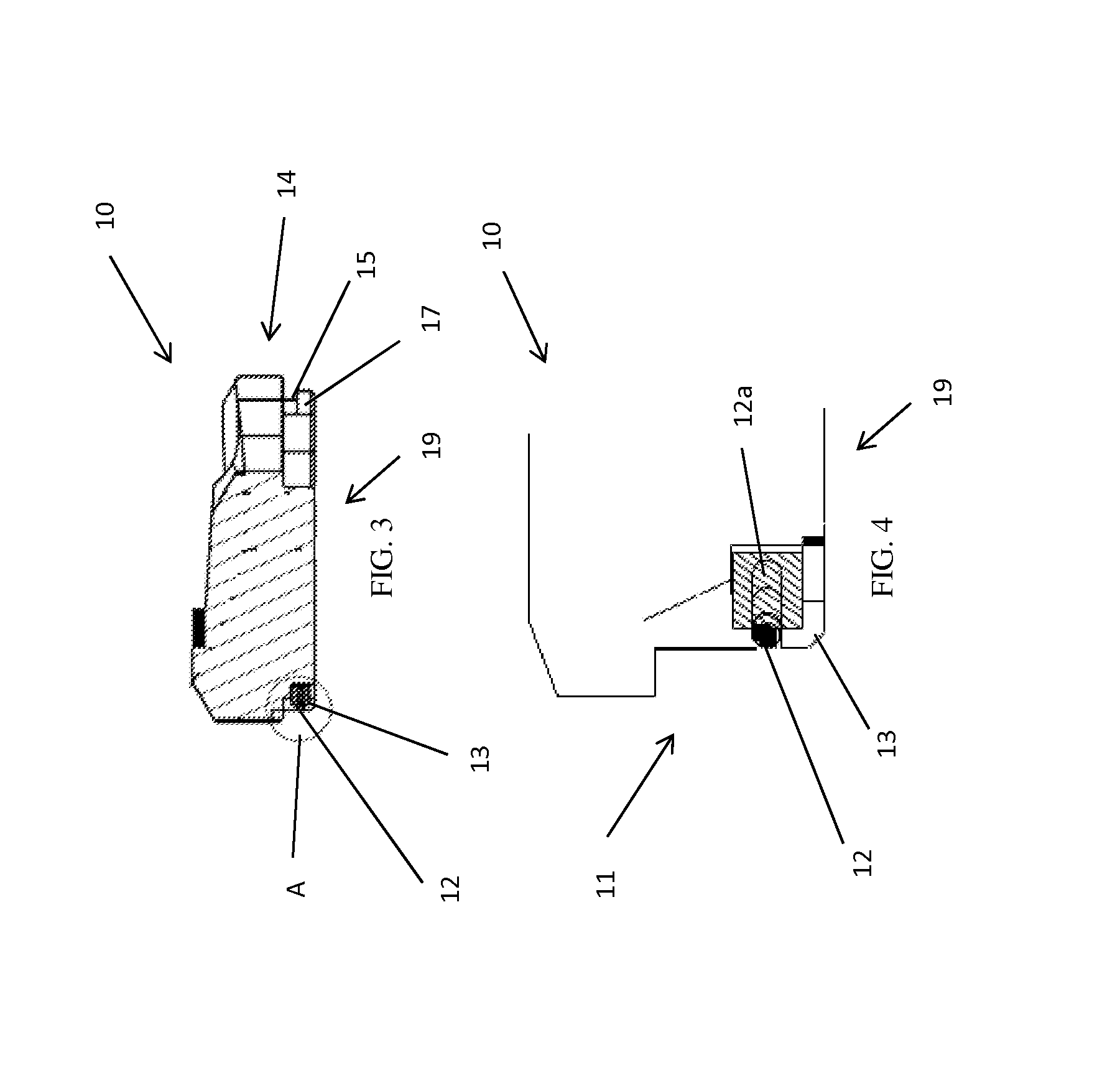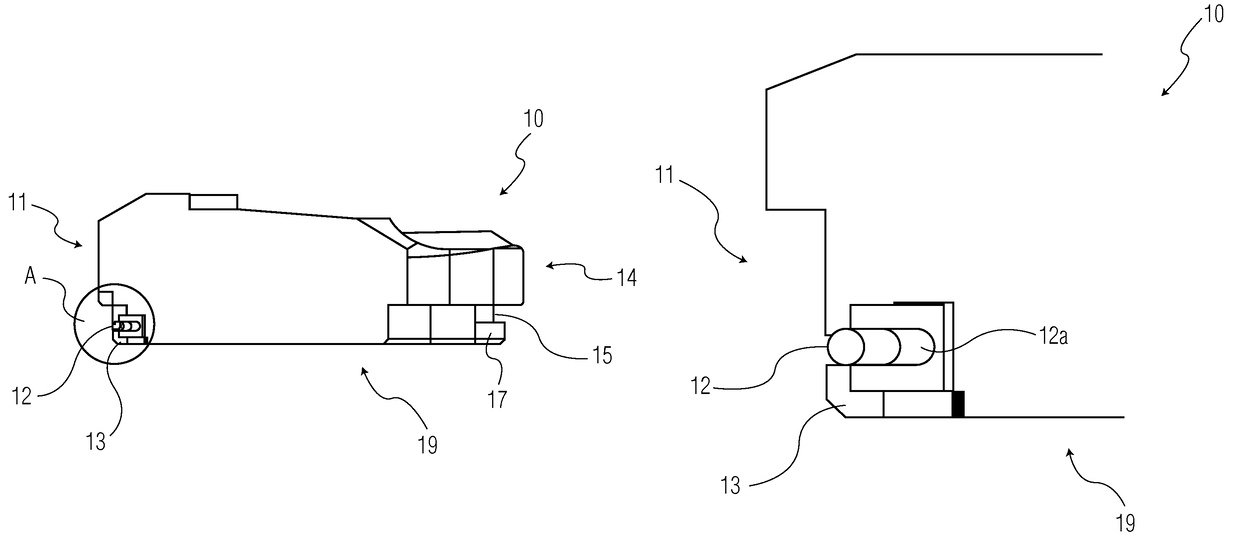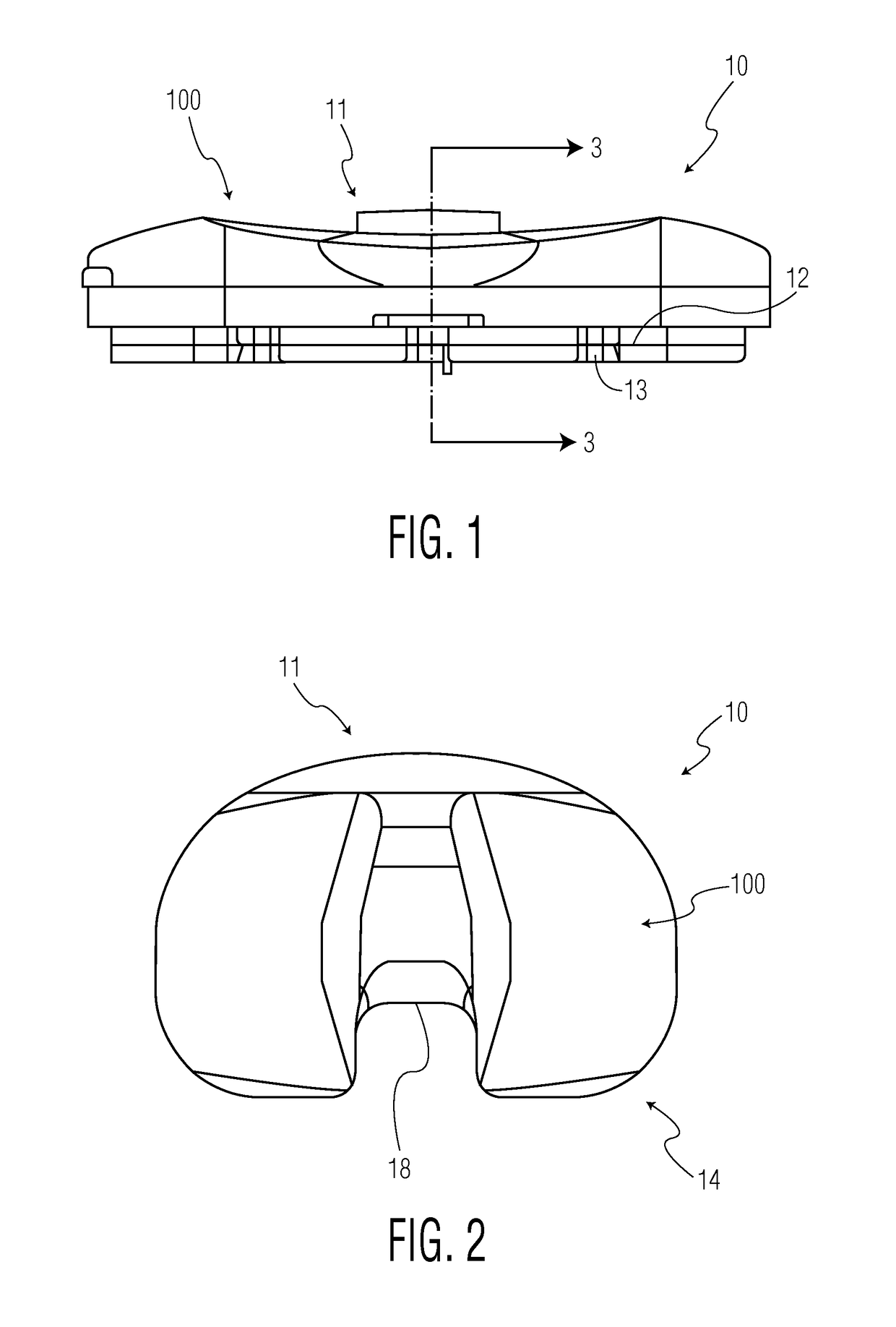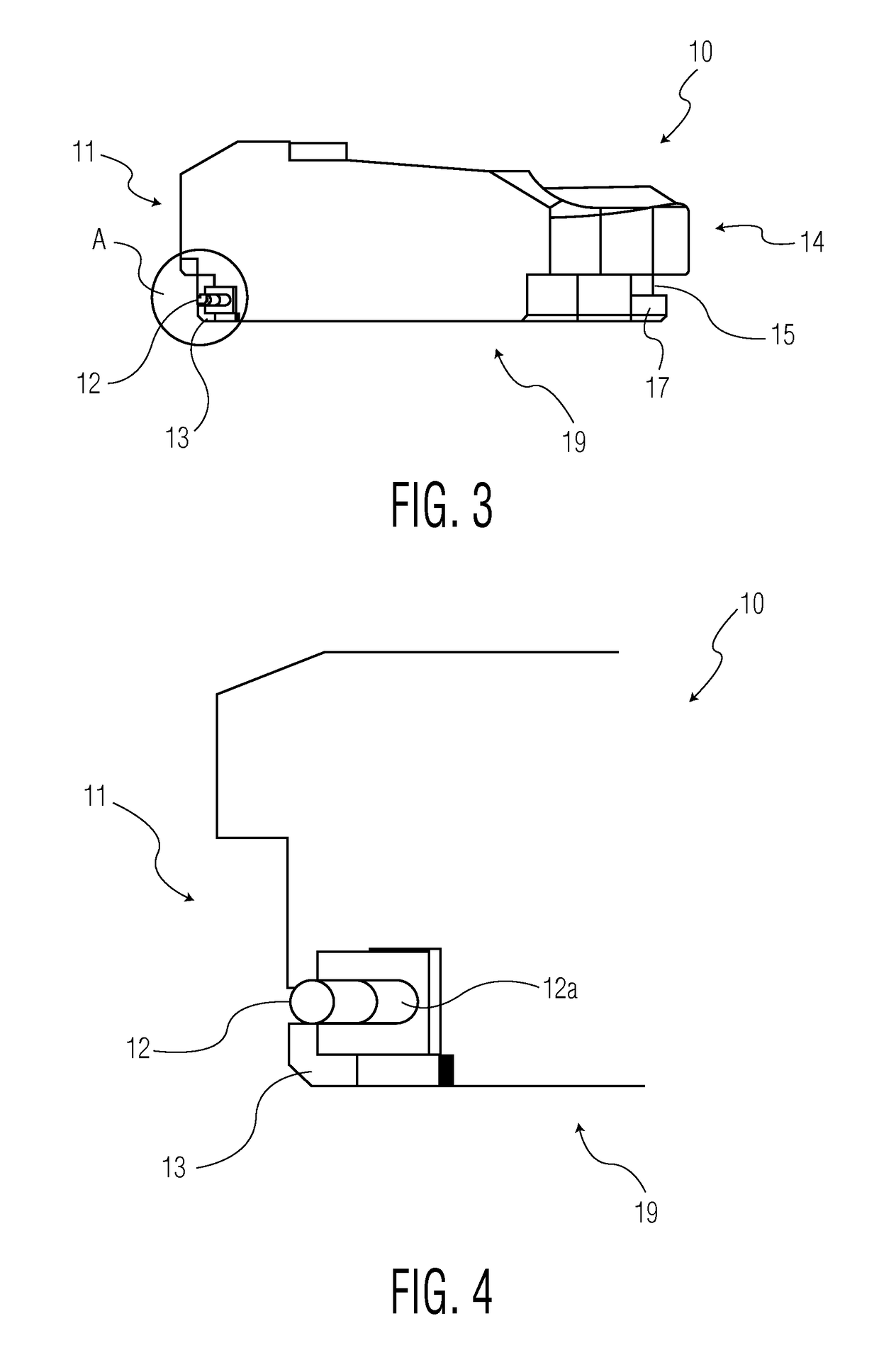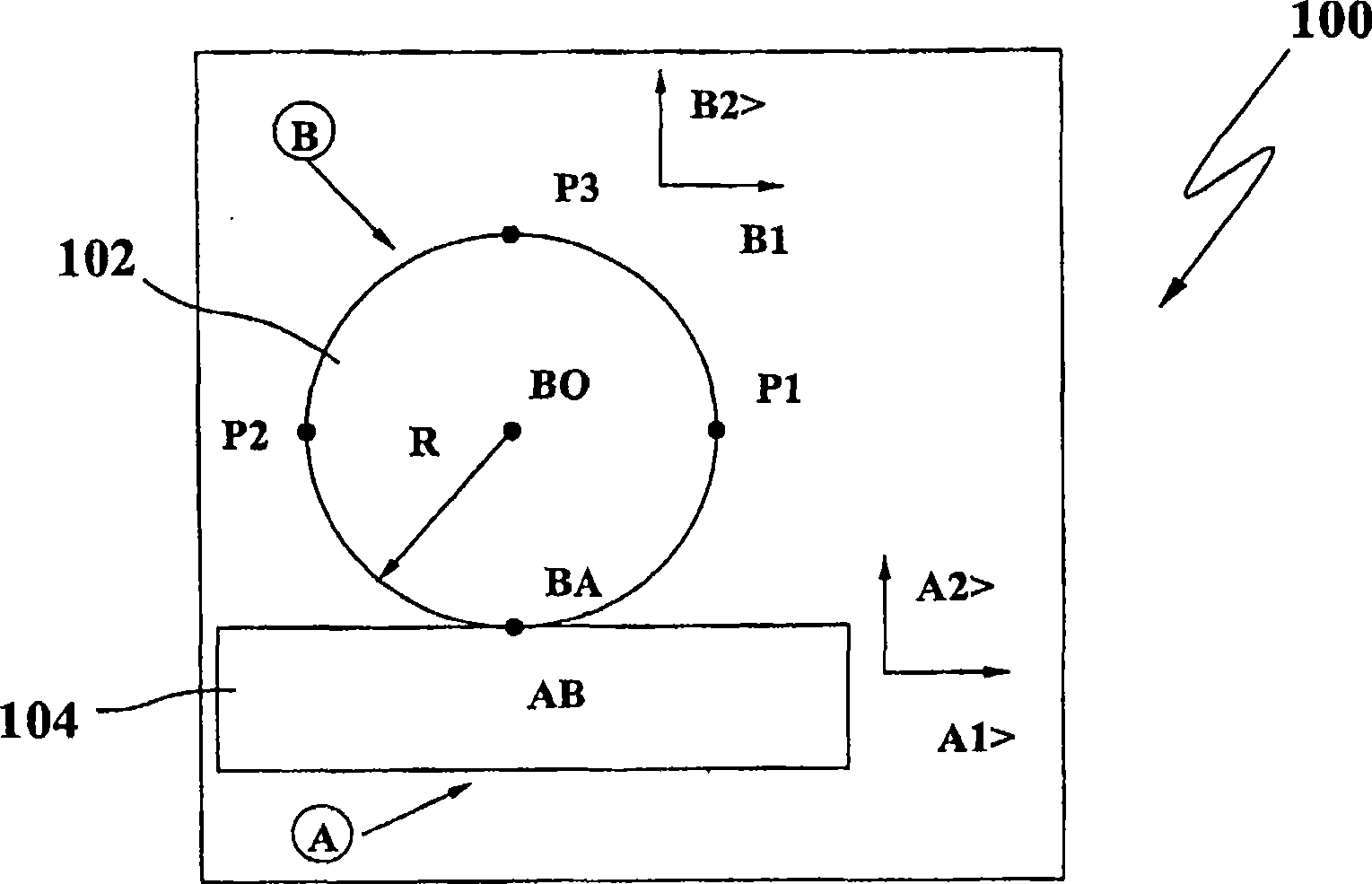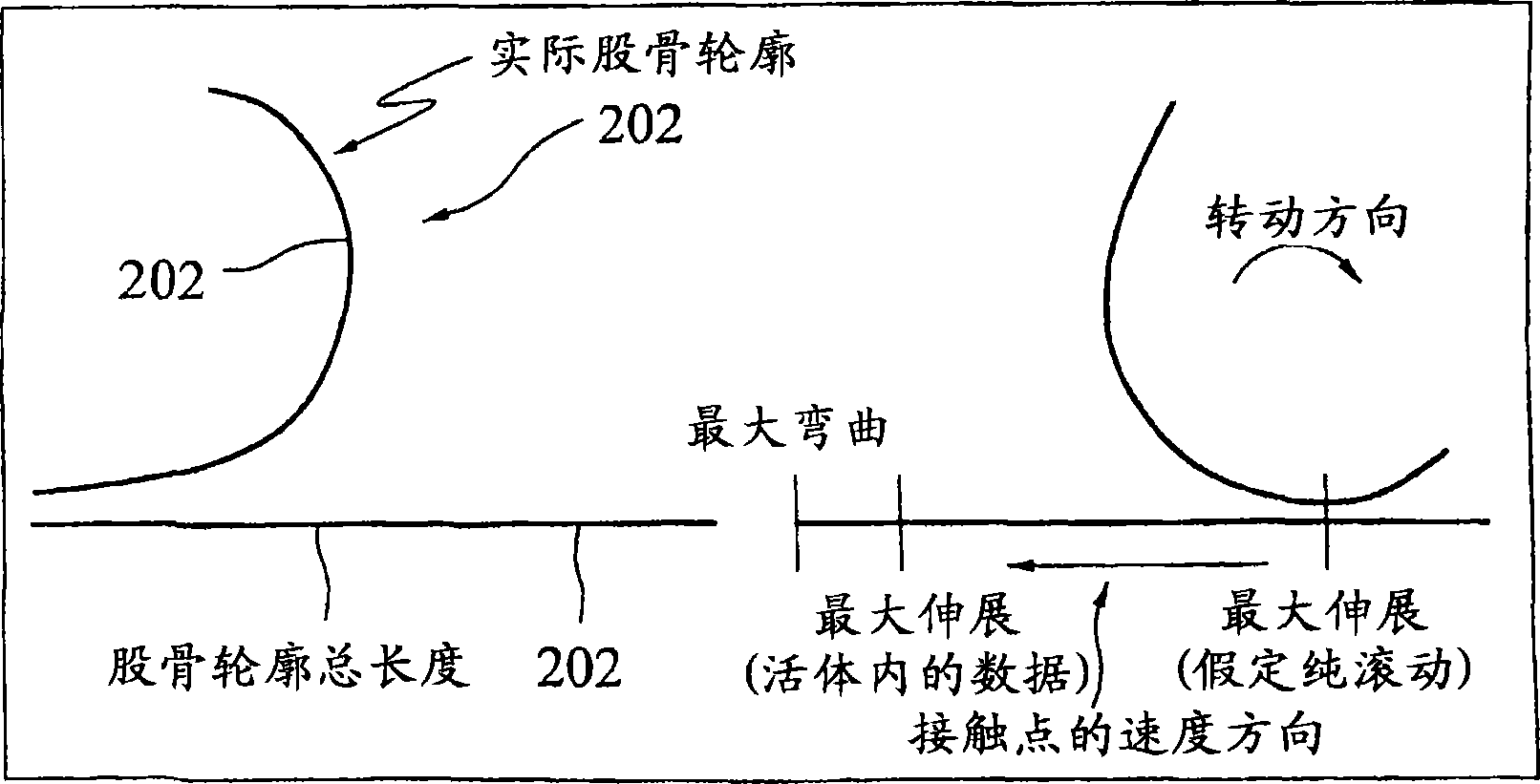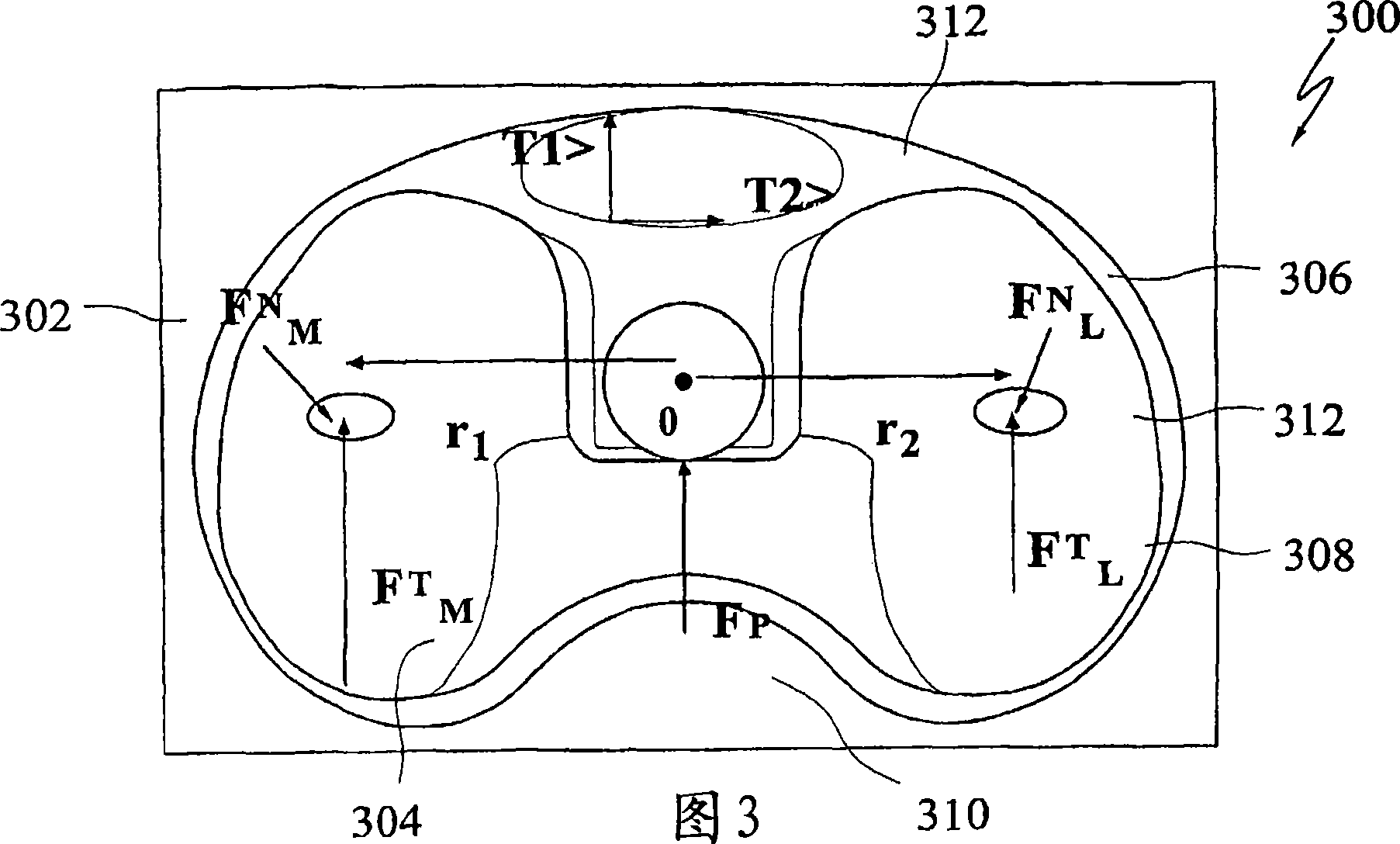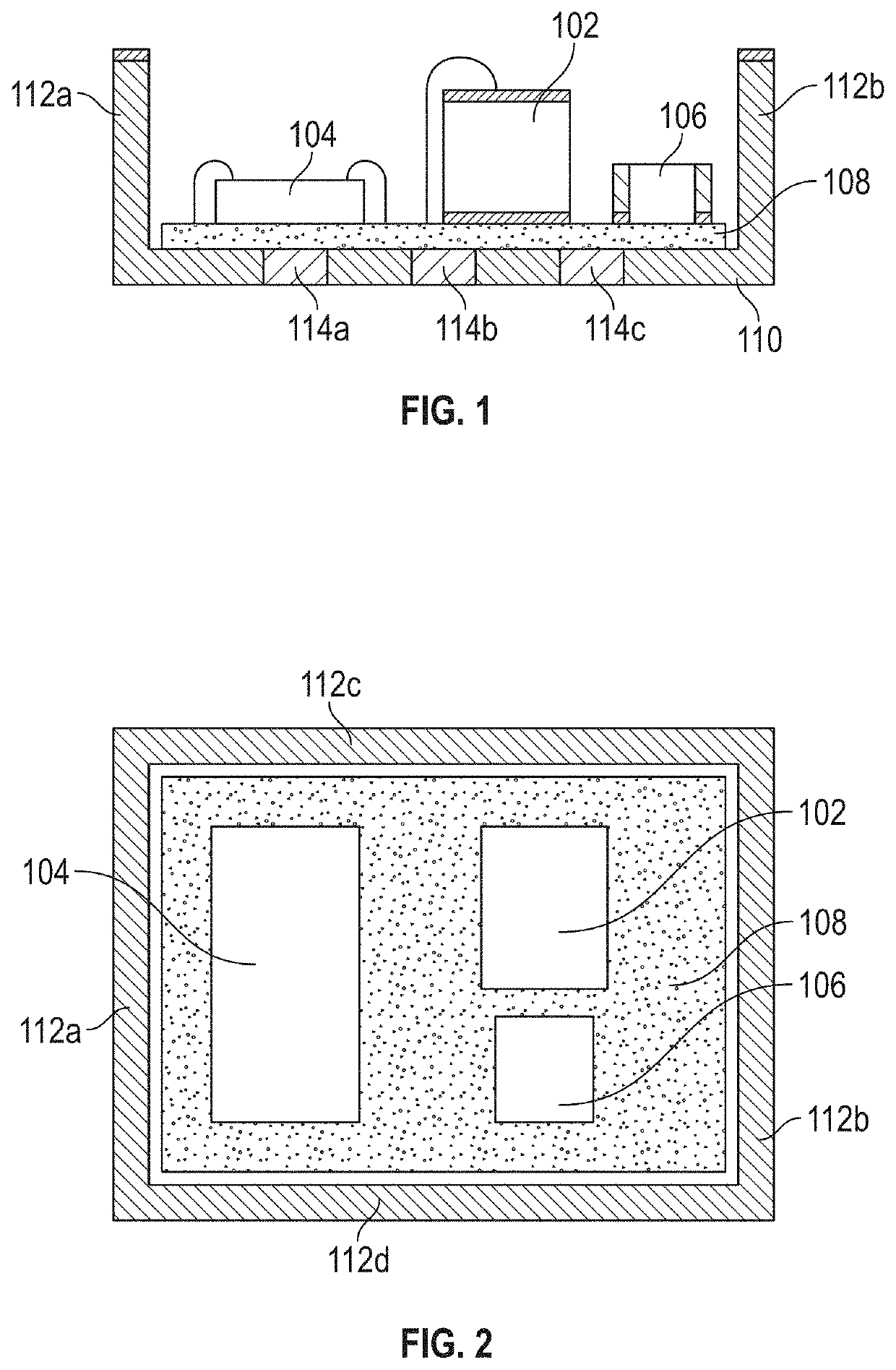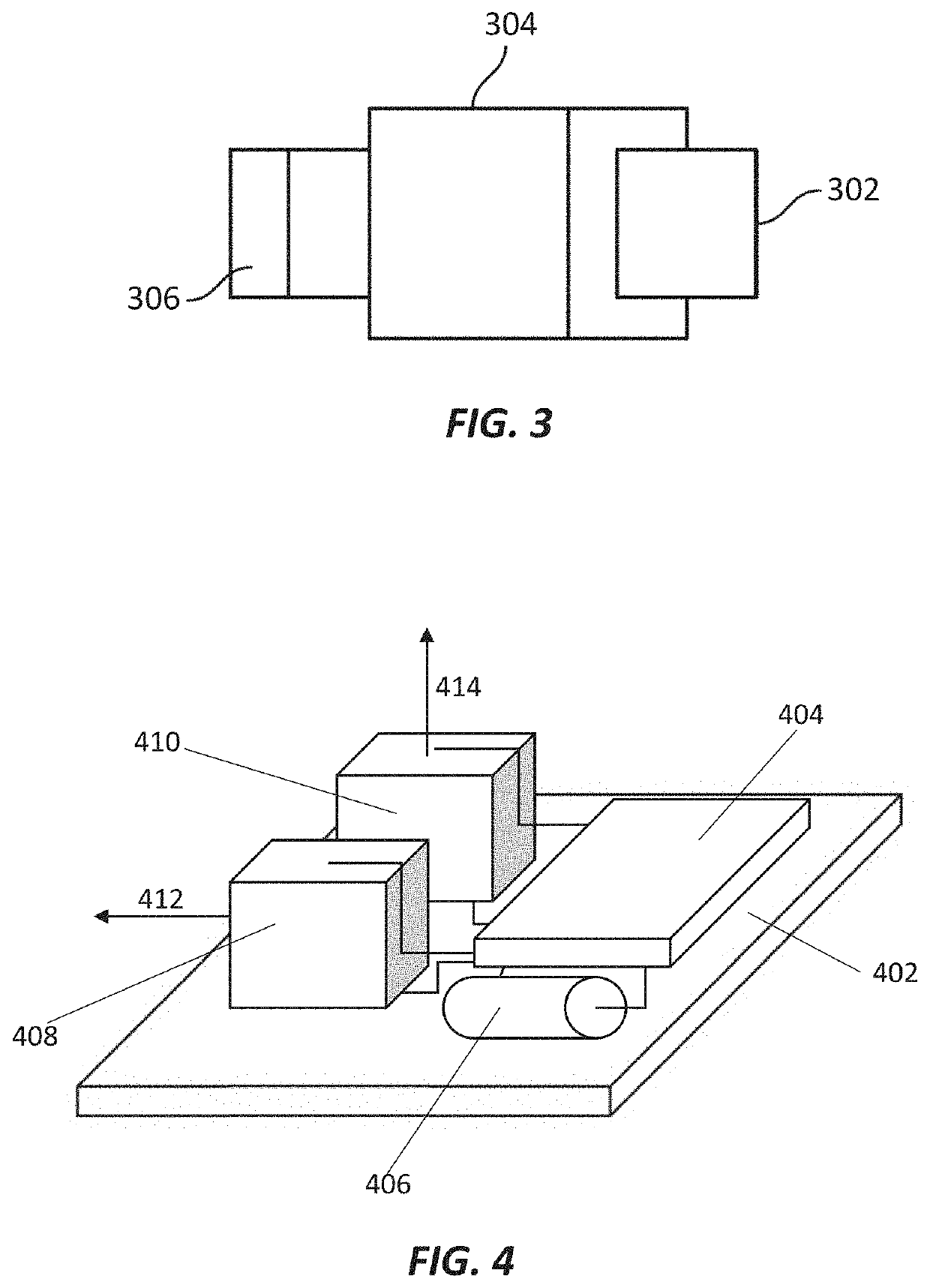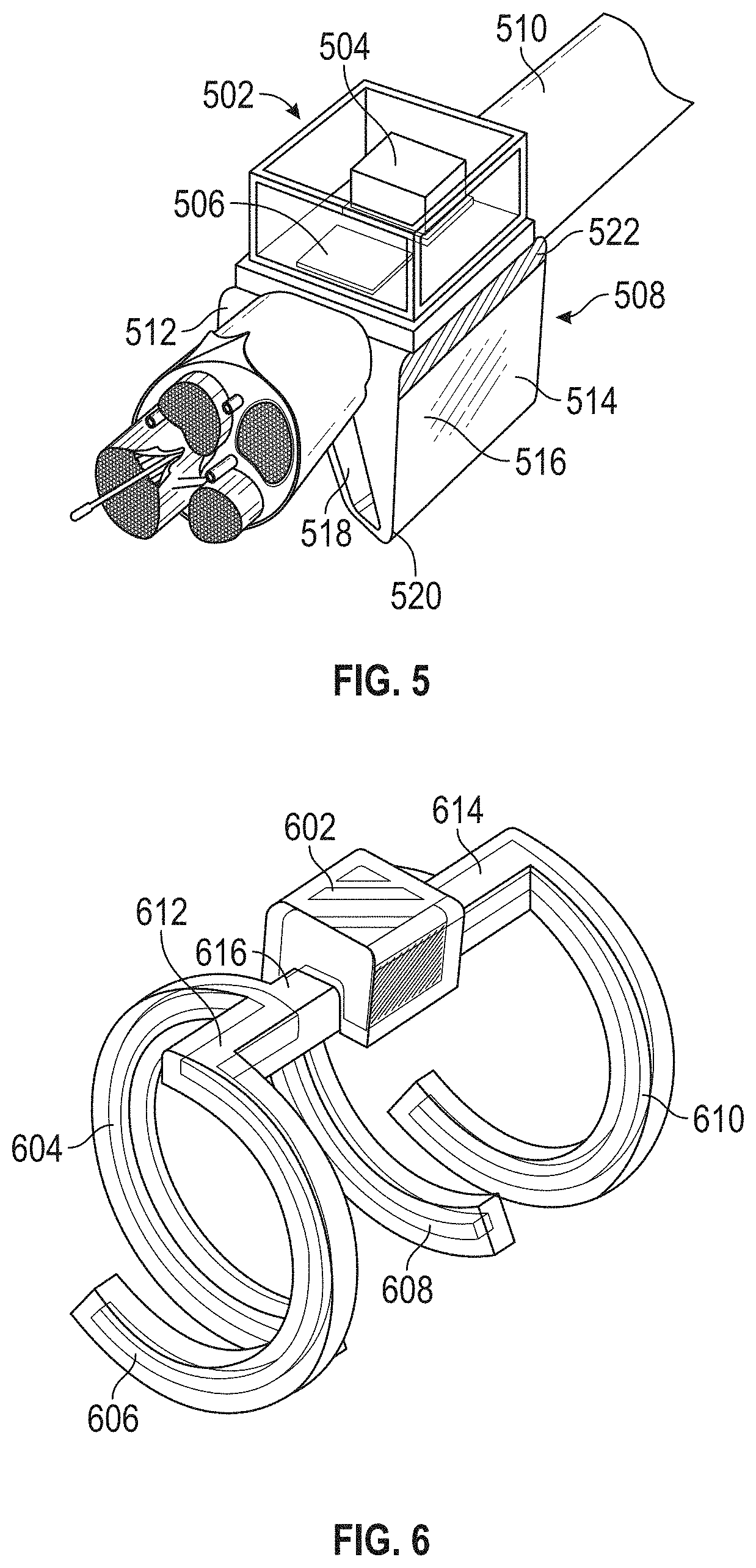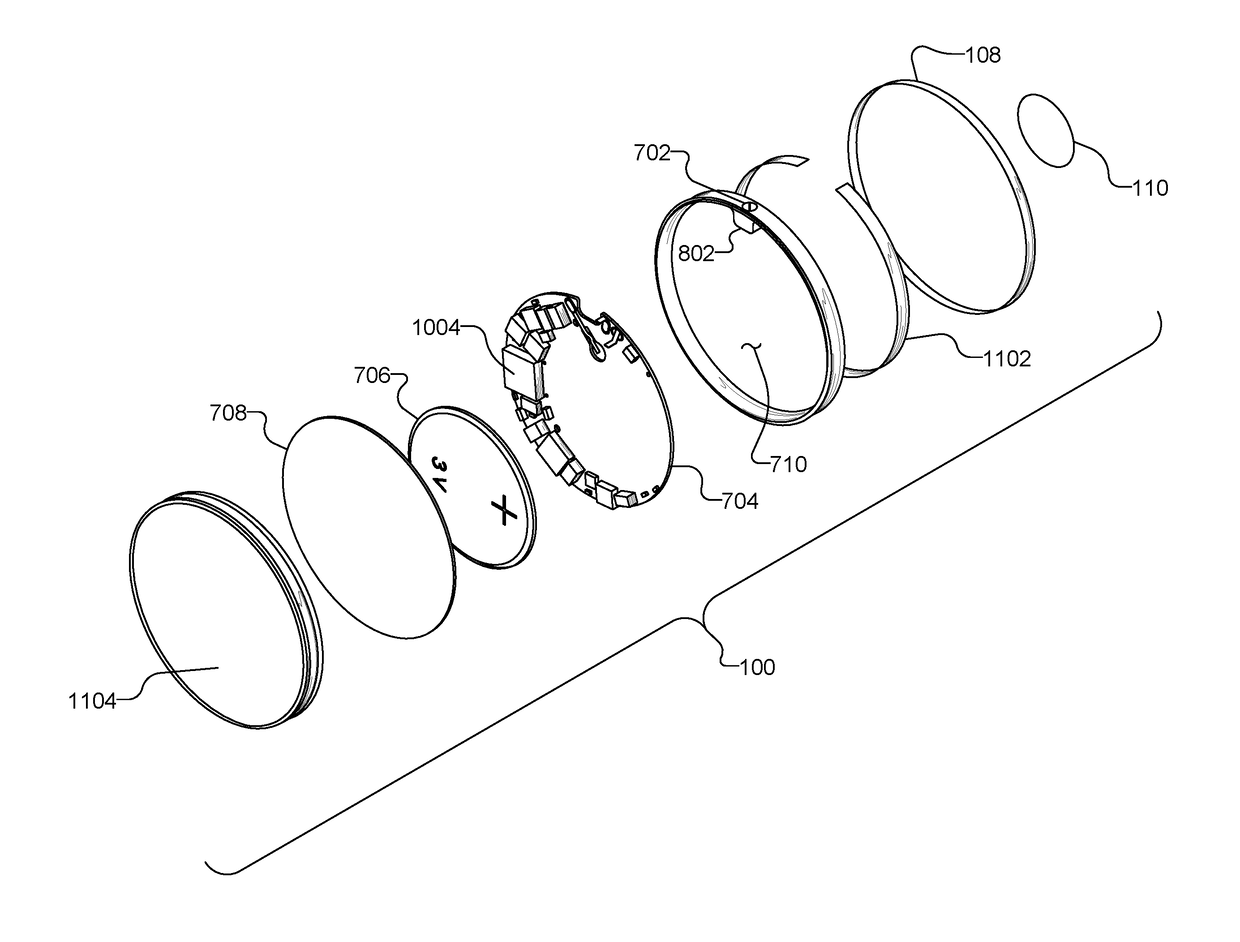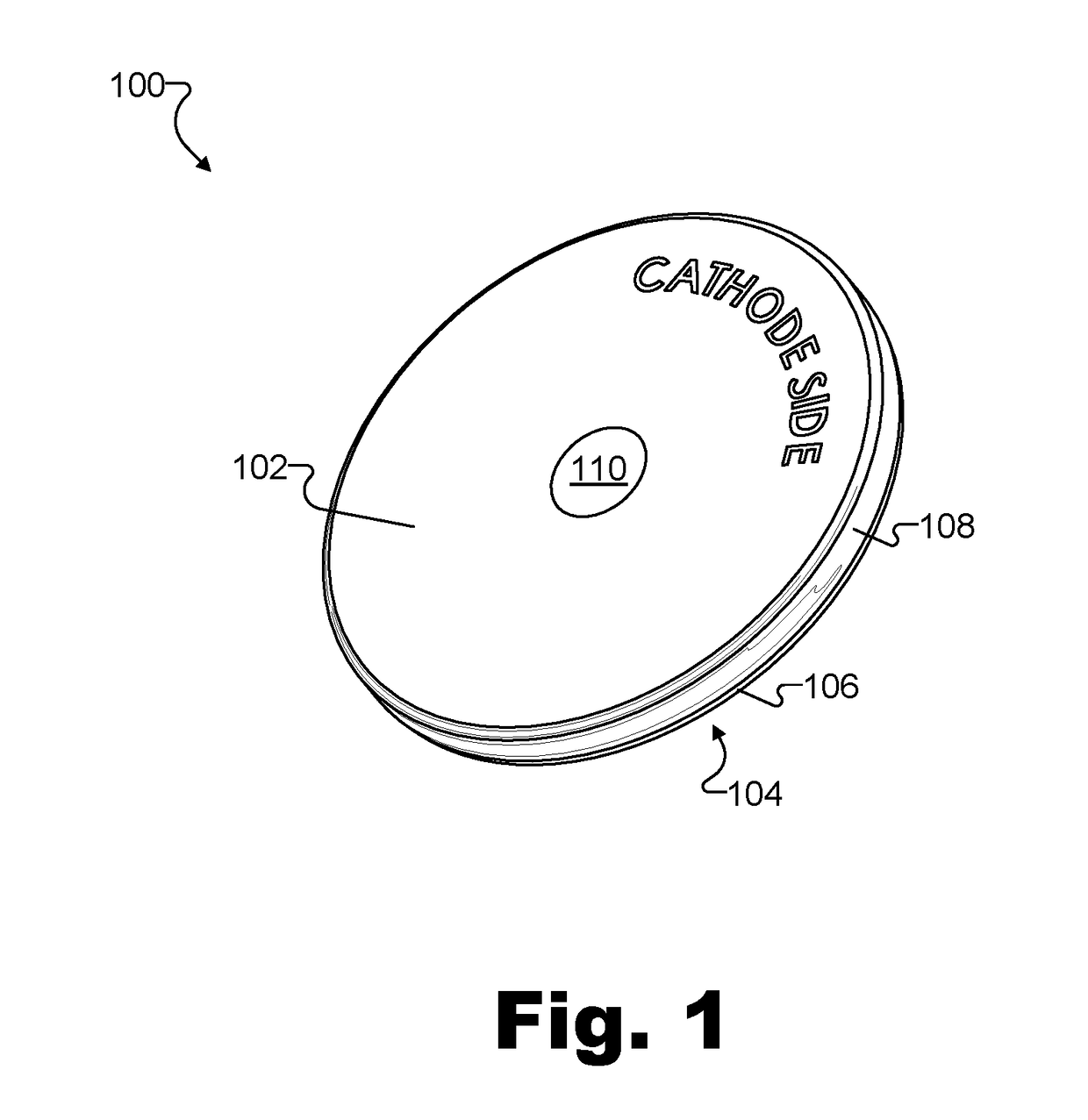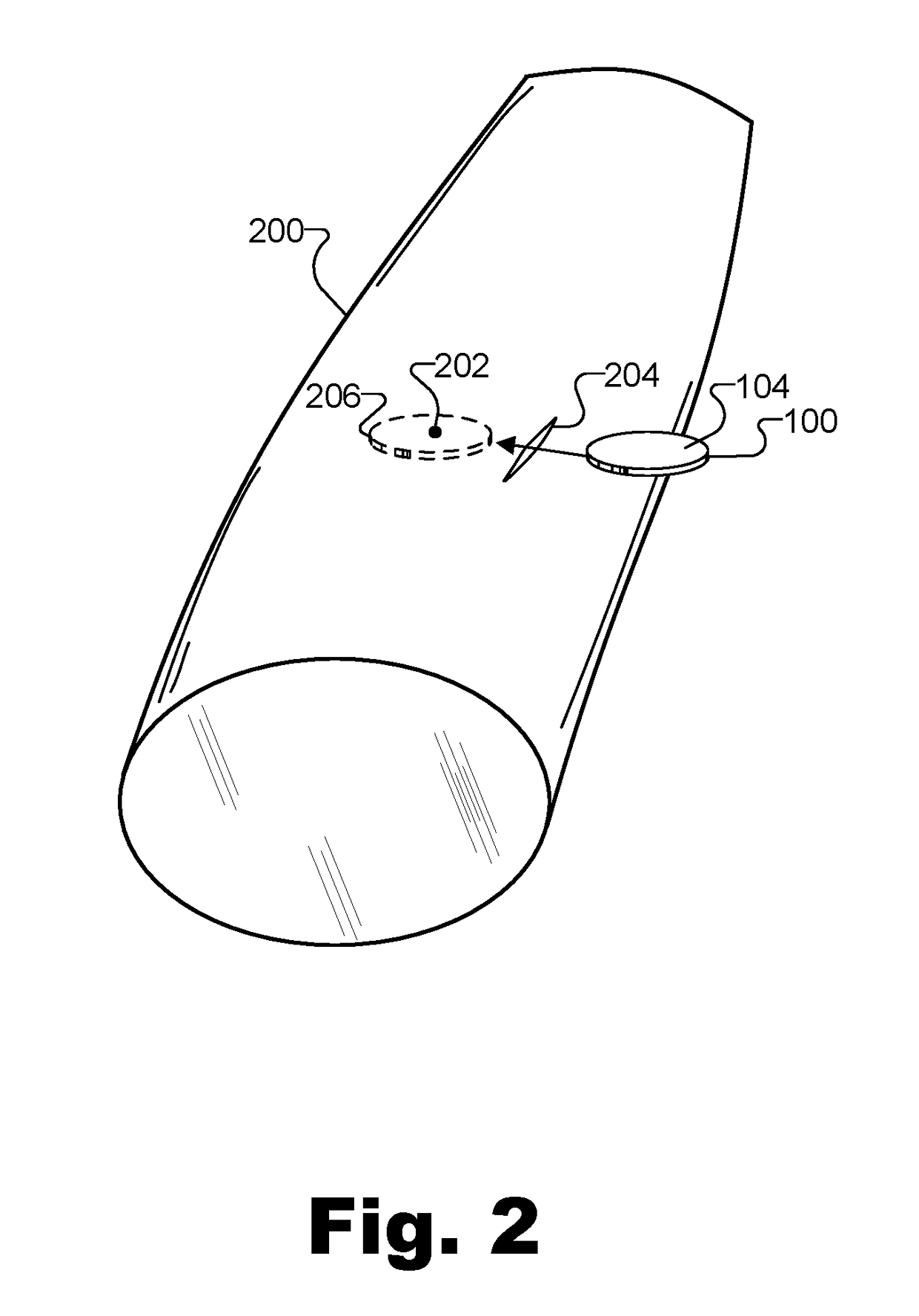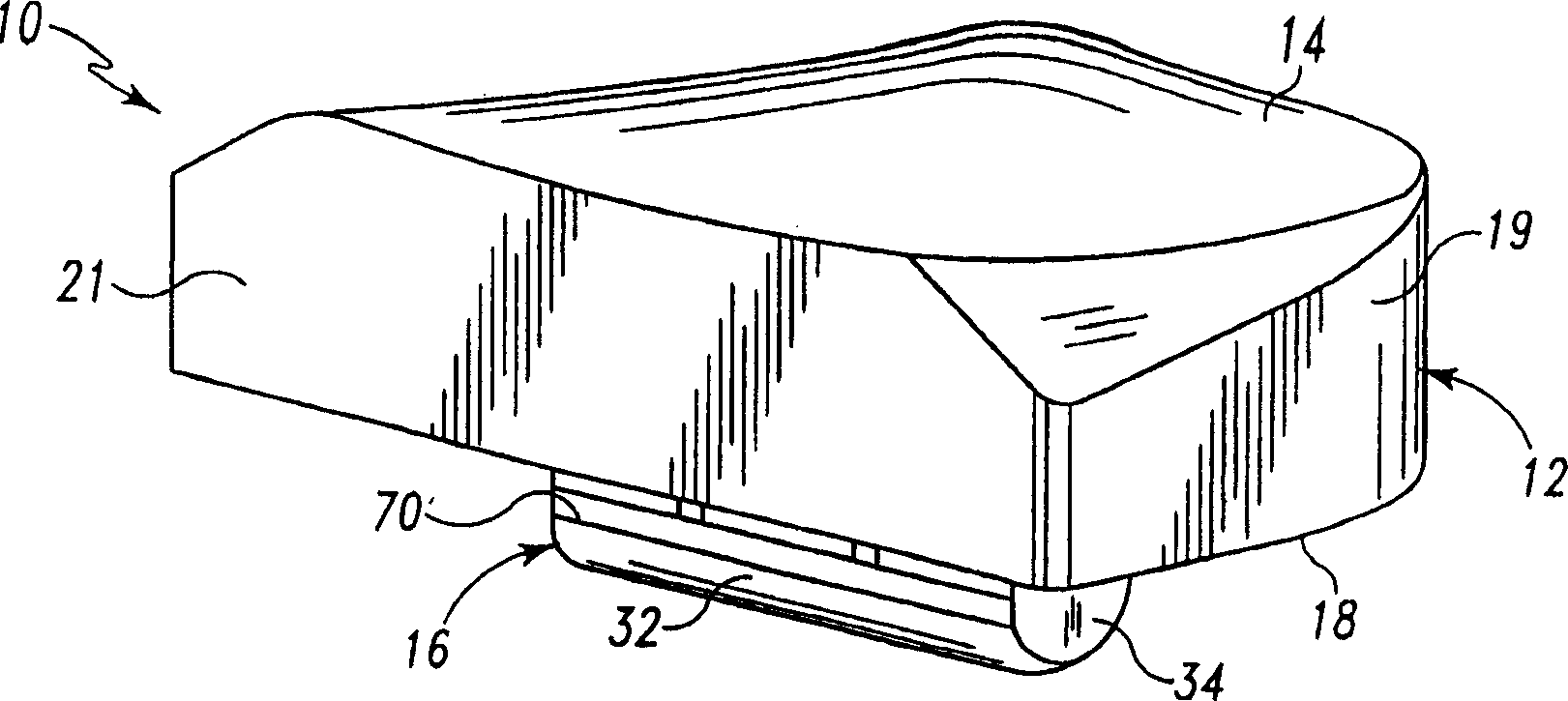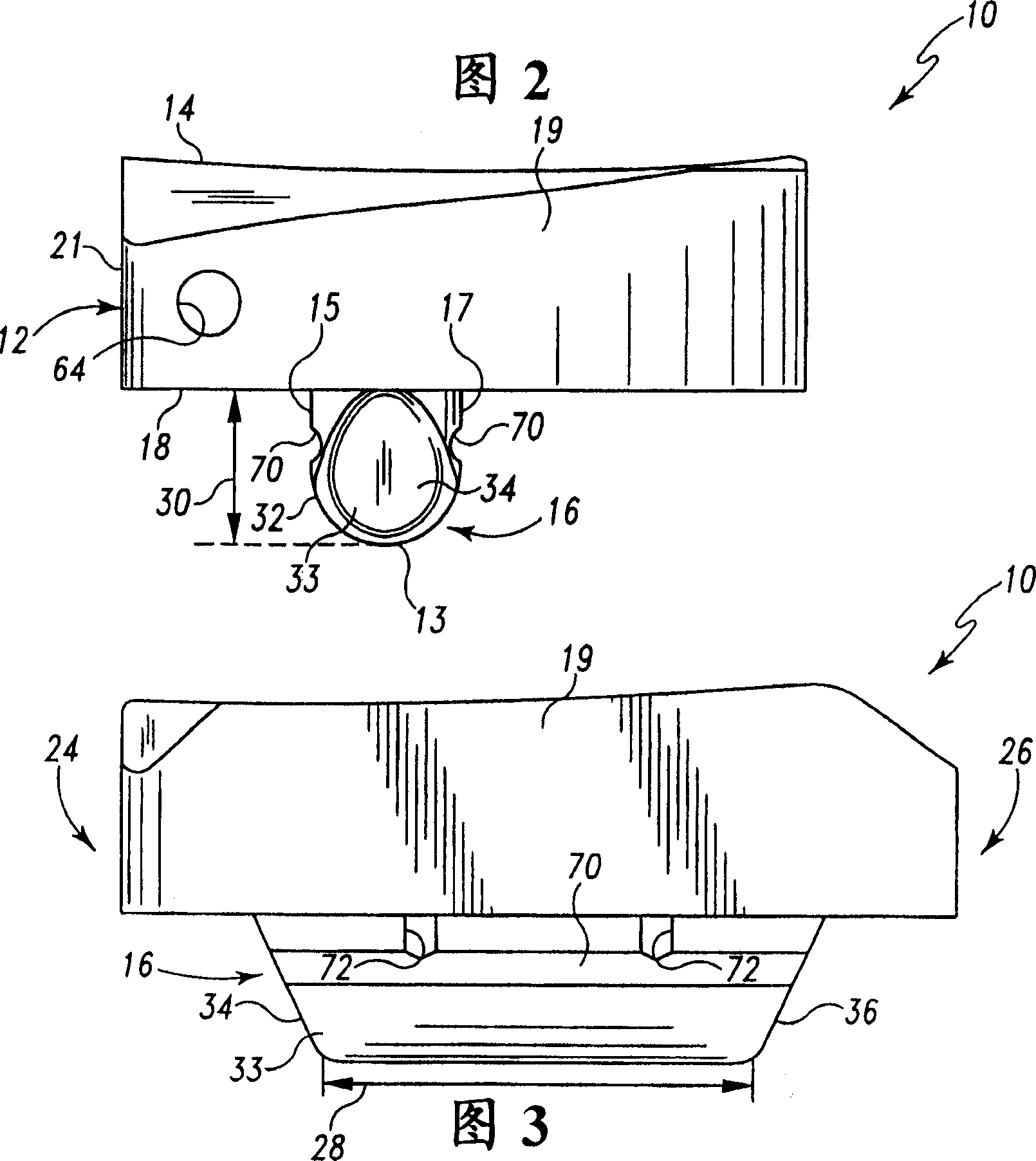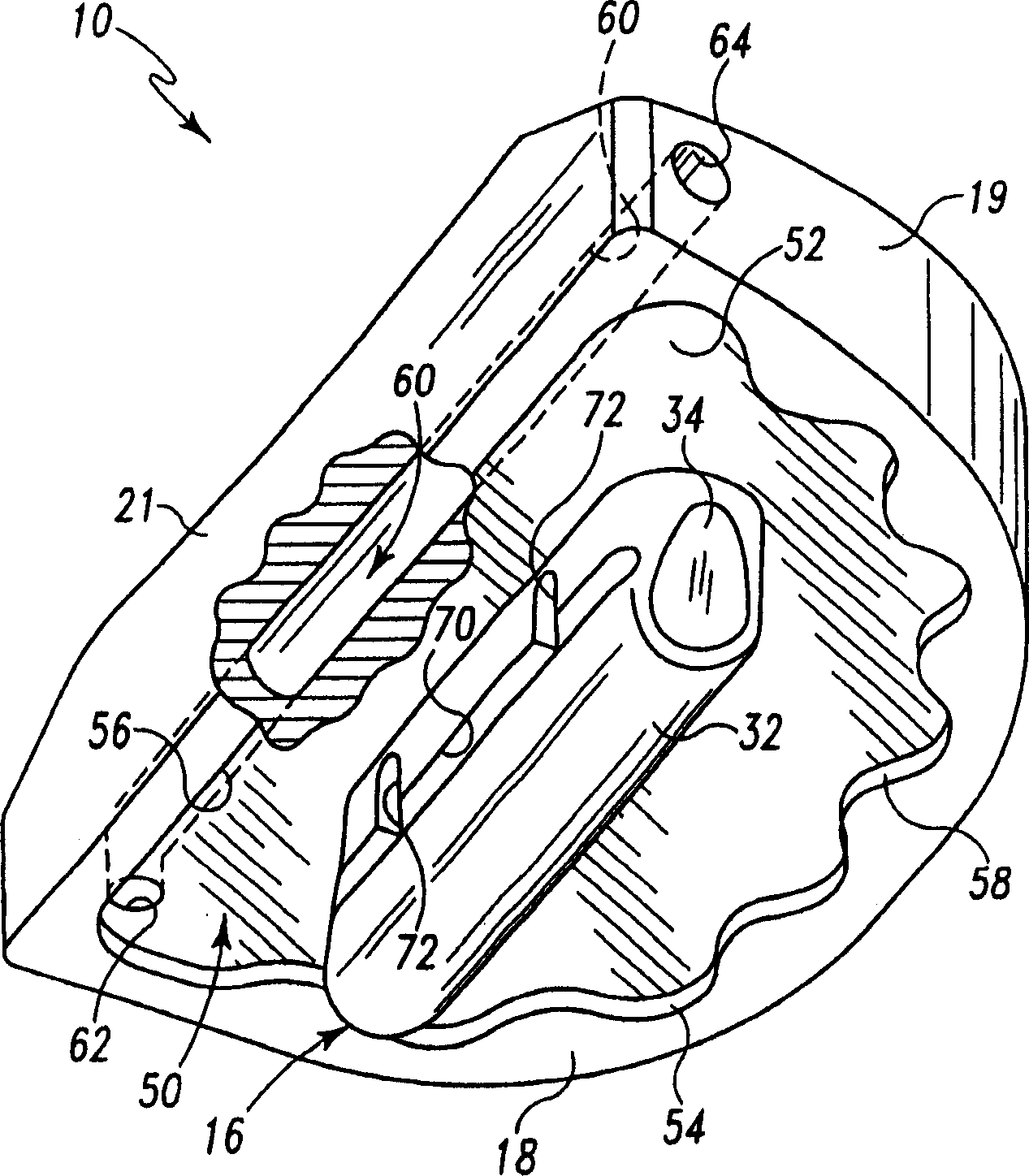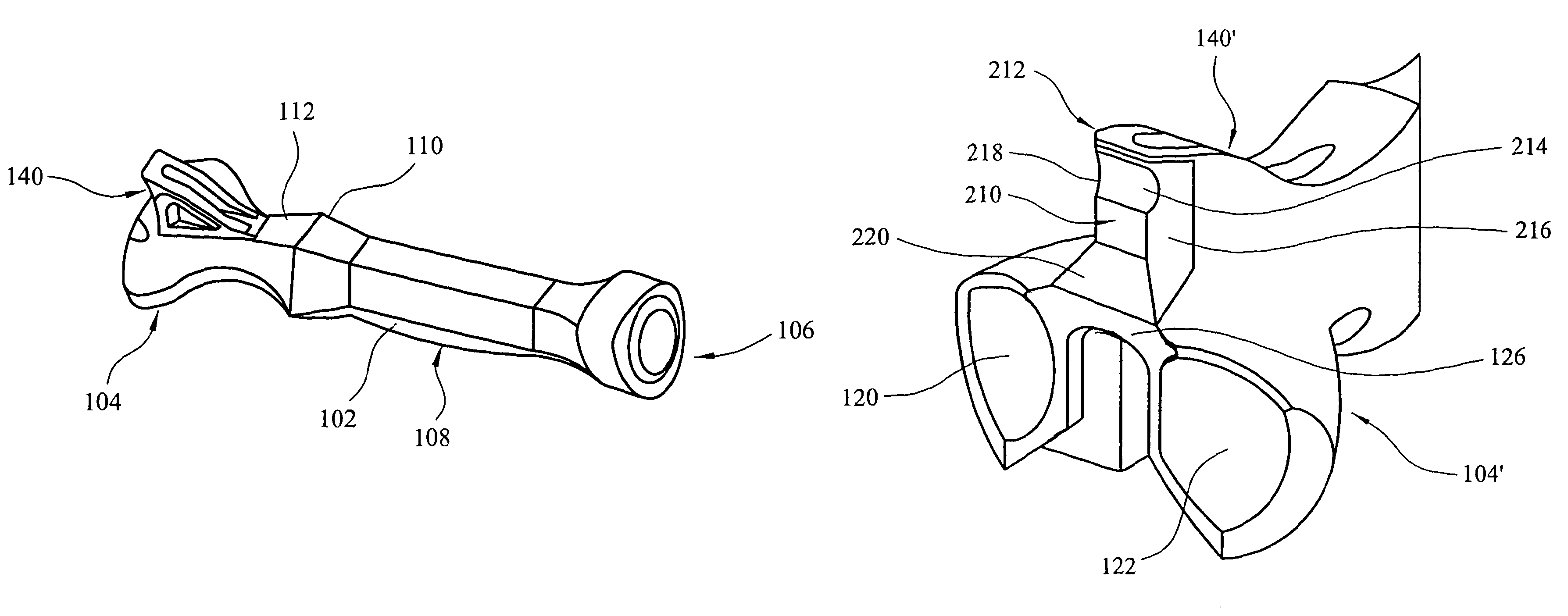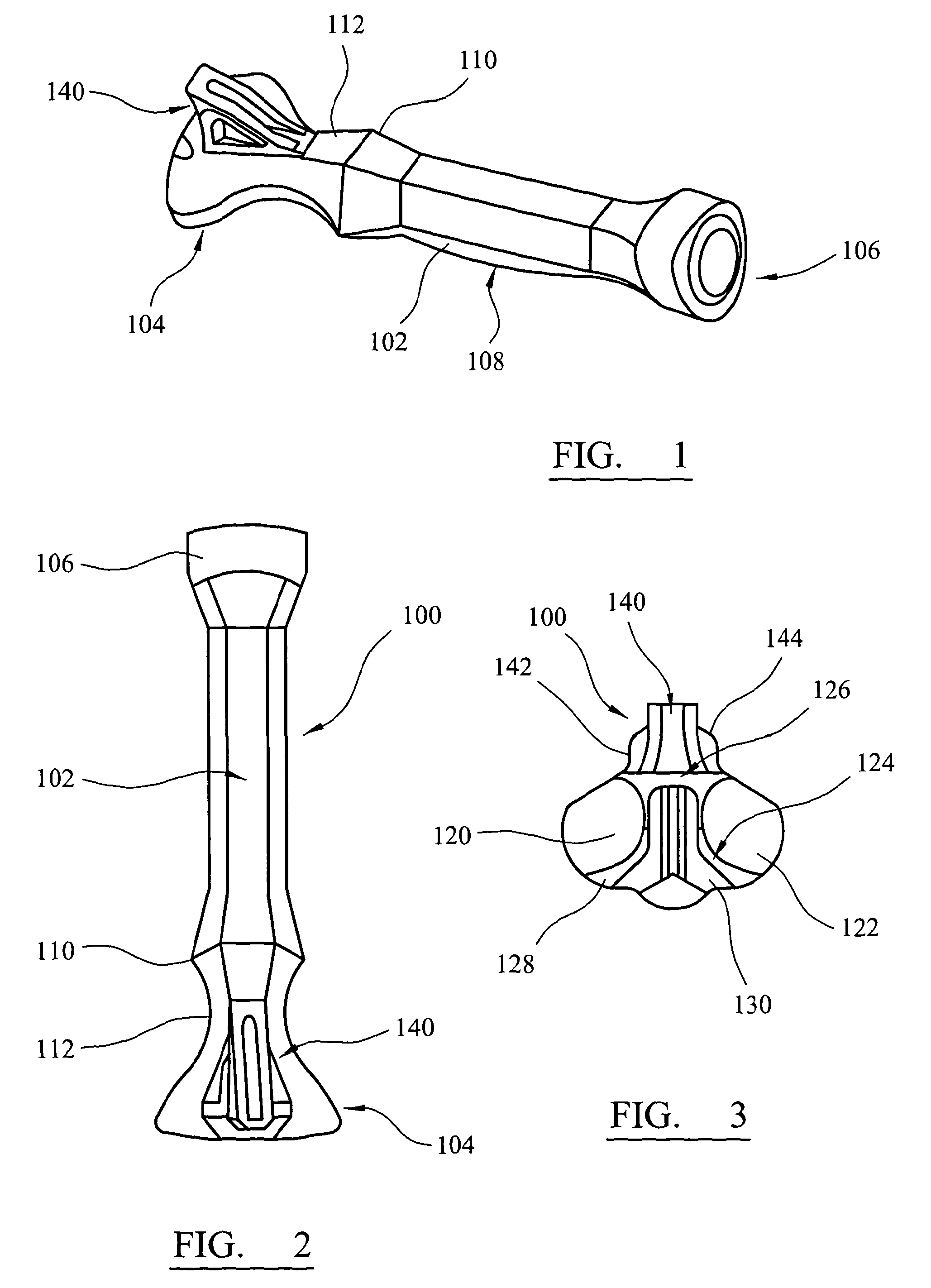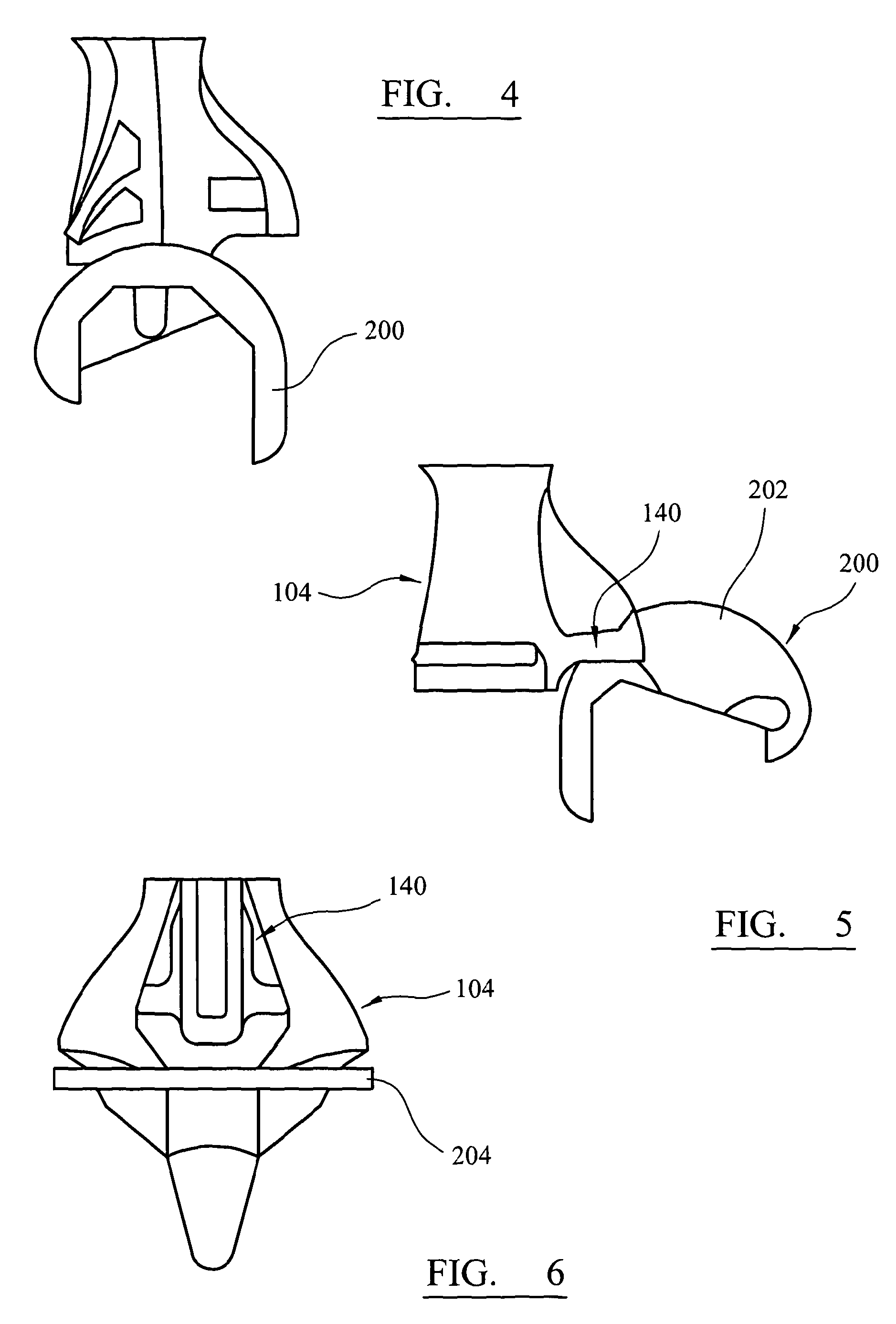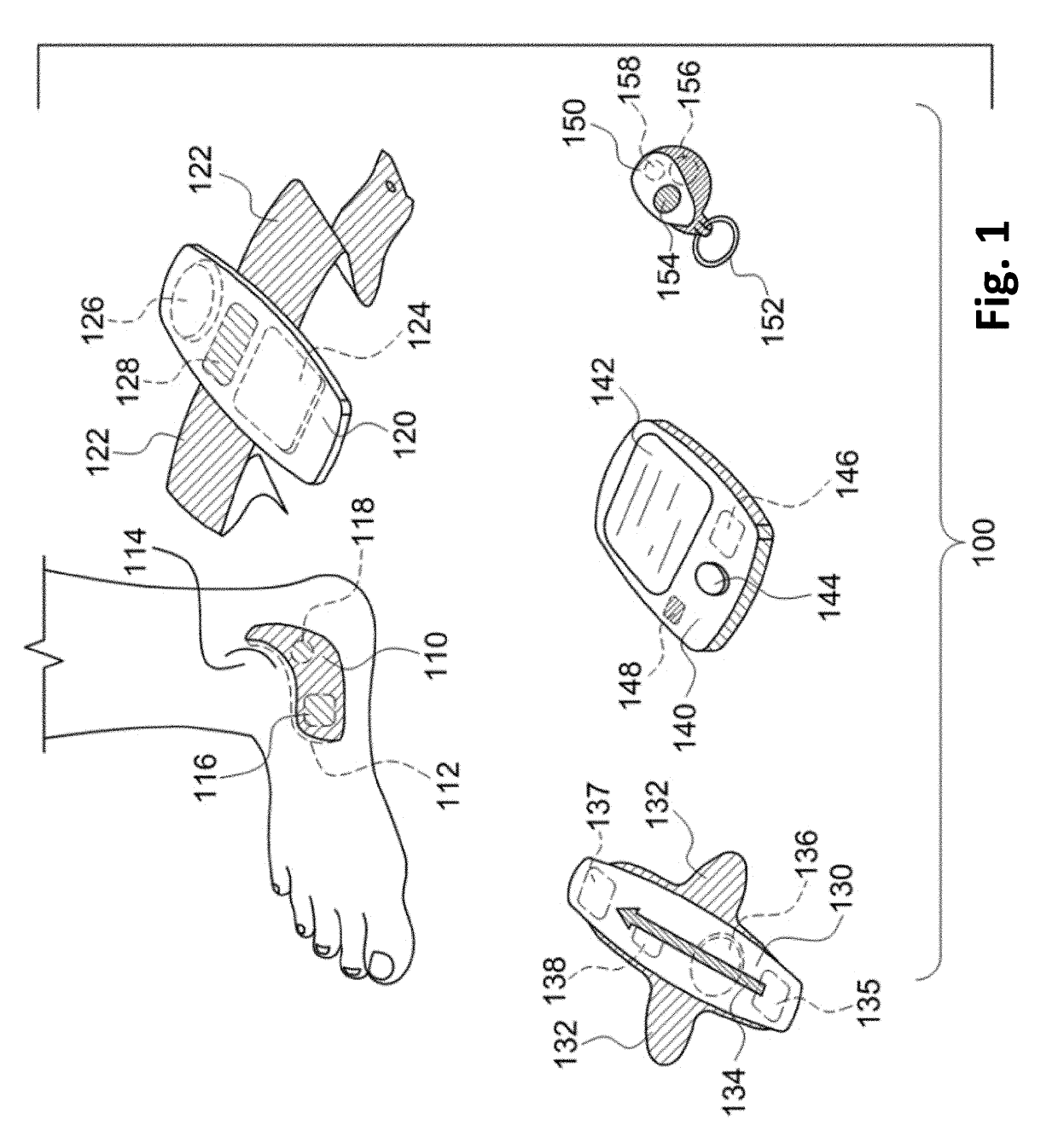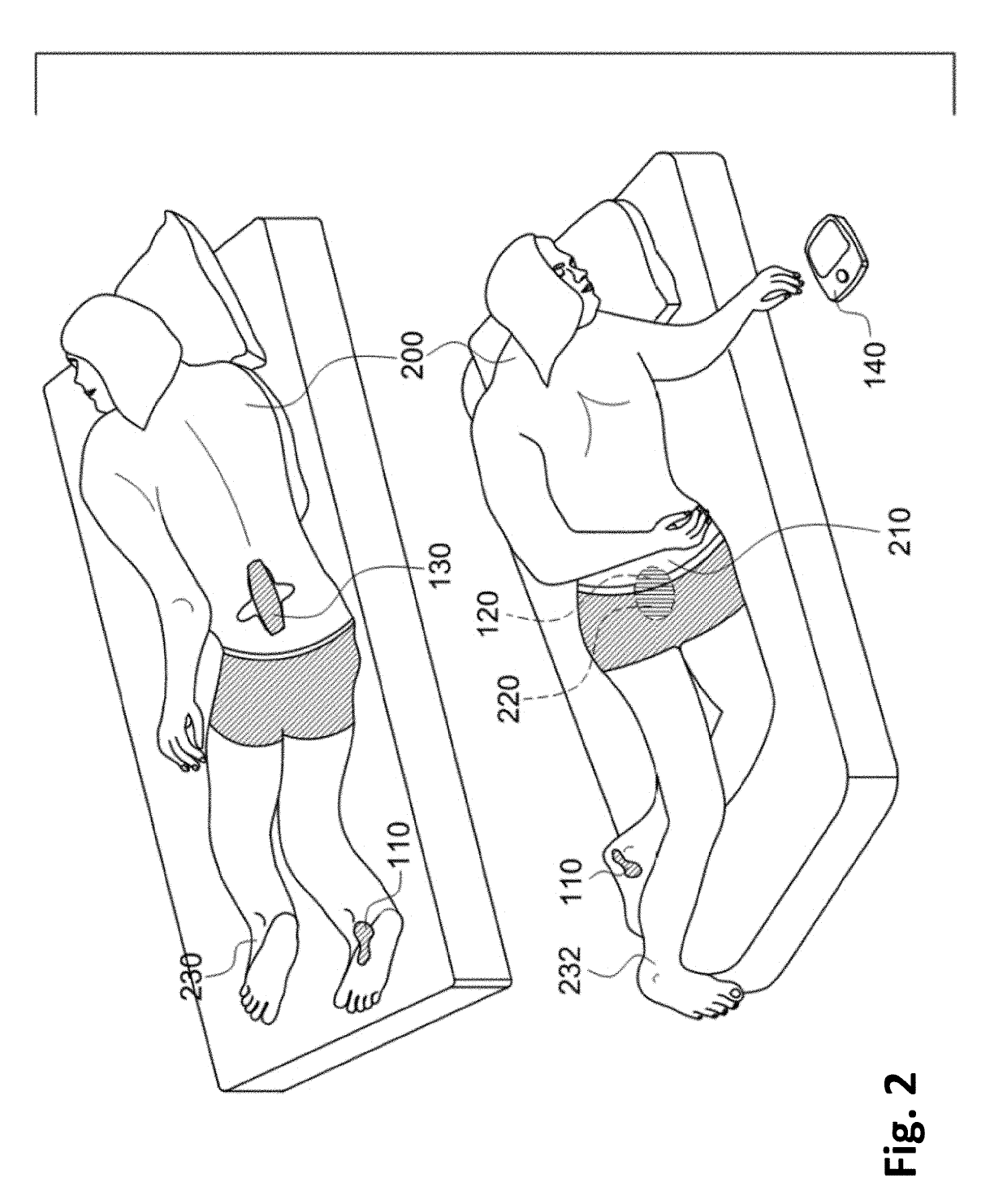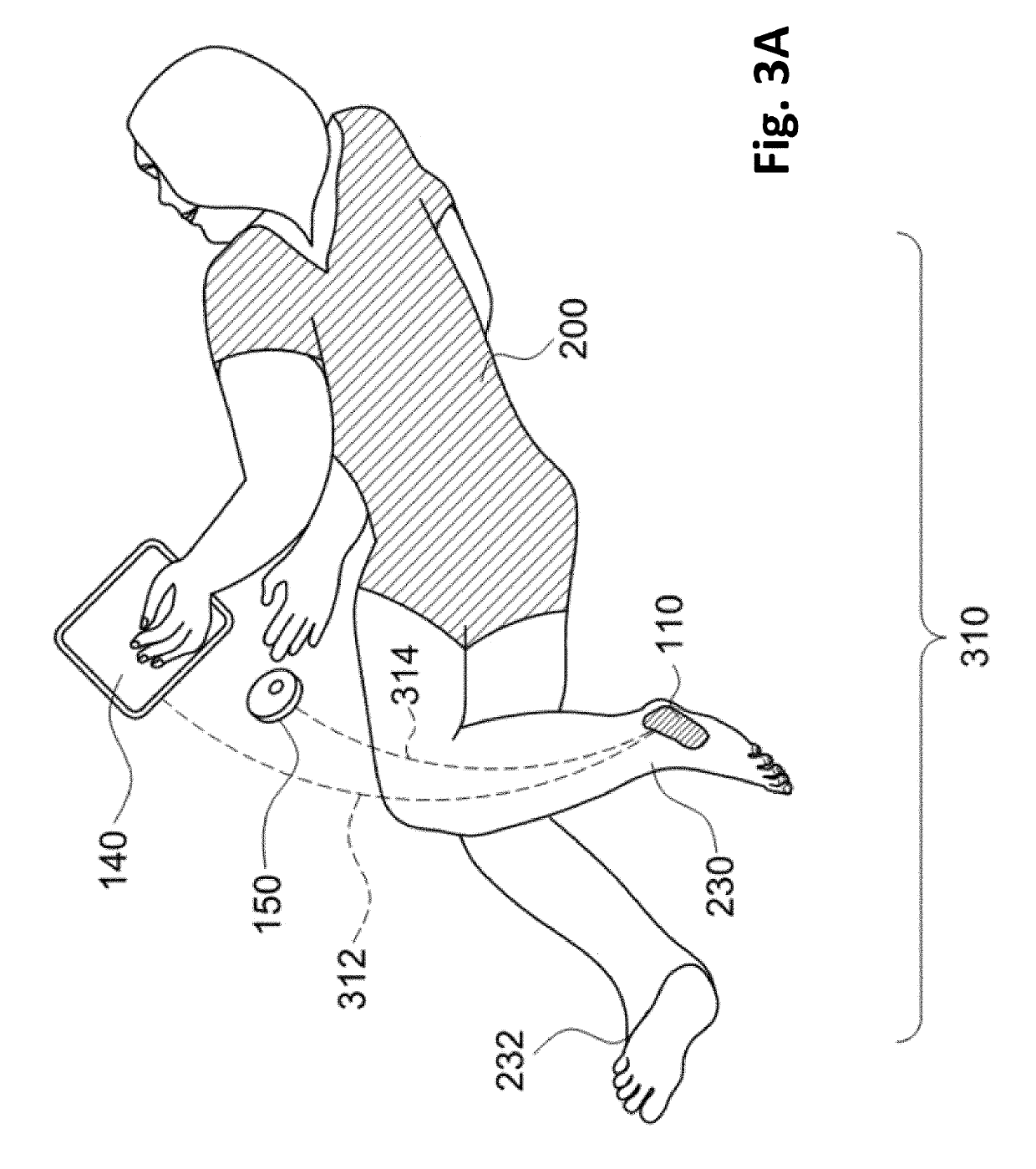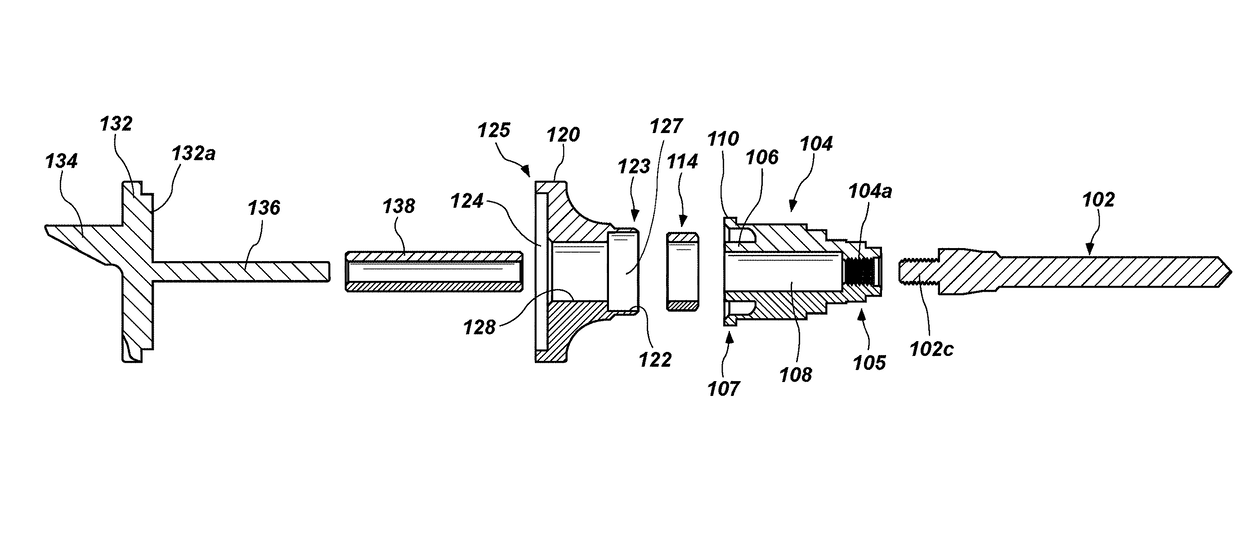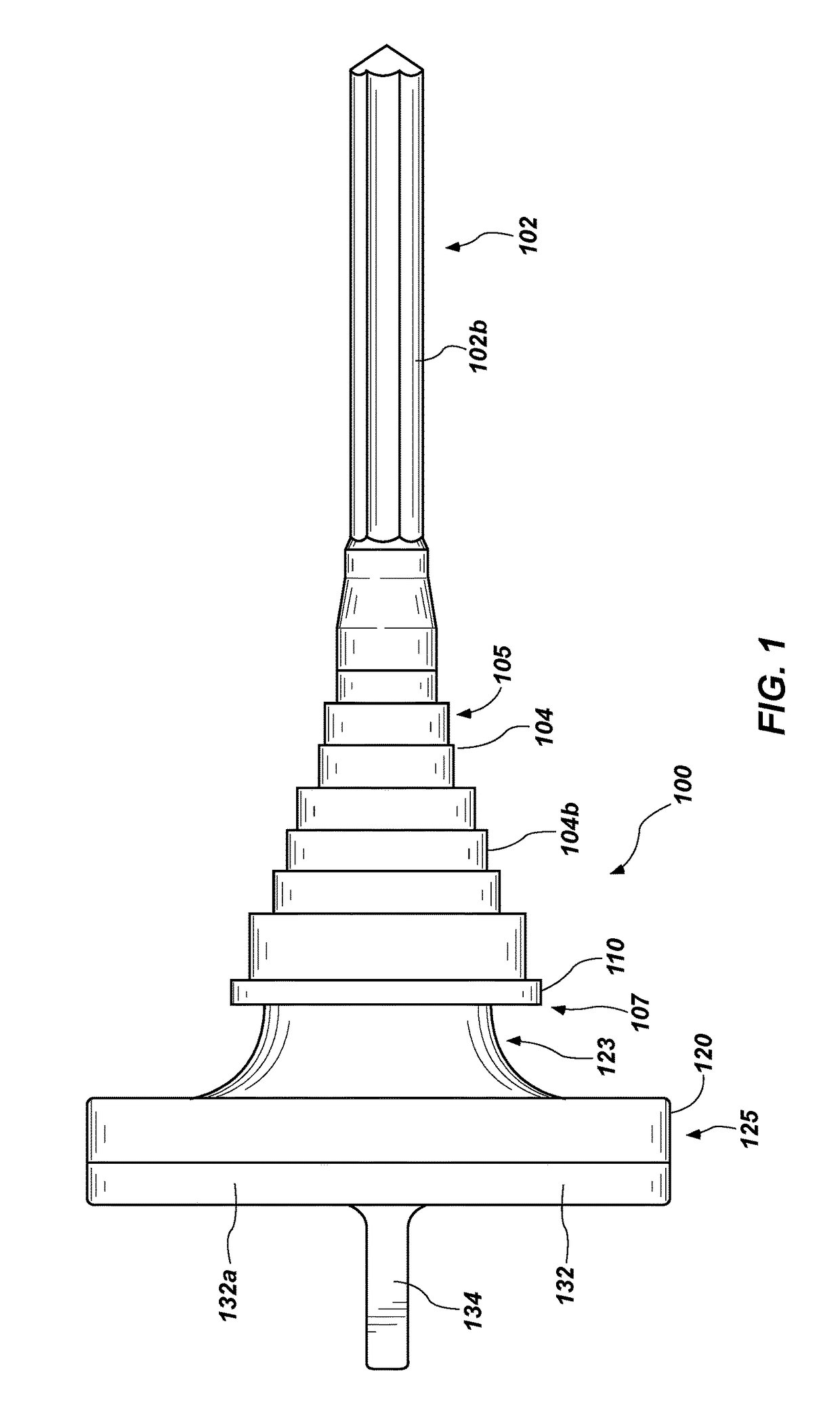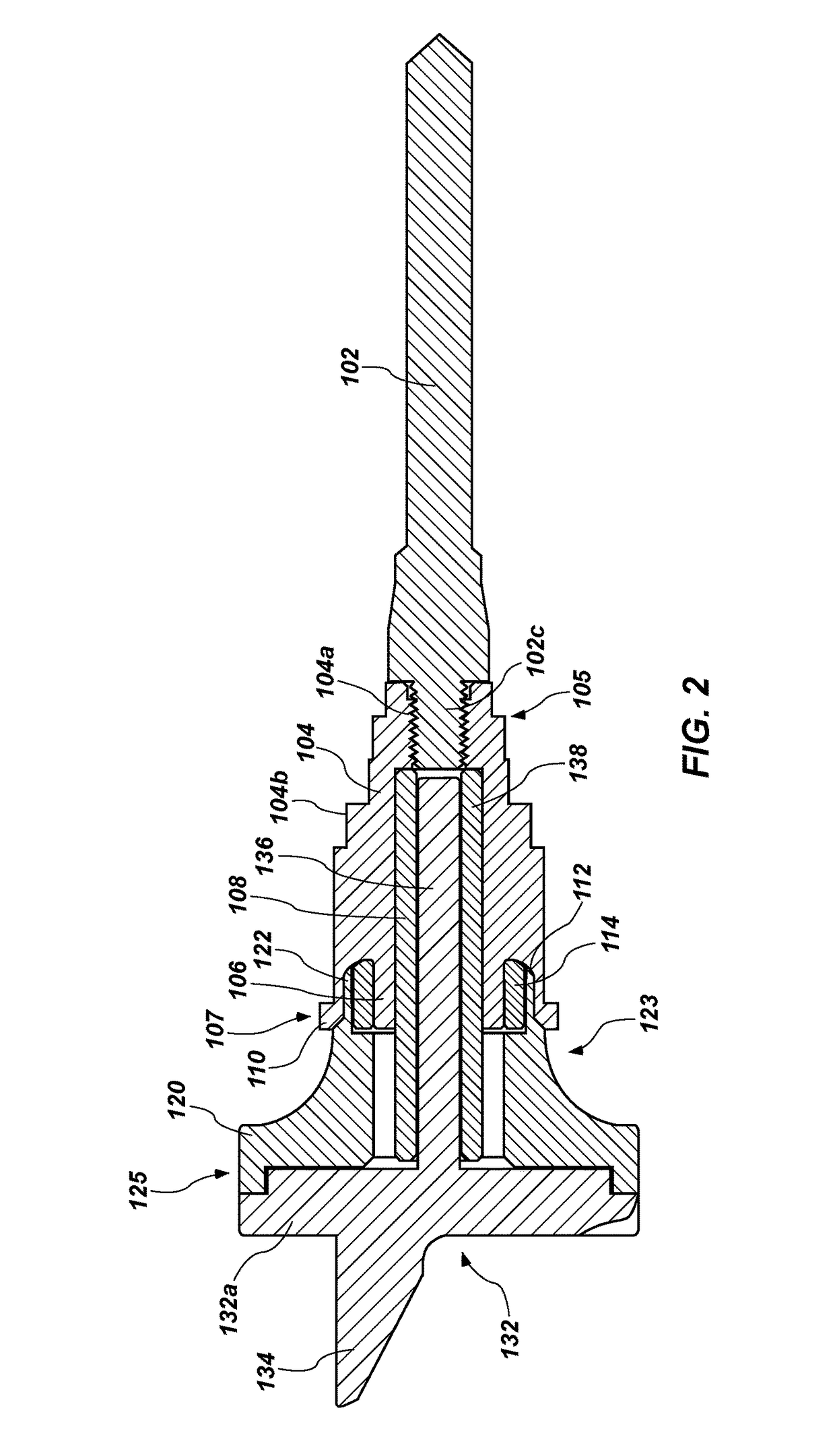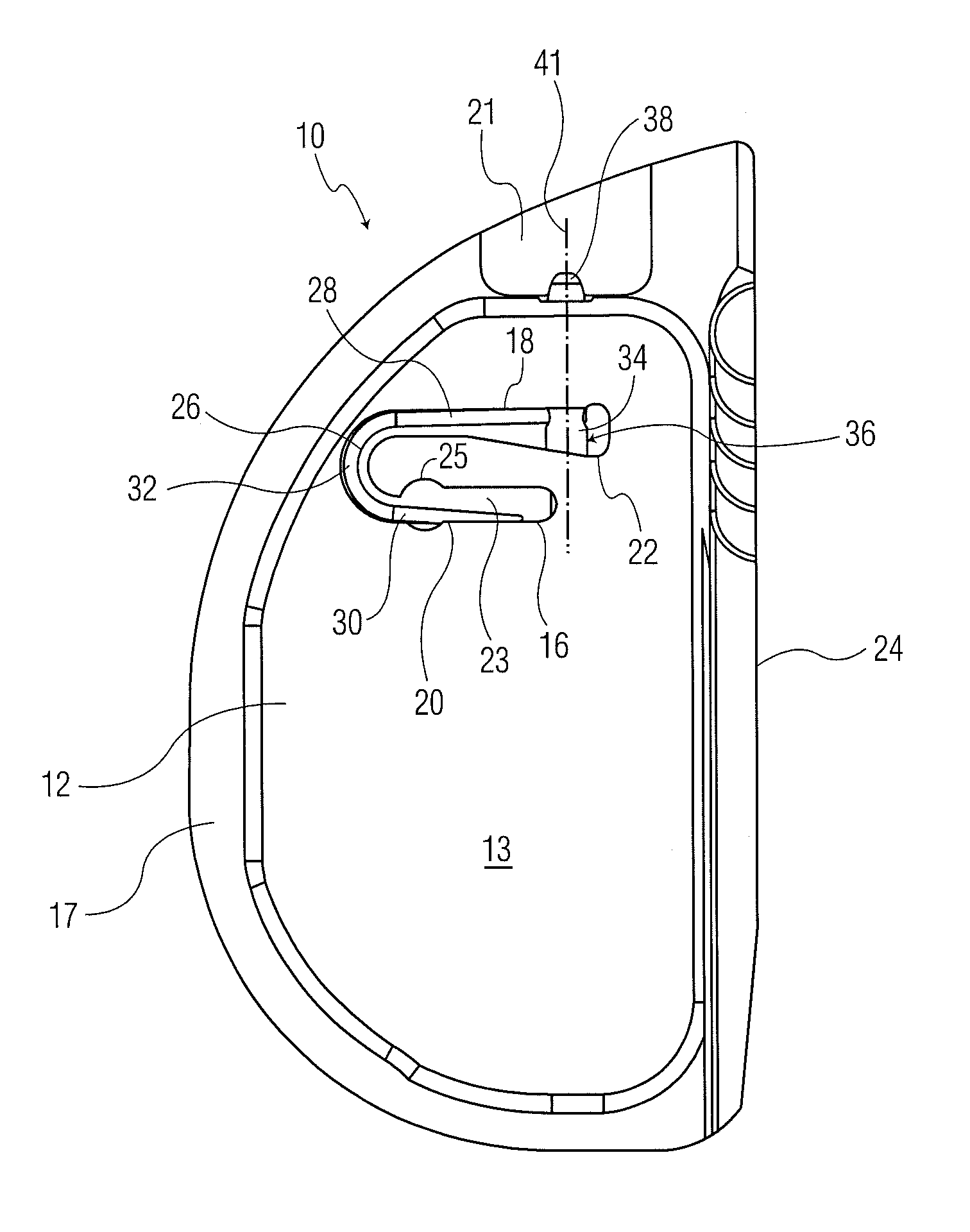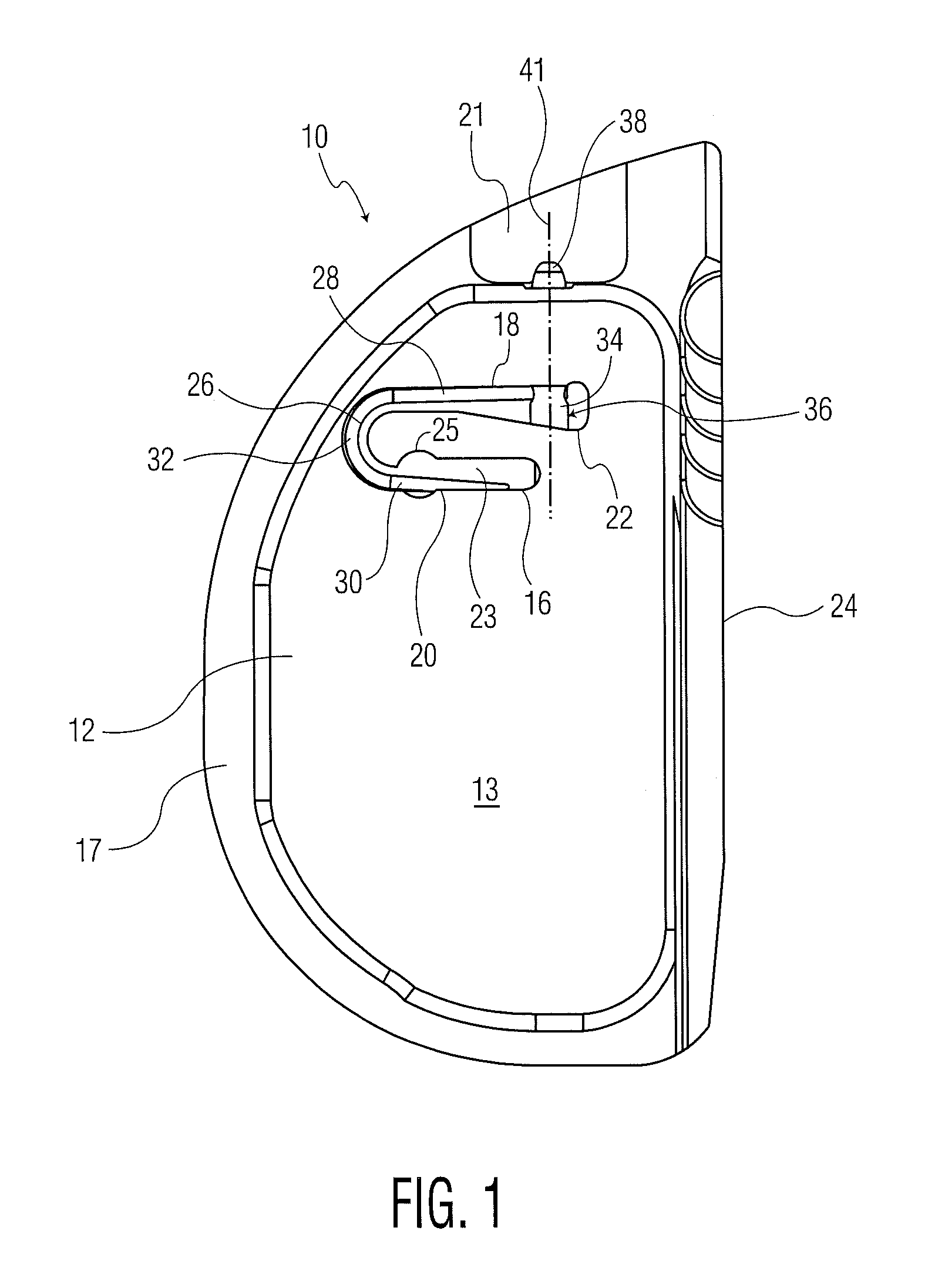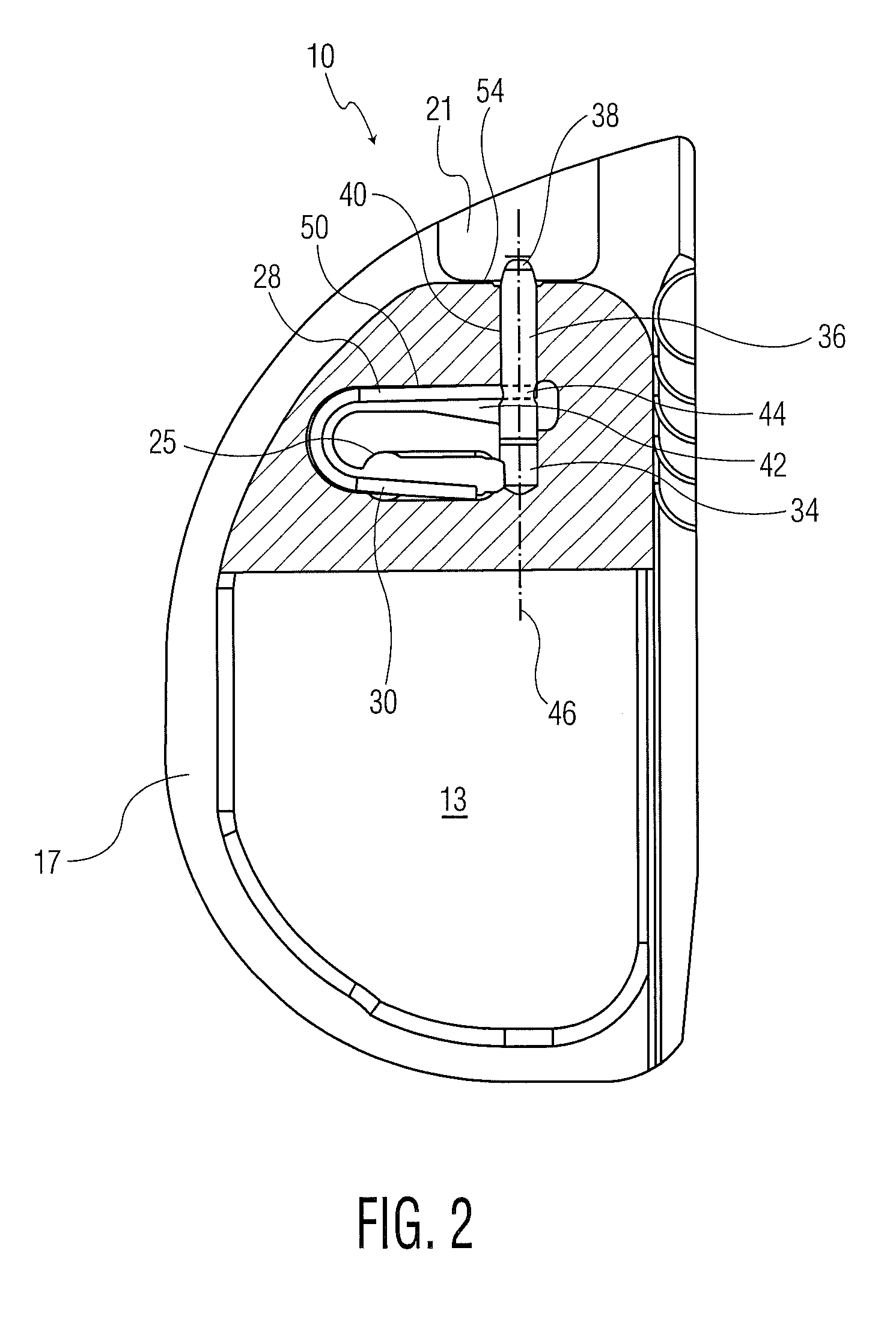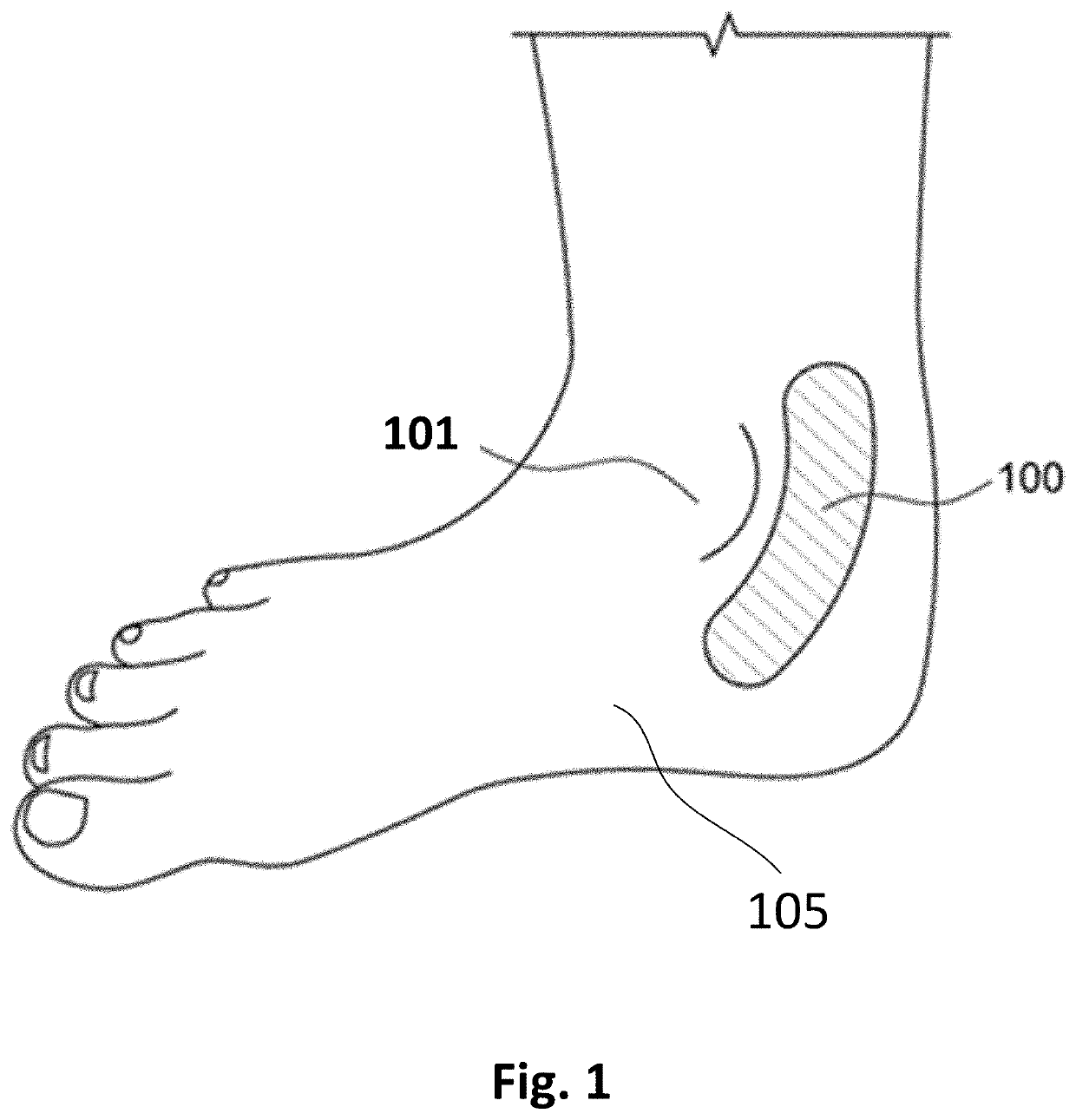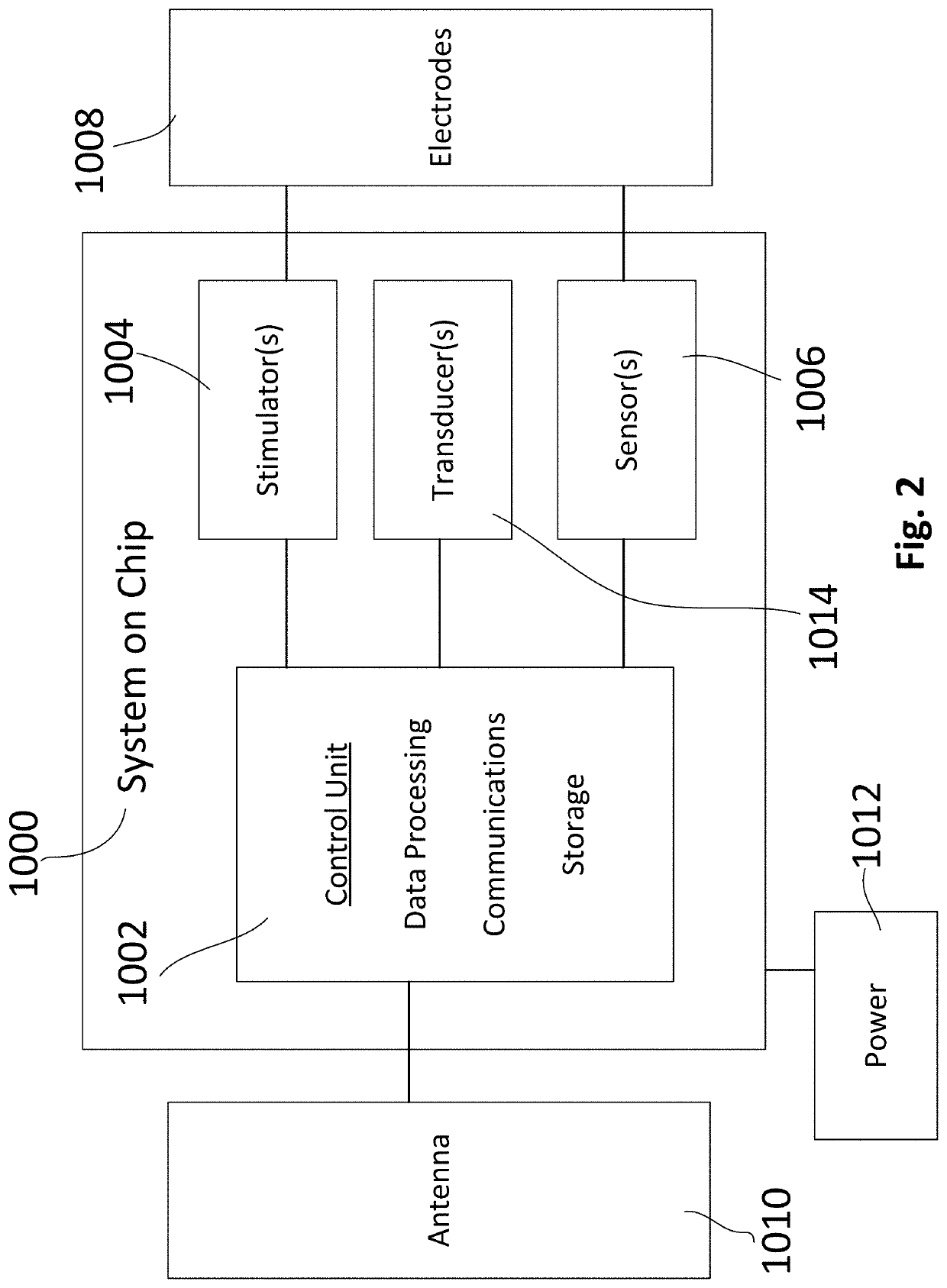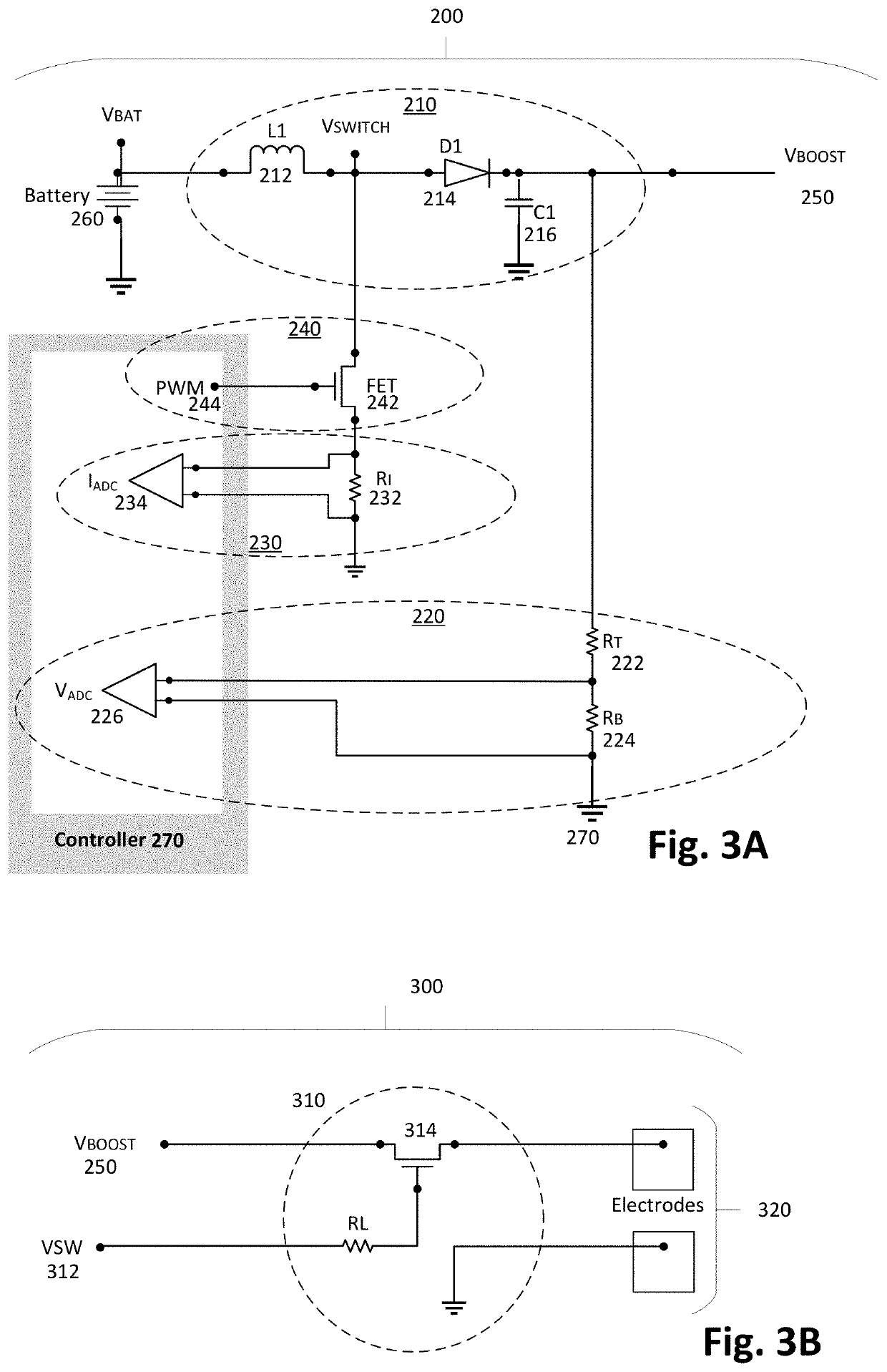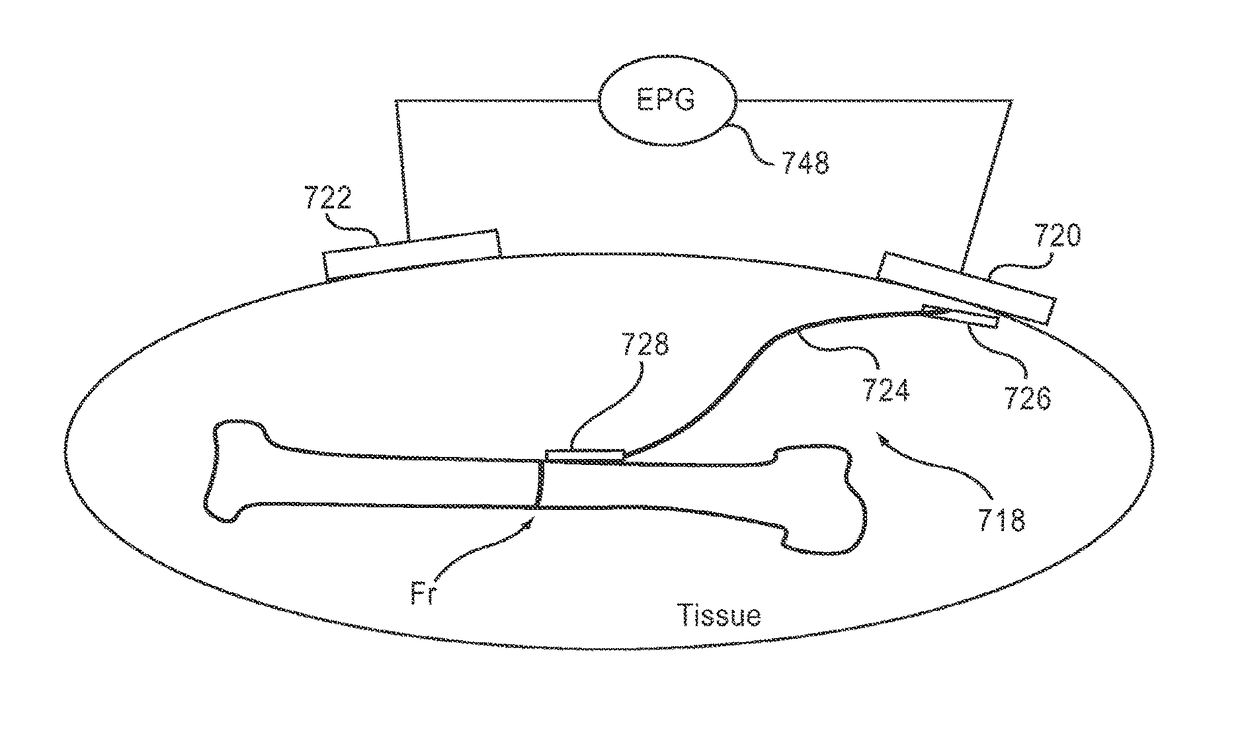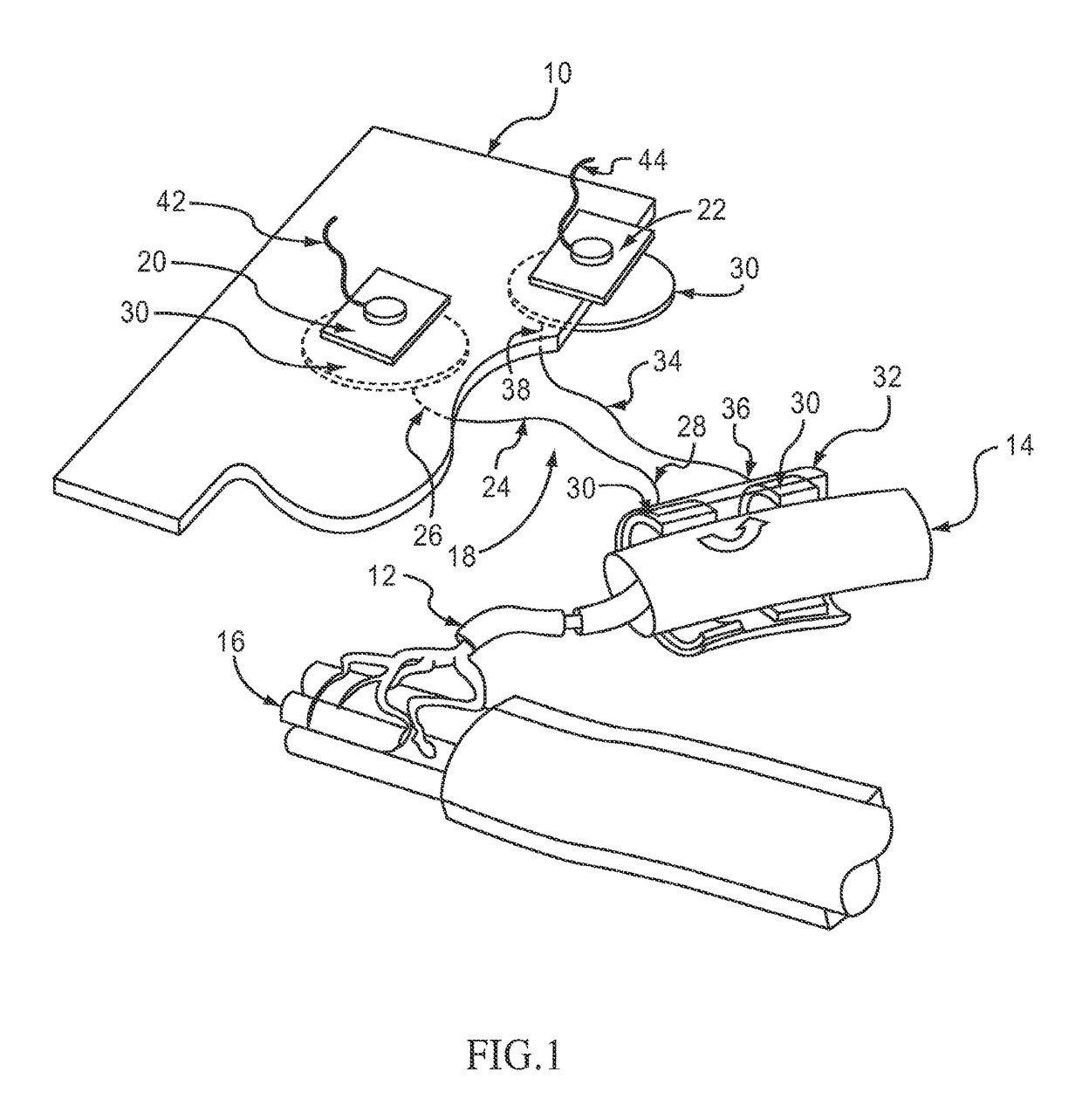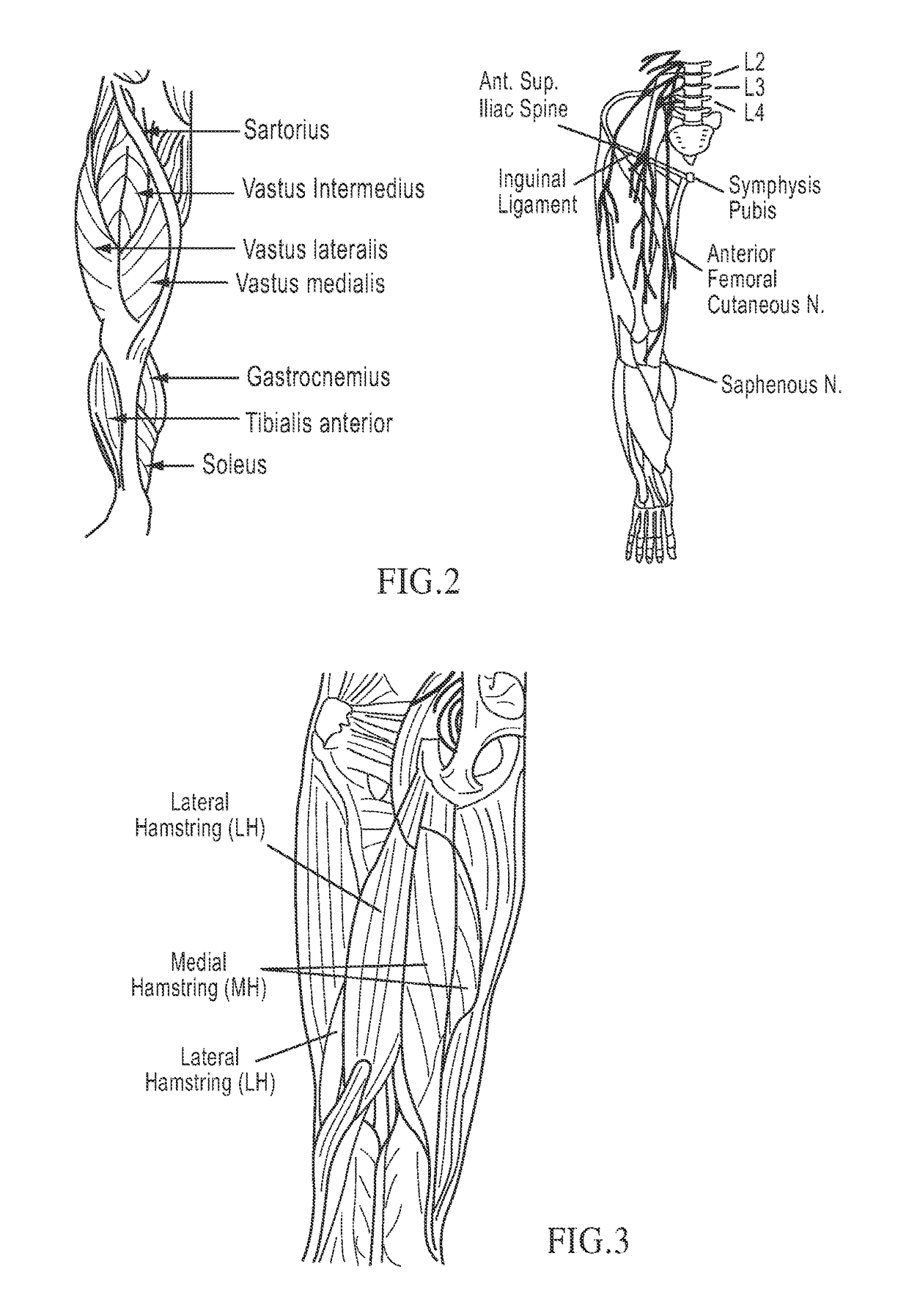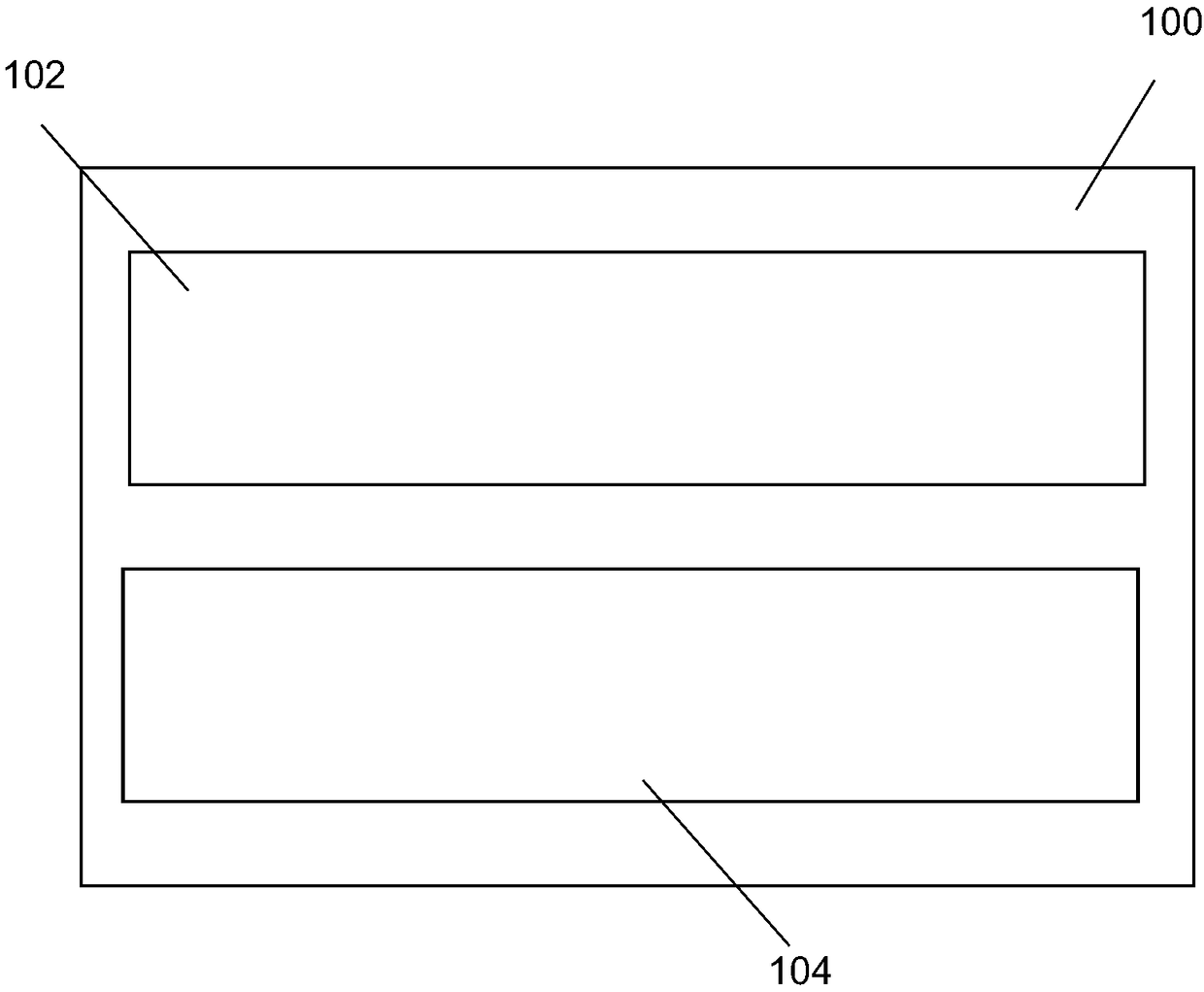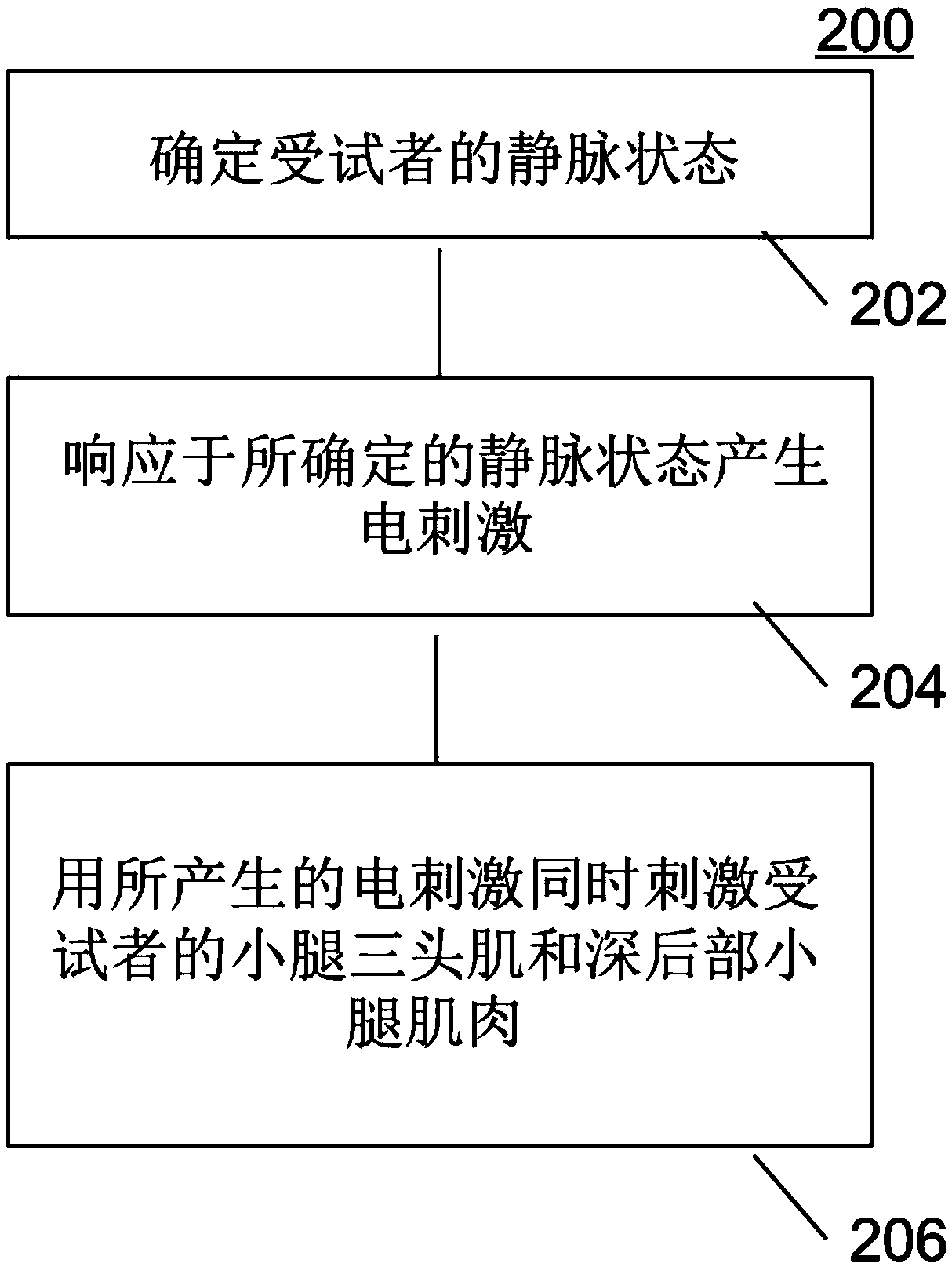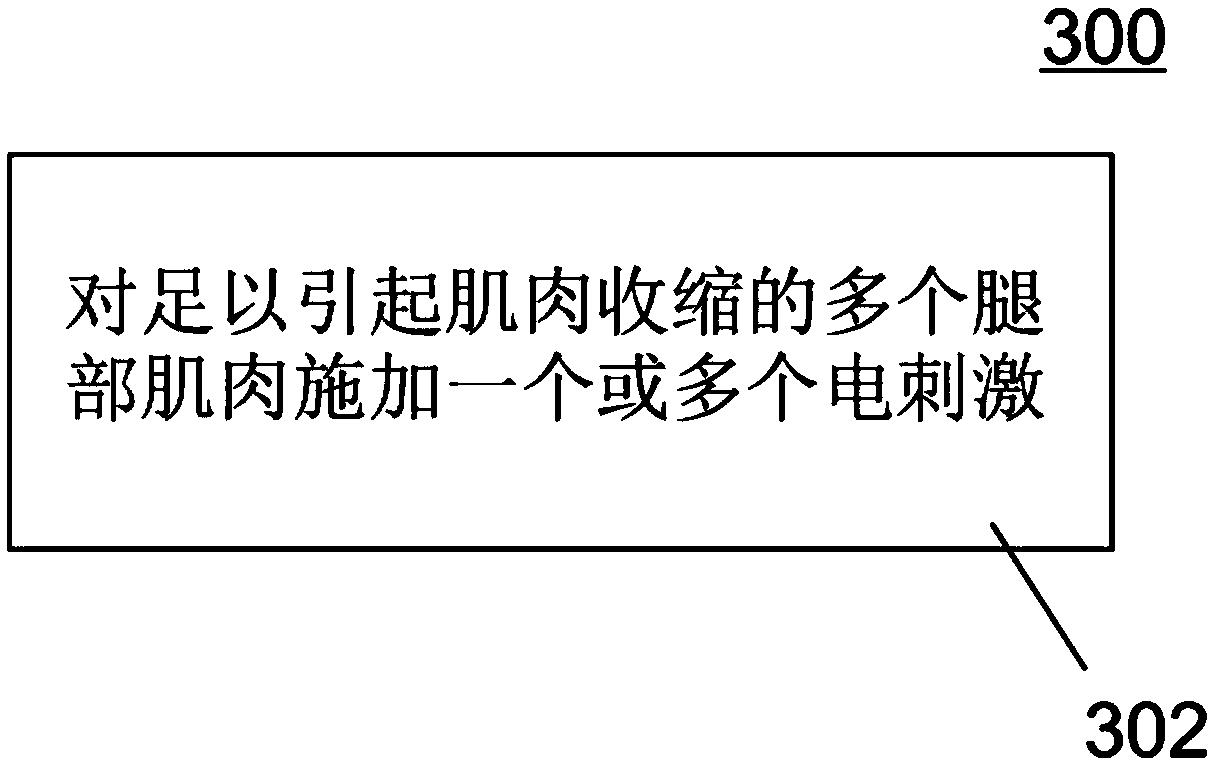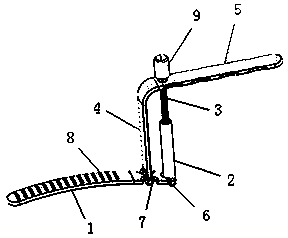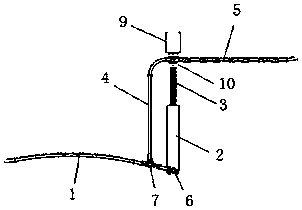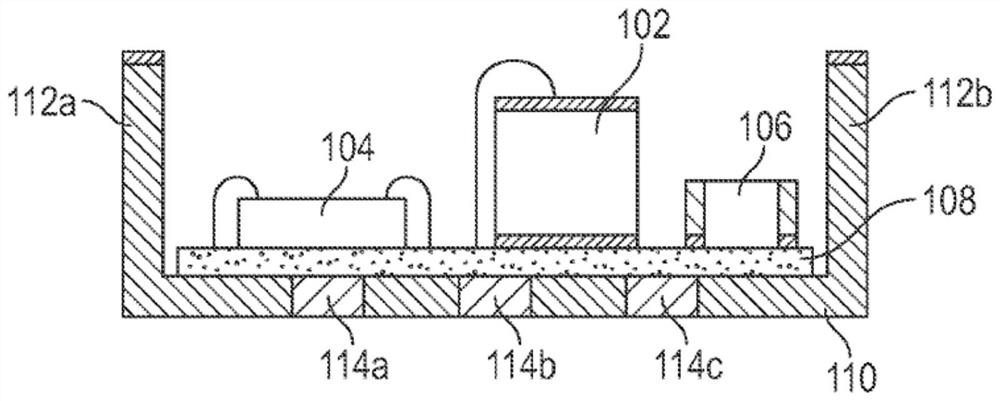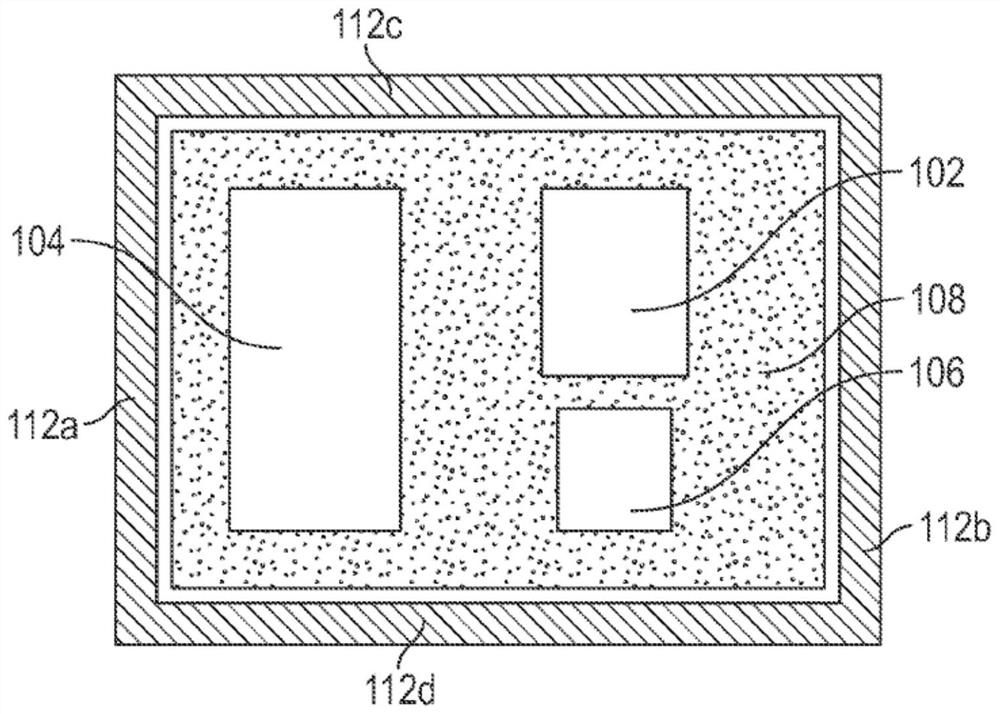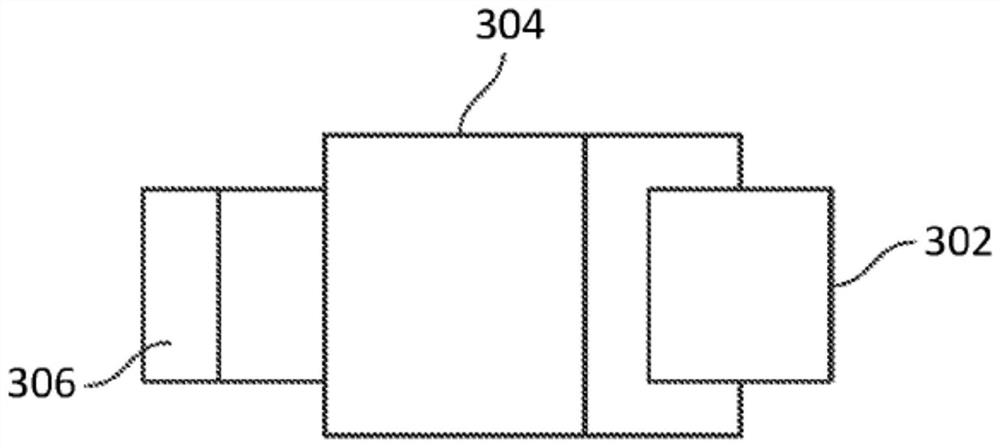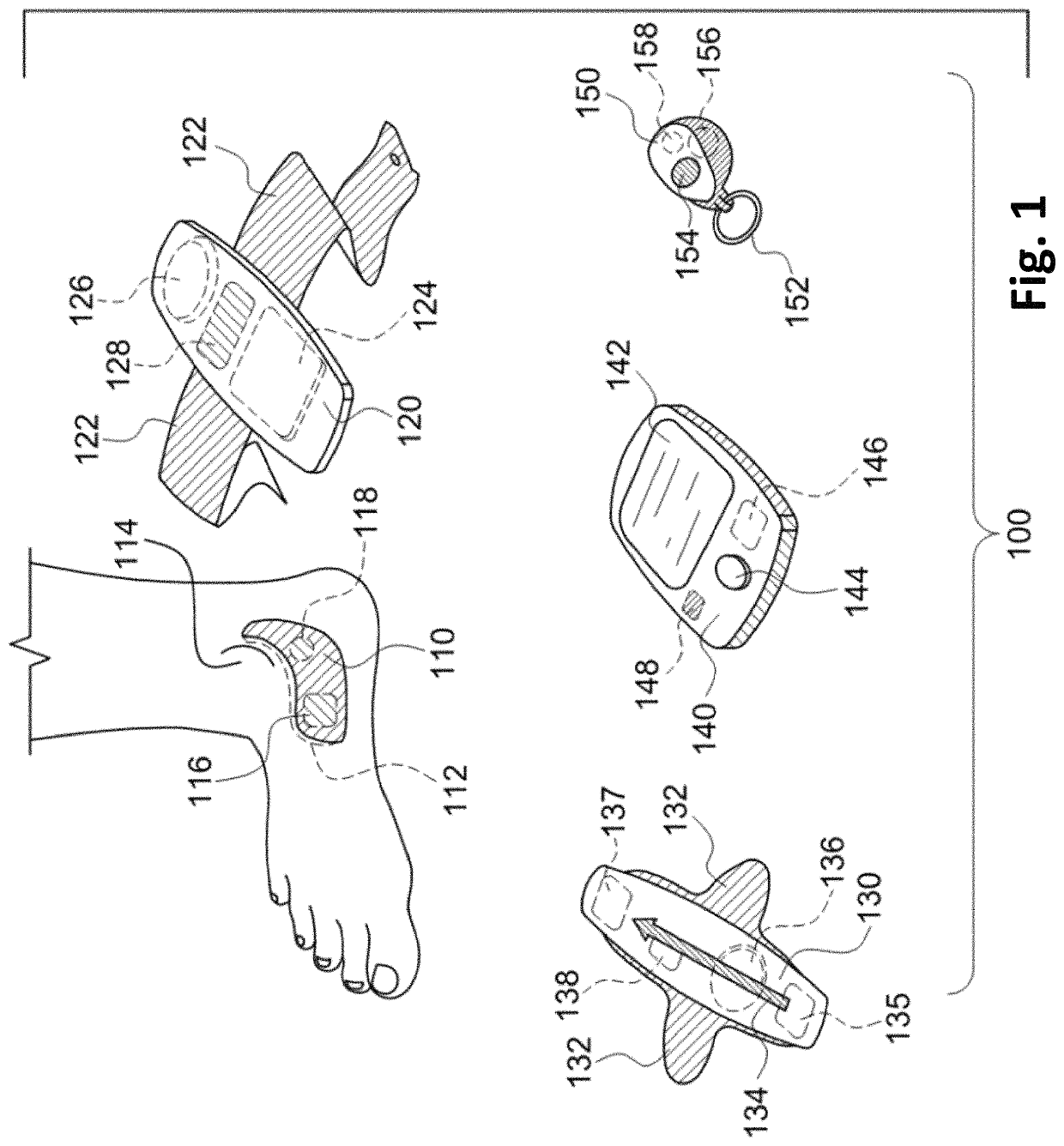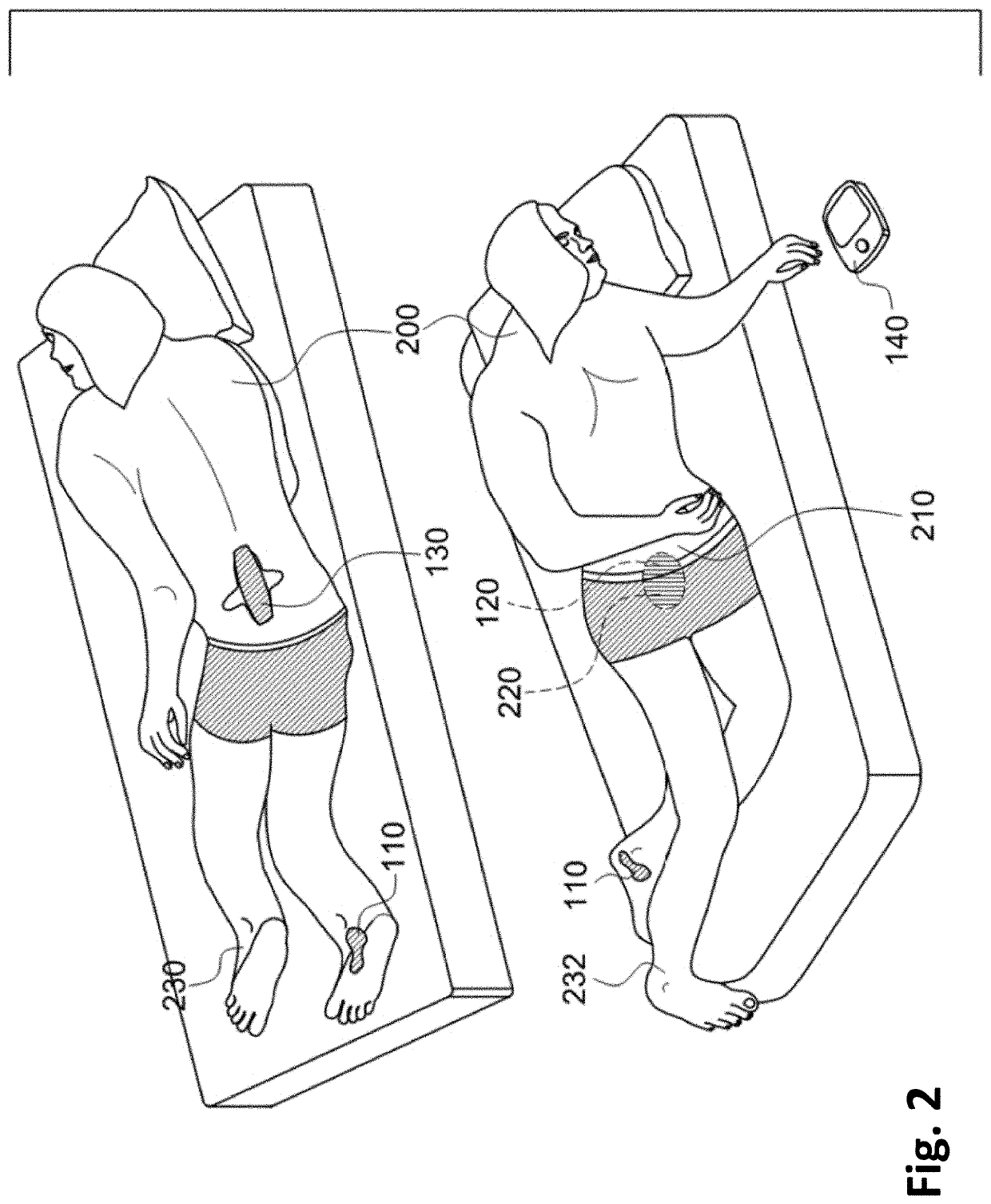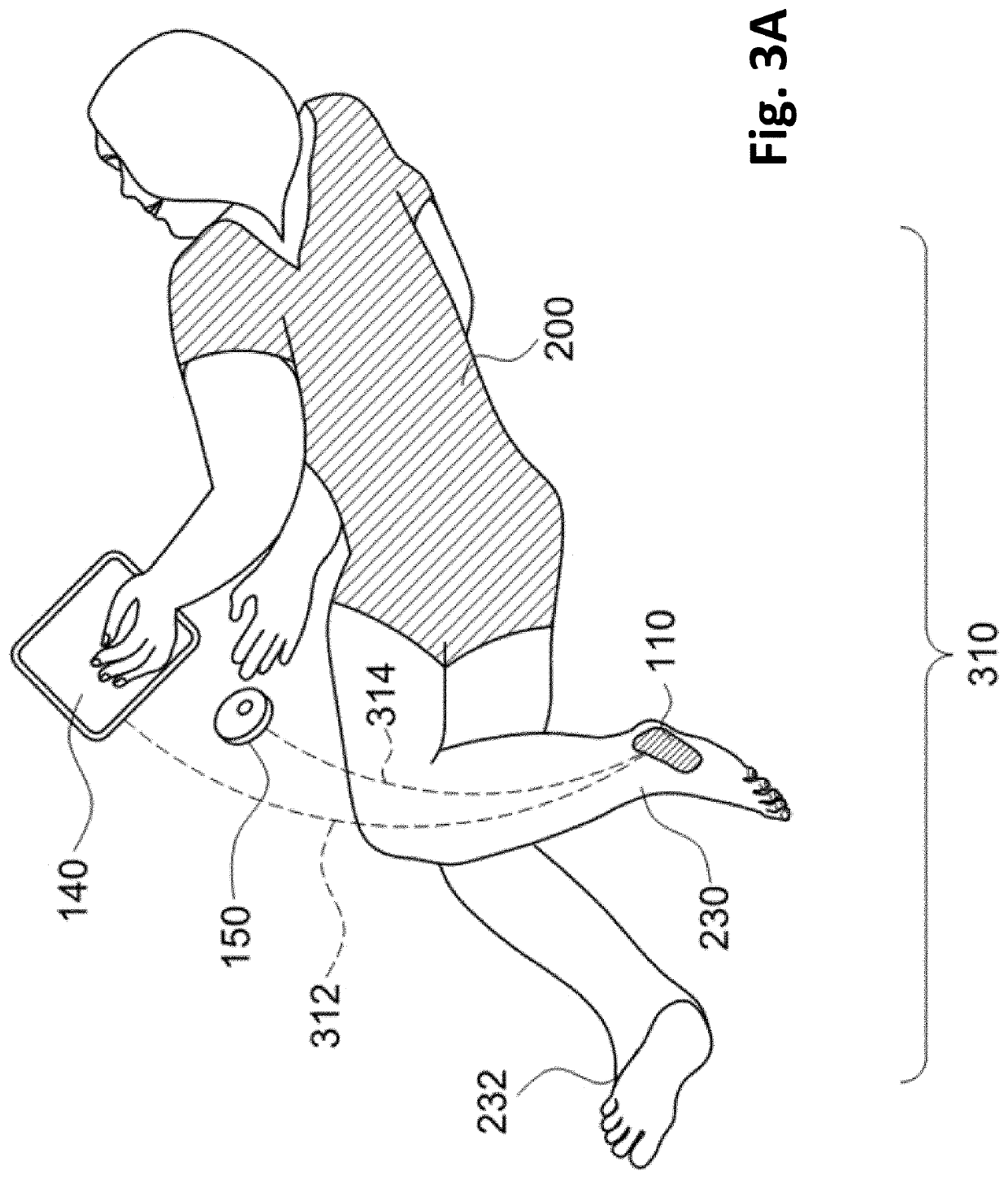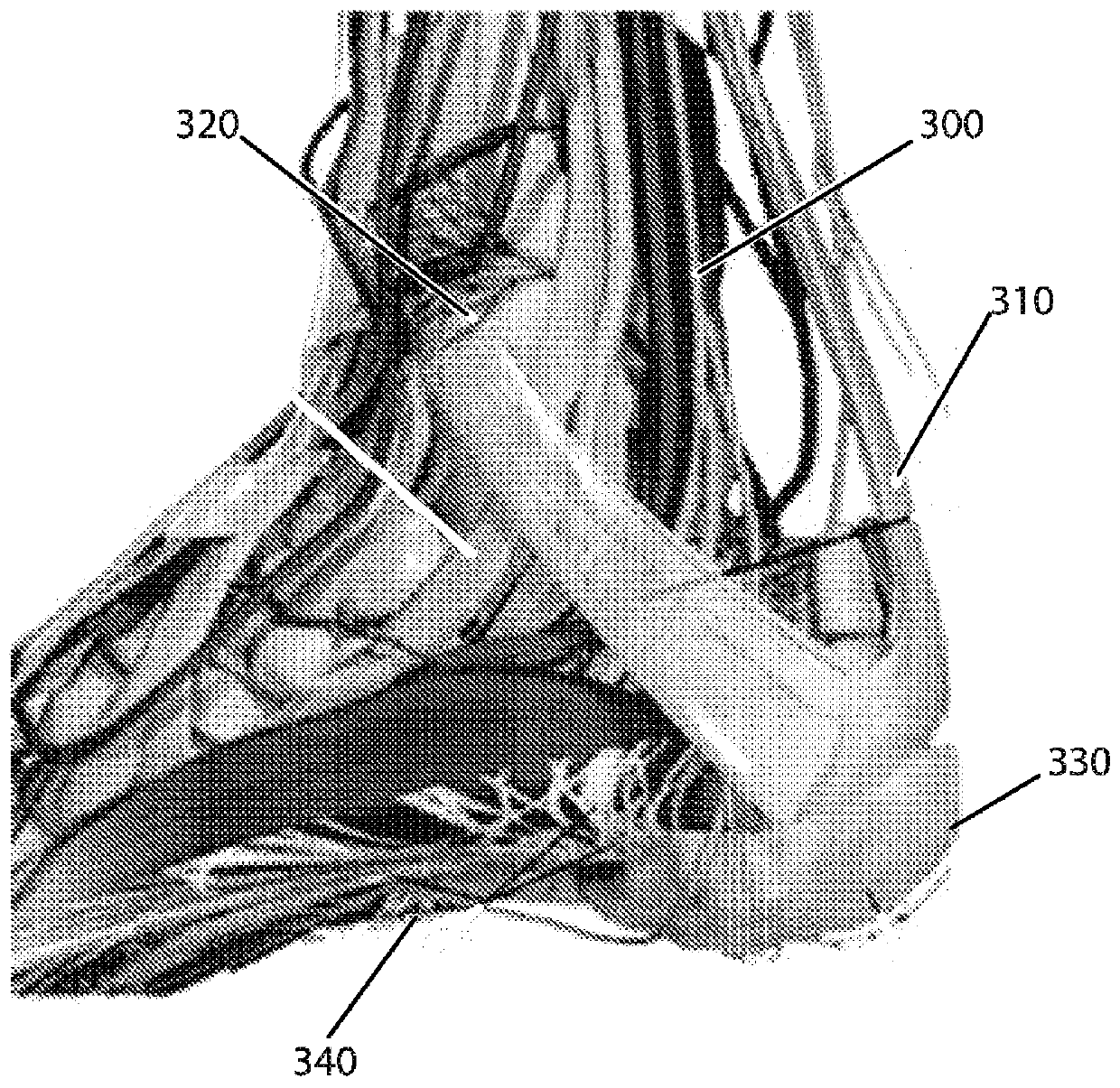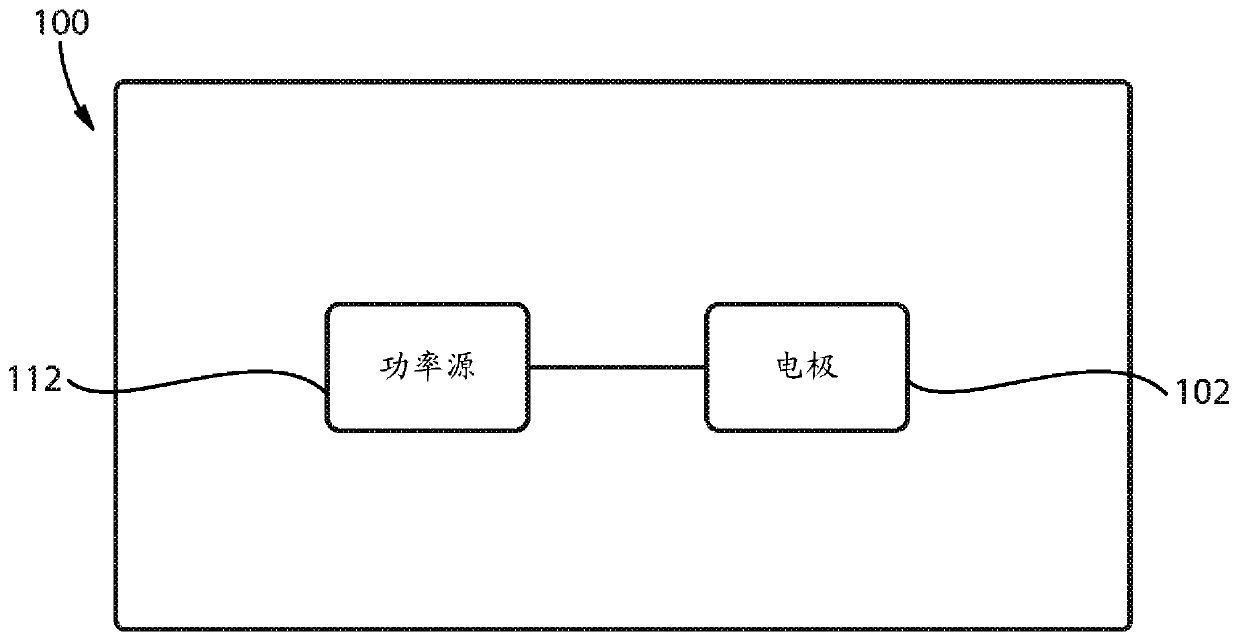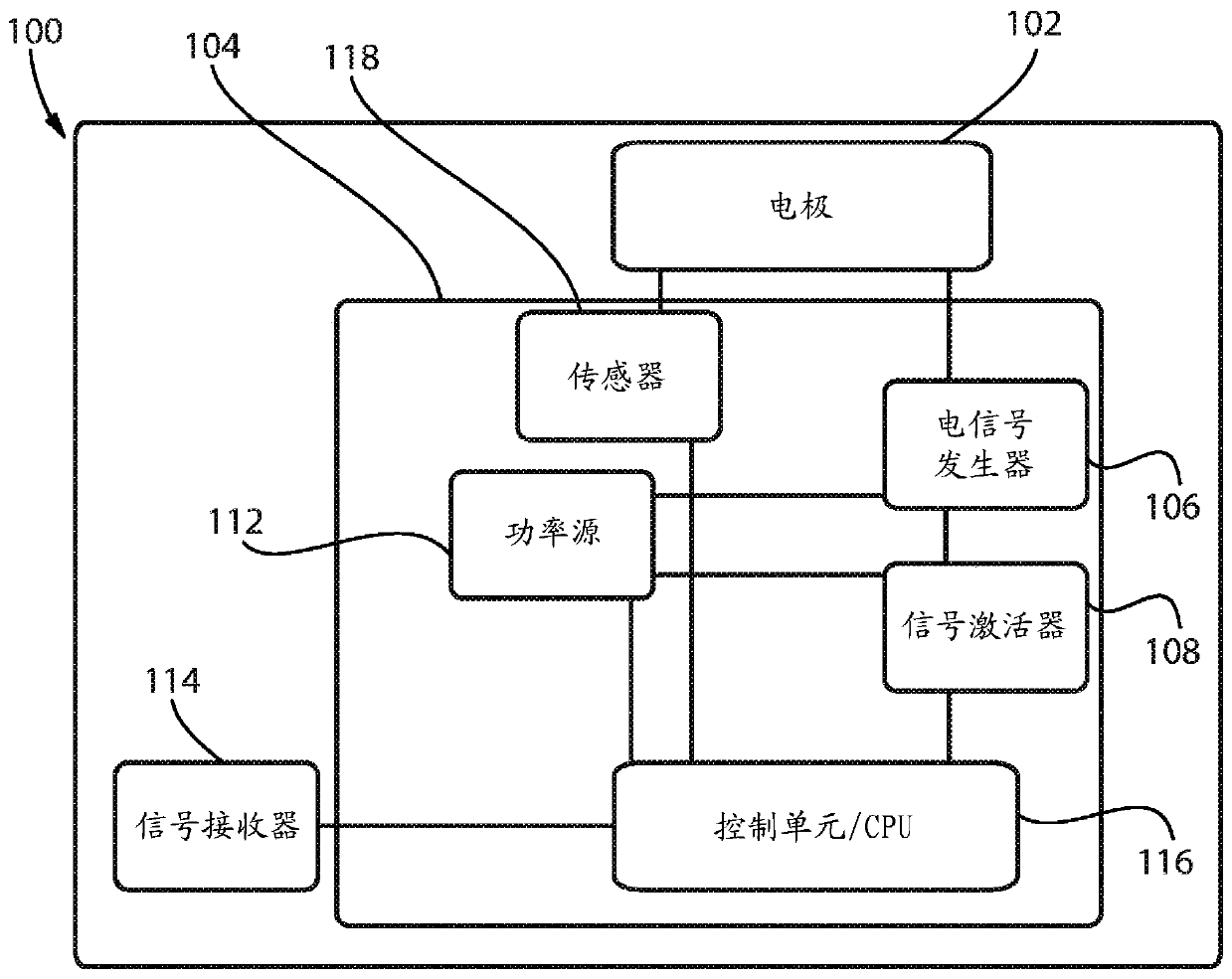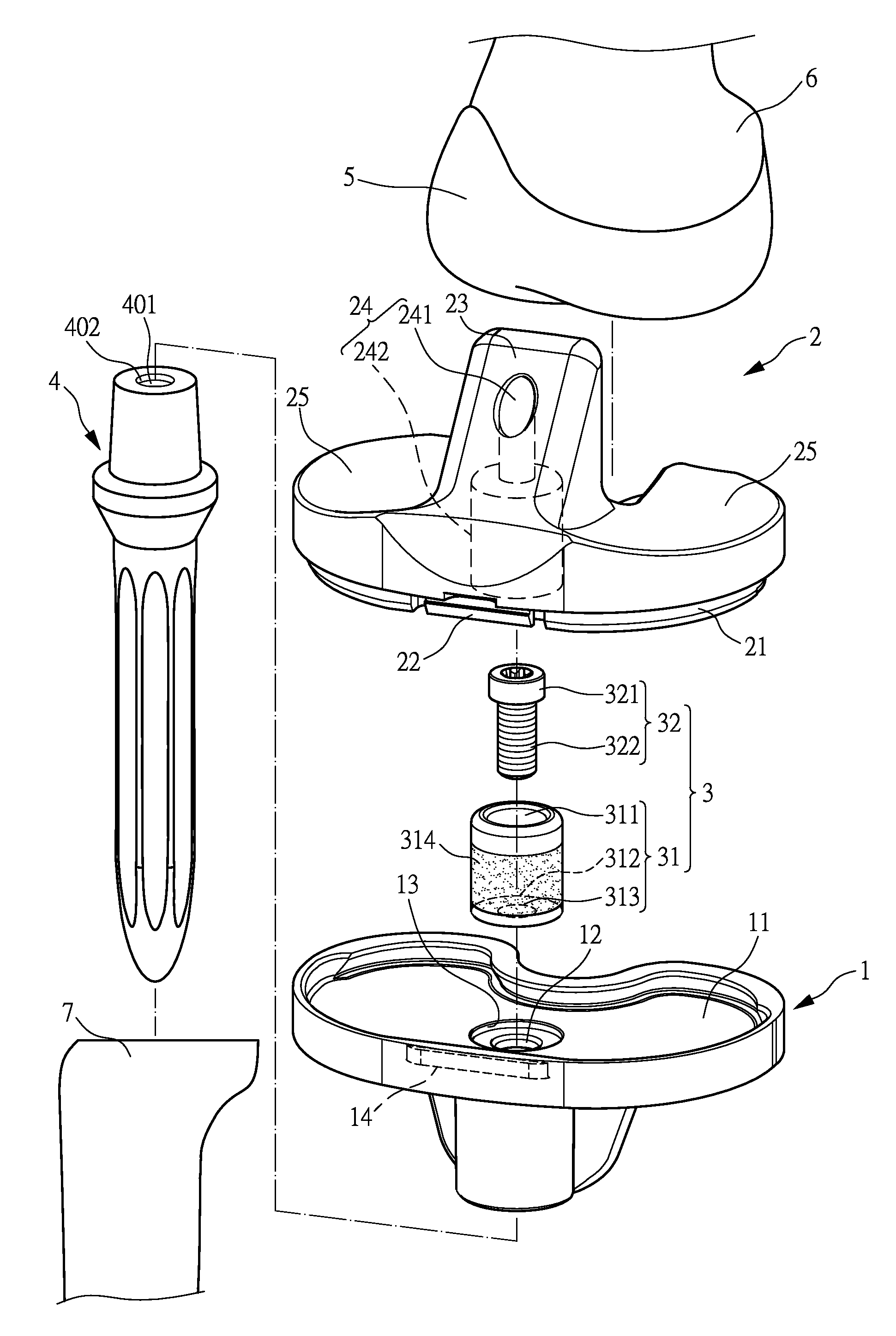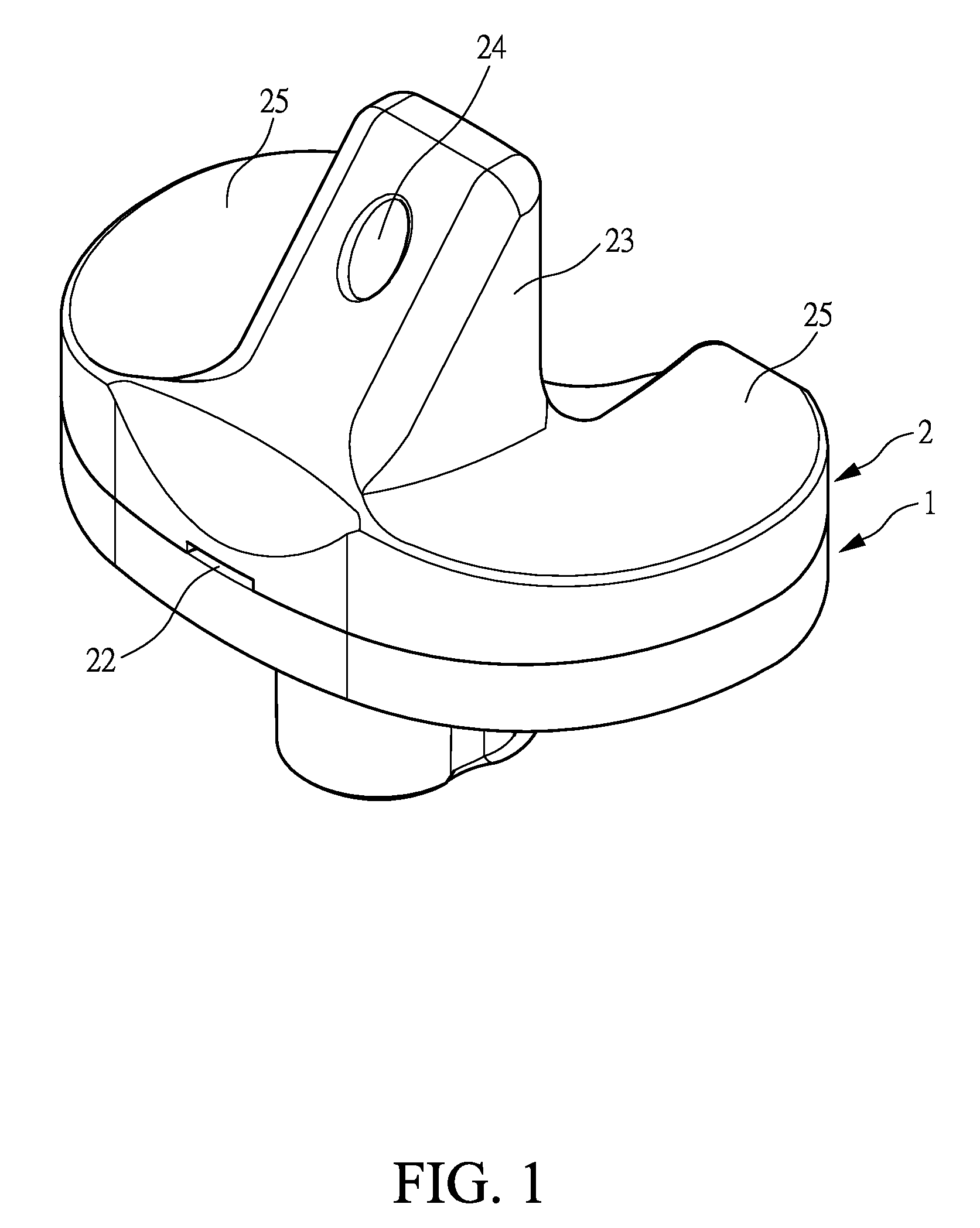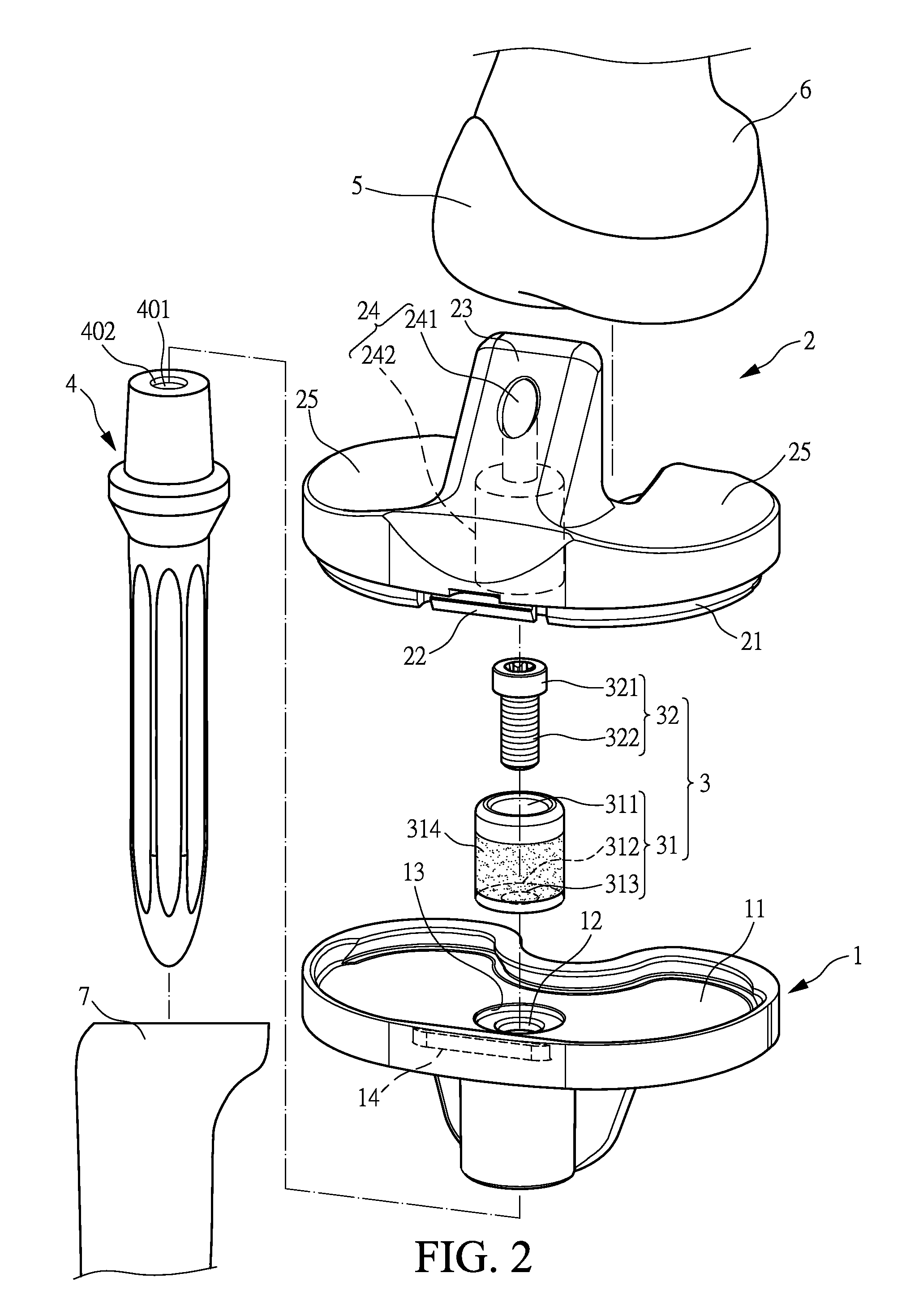Patents
Literature
30 results about "Tibial nerve" patented technology
Efficacy Topic
Property
Owner
Technical Advancement
Application Domain
Technology Topic
Technology Field Word
Patent Country/Region
Patent Type
Patent Status
Application Year
Inventor
The tibial nerve is a branch of the sciatic nerve. The tibial nerve passes through the popliteal fossa to pass below the arch of soleus.
Treatment of indications using electrical stimulation
ActiveUS20110282412A1Promote wound healingReduce joint painElectrotherapyArtificial respirationElectrical conductorElectrical stimulations
In one embodiment, a method includes implanting an implant entirely under the subject's skin. The implant includes a passive electrical conductor of sufficient length to extend from subcutaneous tissue located below one of a surface cathodic electrode and a surface anodic electrode to the tibial nerve. The surface electrodes are positioned in spaced relationship on the subject's skin, with one of the electrodes positioned over the pick-up end of the electrical conductor such that the portion of the current is transmitted through the conductor to the tibial nerve, and such that the current flows through the tibial nerve and returns to the other of the surface cathodic electrode and the surface anodic electrode. An electrical current is applied between the surface cathodic electrode and the surface anodic electrode to cause the portion of the electrical current to flow through the implant to stimulate the tibial nerve.
Owner:BIONESS
Hinged joint system
Methods, systems, and devices for replacement of a joint with a prosthetic system that replicates the natural kinematics of the joint is disclosed. A prosthetic system according to one embodiment includes a tibial component having a tibial plateau and a tibial stem portion, the tibial plateau having a top side and a bottom side, a tibial insert, with a bearing surface, adapted to be positioned on the top side of the tibial plateau, a femoral component having a base portion and a central housing, the femoral component having an axis of extension-flexion rotation, the base portion having a pair of condyles, a mechanical linkage component linking the tibial component with the femoral component and with the tibial insert in between the tibial component and the femoral component, so that there is a center of contact between the condyles and the bearing surface, the mechanical linkage component adapted to allow the center of contact to move posteriorly during flexion, provide for the movement of the axis of extension-flexion rotation in the superior-inferior direction, and allow rotation of the tibial component, the bearing surface, and the femoral component about a superior-inferior axis in order to provide and control the natural kinematics of the knee joint.
Owner:SMITH & NEPHEW INC
Methods for treating urinary and fecal incontinence
InactiveUS20090076565A1Symptoms improvedInternal electrodesExternal electrodesFecal incontinencePelvic diaphragm muscle
Non-surgical methods for treating pelvic floor muscular dysfunctional disorders are provided. The method combines pelvic floor muscle training (PFMT), biofeedback and pelvic floor exercises, pudental and hypogastric nerve neuromodulation (electrical stimulation), and tibial nerve neuromodulation (PTNS).
Owner:STATE OF
Knee prosthesis system with at least a first tibial portion element (a tibial insert or tibial trial) and a second tibial portion element (a tibial insert or tibial trial), wherein each of the first tibial portion element and the second tibial portion element has a different slope
One embodiment of the present invention relates to a knee prosthesis system with at least a first tibial portion element (a tibial insert or a tibial insert trial) and a second tibial portion element (a tibial insert or a tibial insert trial), wherein each of the first tibial portion element and the second tibial portion element has a different slope. Another embodiment of the present invention relates to a method of implanting a knee prosthesis, wherein the method utilizes at least a first tibial portion element (a tibial insert or a tibial insert trial) and a second tibial portion element (a tibial insert or a tibial insert trial), wherein each of the first tibial portion element and the second tibial portion element has a different slope.
Owner:EXACTECH INC
Mobile talar component for total ankle replacement implant
InactiveUS6939380B2Extended range of motionExtend your lifeAnkle jointsJoint implantsTibiaSacroiliac joint
An ankle prosthesis includes a tibial device attachable to a tibia. The tibial device has a concave articulating surface. A talar assembly includes a dome portion having a convex articulating surface engaging the concave articulating surface of the tibial device such that the dome portion is pivotable relative to the tibial device. The talar assembly also includes a base portion attachable to a talus. The base portion is pivotable relative to the dome portion.
Owner:DEPUY PROD INC
Knee joint prosthesis
InactiveUS20060161259A1Life span of the prosthetic knee joint increasesExtend your lifeJoint implantsKnee jointsTibiaThigh
An improved knee joint prosthesis located between a thighbone and a tibia to couple with a femur implanted component to allow a patient to resume normal movement and exercise. The knee joint prosthesis adopts a separate design, and includes a tibial insert which has a moving aperture to hold a bracing member coupled with the femur implanted member and a tibial baseplate which has a retaining member. The bracing member and the retaining member are swivelable in the moving aperture, and the bracing member is made from wearing resistant material, so that sliding and wearing that might otherwise occur to the tibial insert may be prevented. Therefore the life span of the posterior stabilized knee joint prosthesis increases.
Owner:CHENG CHENG KUNG
Apparatus for transcutaneous electrical stimulation of the tibial nerve
InactiveUS9254382B2Low profileThin thicknessExternal electrodesArtificial respirationElectricityPosterior tibial nerve
An electro-acupuncture device for controlling over active bladder is described. The device includes a housing, circuitry for generating electro-acupuncture stimulus disposed within the housing, and at least one strap for securing the housing to the ankle. The device also includes a pair of D-shaped electrodes received within the bottom outer surface of the housing. The housing of the device is flexible with a low profile and is shaped so that it is conformal to a person's ankle. When the device is strapped to a patient's ankle, the electrodes contact the ankle and provide electric stimulation to the tibial nerve within the ankle.
Owner:RELIEF BAND MEDICAL TECH
Hinged joint system
Methods, systems, and devices for replacement of a joint with a prosthetic system that replicates the natural kinematics of the joint is disclosed. A prosthetic system according to one embodiment includes a tibial component having a tibial plateau and a tibial stem portion, the tibial plateau having a top side and a bottom side, a tibial insert, with a bearing surface adapted to be positioned on the top side of the tibial plateau, a femoral component having a base portion and a central housing, the femoral component having an axis of extension-flexion rotation, the base portion having a pair of condyles, a mechanical linkage component linking the tibial component with the femoral component and with the tibial insert in between the tibial component and the femoral component, so that there is a center of contact between the condyles and the bearing surface, the mechanical linkage component adapted to allow the center of contact to move posteriorly during flexion, provide for the movement of the axis of extension-flexion rotation in the superior-inferior direction, and allow rotation of the tibial component, the bearing surface, and the femoral component about a superior-inferior axis in order to provide and control the natural kinematics of the knee joint.
Owner:SMITH & NEPHEW INC
Topical nerve stimulation device
PendingUS20190117974A1External electrodesArtificial respirationPosterior tibial nervePhysical therapy
The present disclosure is directed to a transcutaneous nerve stimulation device and system for treating overactive bladder (OAB) and its symptoms. The devices and systems described herein are intuitively shaped to enable proper placement by the user to stimulate the user's tibial nerve.
Owner:THE PROCTER & GAMBLE COMPANY +1
Structure Improvement Of Orthopaedic Implant
A structure improvement of orthopaedic implant for connecting a distal femur and a proximal tibia, and a stem was implanted into the proximal tibia, inwhich formed to allow inter-engagement between the stem of the tibia and the structure improvement of orthopaedic implant. The structure improvement of orthopaedic implant includes a tibial baseplate, a tibial insert, and a reinforcement. The tibial baseplate forms a recess having a bottom that has a central portion defining a through hole extending through the tibial baseplate. The tibial insert includes a support, a through region, and a projection, wherein an end of the tibial insert forming the projection corresponding to the recess of the tibial baseplate for press-fitting to the tibial baseplate. The reinforcement is inset in the tibial insert and includes a sleeve and a bolt. As such, the advantages of stable coupling includes force resistance, avoids insert loosening then extends prosthetic longevity.
Owner:UNITED ORTHOPEDIC CORP
Implant system with pe insert and two tray options
A tibial implant system has an ultra-high molecular weight polyethylene tibial insert which can engage with either one of two tibial trays through differing means of engagement. The tibial insert includes a locking wire and locking tab disposed along an anterior surface and a locking recess disposed along a posterior surface. A first polymeric tibial tray includes a bead along an anterior wall and an undercut area along a posterior wall. A second metallic tibial tray includes a plurality of barbs along an anterior wall and an undercut area along a posterior wall.
Owner:HOWMEDICA OSTEONICS CORP
Implant system with polymeric insert and two tray options
Owner:HOWMEDICA OSTEONICS CORP
Torque-introducing full joint replacement prosthesis
Owner:DEPUY (IRELAND) LTD
Implants using ultrasonic communication for neural sensing and stimulation
ActiveUS11033746B2Spinal electrodesImplantable neurostimulatorsMedical equipmentElectrical stimulations
Described herein is an implantable medical device that includes a body having one or more ultrasonic transducers configured to receive ultrasonic waves and convert energy from the ultrasonic waves into an electrical energy, two or more electrodes in electrical communication with the ultrasonic transducer, and a clip attached to the body that is configured to at least partially surround a nerve and / or a filamentous tissue and position the two or more electrodes in electrical communication with the nerve. In certain examples, the implantable medical device includes two ultrasonic transducers with orthogonal polarization axes. Also described herein are methods for treating incontinence in a subject by converting energy from ultrasonic waves into an electrical energy that powers a full implanted medical device, and electrically stimulating a tibial nerve, a pudendal nerve, or a sacral nerve, or a branch thereof, using the fully implanted medical device.
Owner:IOTA BIOSCI INC
Methods and Systems for Treating Overactive Bladder Using an Implantable Electroacupuncture Device
An exemplary electroacupuncture device includes a central electrode of a first polarity centrally located on a surface of a housing of the electroacupuncture device and an annular electrode of a second polarity that is spaced apart from the central electrode. The electroacupuncture device is implanted beneath a skin surface of a patient at an acupoint corresponding to a tibial nerve and performs methods for treating overactive bladder in the patient. One exemplary method performed by the electroacupuncture device includes generating stimulation sessions each including a series of stimulation pulses and having a duty cycle less than 0.05, wherein the duty cycle is a ratio of a duration of each stimulation session to a rate at which each stimulation session occurs. The exemplary method also includes applying the stimulation sessions to the tibial nerve by way of the central electrode and the annular electrode in accordance with the duty cycle.
Owner:VALENCIA TECH
Tibial insert and associated surgical method
A tibial insert includes a platform defining an upper bearing surface and a bottom surface. A keel of the tibial insert is coupled to the bottom surface of the platform. A surgical method for knee anthroplasty is also disclosed.
Owner:DEPUY PROD INC
Surgical instrument
ActiveUS8597302B2Reliably impactEasy to clean and steriliseJoint implantsKnee jointsMedicineKnee Joint
A multi-function impactor for use with an orthopaedic implant, such as a knee joint, is described. The head of the impactor has a pair of curved recesses for mating with condylar parts of a femoral implant and flat faces for mating with a tibial implant. An extended formation is also provided for use with the inter-condylar notch of the femoral implant. A v-shaped notch in the extended formation is also provided to impact a tibial insert. The impactor can be made from a single moulded plastics part.
Owner:DEPUY (IRELAND) LTD
Nocturia Reduction System
ActiveUS20190143108A1Physical therapies and activitiesHealth-index calculationMedicinePosterior tibial nerve
Example inventions reduce nocturia for a user. Examples determine that the user is sleeping, determine that the user has an urge to urinate, and then apply external electrical stimulation to a tibial nerve of the user.
Owner:NEUROSTIM SOLUTIONS LLC
Revision stepped tibial implant
Owner:MICROPORT ORTHOPEDICS INC
Tibial insert locking mechanism
A tibial implant includes a baseplate having a proximally facing surface surrounded at least in part by a proximally extending wall. The wall has a ramp surface extending from the wall towards the baseplate proximally facing baseplate surface and a bore located distally of the ramp. A polyethylene bearing insert is mounted on the baseplate and has a distally facing surface engaging the proximally facing surface of the baseplate. The distally facing bearing insert surface has a recess and the insert has a side surface with a passageway extending from the recess through the insert side surface. A spring detent is mounted in the bearing insert recess and has a moveable pin biased outwardly of the bearing insert side surface and into the bore of the baseplate.
Owner:HOWMEDICA OSTEONICS CORP
Constipation and Fecal Incontinence Treatment System
Embodiments treat constipation and fecal incontinence by affixing a patch externally on a dermis of a user adjacent to a tibial nerve of the user, the patch including a flexible substrate, a processor directly coupled to the substrate, and electrodes directly coupled to the substrate. The patch is then activated to initiate a treatment session, the activating including generating electrical stimuli via the electrodes that is directed to the tibial nerve.
Owner:NEUROSTIM TECH LLC
Treatment of indications using electrical stimulation
ActiveUS9925374B2Promote wound healingReduce joint painElectrotherapyArtificial respirationElectrical conductorEngineering
In one embodiment, a method includes implanting an implant entirely under the subject's skin. The implant includes a passive electrical conductor of sufficient length to extend from subcutaneous tissue located below one of a surface cathodic electrode and a surface anodic electrode to the tibial nerve. The surface electrodes are positioned in spaced relationship on the subject's skin, with one of the electrodes positioned over the pick-up end of the electrical conductor such that the portion of the current is transmitted through the conductor to the tibial nerve, and such that the current flows through the tibial nerve and returns to the other of the surface cathodic electrode and the surface anodic electrode. An electrical current is applied between the surface cathodic electrode and the surface anodic electrode to cause the portion of the electrical current to flow through the implant to stimulate the tibial nerve.
Owner:BIONESS
Wearable non-invasive apparatus for and method of enhancing lower limbs venous return of a subject
In various embodiments, a wearable non -invasive apparatus for enhancing lower limb venous return of a subject may be provided. The apparatus may include a monitoring device configured to determine avenous state of a subject such as a photoplethysmography (PPG) sensor. The apparatus may also include a neuromuscular electrical stimulation (NMES) device configured to generate an electrical stimulusin response to the determinedvenous state and concurrently stimulate the triceps surae and the deep posterior calf muscle of the subject with the generated electrical stimulus to enhance lower limb venous return. In an alternative embodiment, electrical stimulation can be at the tibial nerve of the subject to retrograde target the triceps surae and the deep posterior calf muscle of the subject.
Owner:AGENCY FOR SCI TECH & RES
A kind of posterior tibial vascular nerve protector
ActiveCN108635058BAvoid injurySolve the problem of vascular nerve injuryDiagnosticsSurgeryOrthopedic departmentPosterior tibialis
The invention discloses a posterior vascular nerve protector of a tibia, and belongs to the technical field of orthopedic medical instruments. The protector is applied to the fracture of a tibial plateau and used for protecting posterior vascular nerves of the tibia. The protector is characterized in that a protecting plate is a rectangular plate, the rear end of the protective plate is connectedwith the lower end of a sleeve tube through a rotary shaft, a thread is arranged in an inner hole of the sleeve tube, a thread matching with the inner hole thread of the sleeve tube is arranged on a screw rod, the lower portion of the screw rod is screwed in the sleeve tube, the rear portion of the protective plate is provided with a connecting plate shaft which is connected with the lower end ofa connecting plate, the connecting plate is parallel to the sleeve tube, the upper end of the connecting plate is perpendicularly connected with the front end of a handle, the handle is horizontally placed, a circular hole is formed in the front portion of the handle, and the screw rod perpendicularly penetrates through the circular hole of the handle and is connected with the handle. By means ofthe protector, the difficult problem of how to prevent from the posterior vascular nerves of the tibia from damaging during a tibial plateau resetting operation is solved, the popliteal artery and nervi tibialis at the rear side of the tibia can be effectively protected to provide effective technical support for the smooth implementation of the tibial plateau resetting operation, and the protectorhas an extreme practical clinical meaning.
Owner:THE THIRD HOSPITAL OF HEBEI MEDICAL UNIV
Implants using ultrasonic communication for neural sensing and stimulation
Described herein is an implantable medical device that includes a body having one or more ultrasonic transducers configured to receive ultrasonic waves and convert energy from the ultrasonic waves into an electrical energy, two or more electrodes in electrical communication with the ultrasonic transducer, and a clip attached to the body that is configured to at least partially surround a nerve and / or a filamentous tissue and position the two or more electrodes in electrical communication with the nerve. In certain examples, the implantable medical device includes two ultrasonic transducers with orthogonal polarization axes. Also described herein are methods for treating incontinence in a subject by converting energy from ultrasonic waves into an electrical energy that powers a full implanted medical device, and electrically stimulating a tibial nerve, a pudendal nerve, or a sacral nerve, or a branch thereof, using the fully implanted medical device.
Owner:IOTA BIOTECH
Nocturia reduction system
ActiveUS11305113B2Physical therapies and activitiesHealth-index calculationUlnar digital nervePhysical medicine and rehabilitation
Owner:NEUROSTIM SOLUTIONS LLC
Topical nerve stimulation device
PendingCN111491692AExternal electrodesArtificial respirationPosterior tibial nerveHyperactive bladder
Owner:OAB神经电疗科技公司
Wearable non-invasive device and method for enhancing lower extremity venous return in a subject
Owner:AGENCY FOR SCI TECH & RES
Structure improvement of an orthopaedic implant of an artificial knee joint
ActiveUS9044327B2Avoid deformationEnhancing inventiveness and safetyJoint implantsKnee jointsCouplingMedicine
A structure improvement of orthopaedic implant for connecting a distal femur and a proximal tibia, and a stem was implanted into the proximal tibia, in which formed to allow inter-engagement between the stem of the tibia and the structure improvement of orthopaedic implant. The structure improvement of orthopaedic implant includes a tibial baseplate, a tibial insert, and a reinforcement. The tibial baseplate forms a recess having a bottom that has a central portion defining a through hole extending through the tibial baseplate. The tibial insert includes a support, a through region, and a projection, wherein an end of the tibial insert forming the projection corresponding to the recess of the tibial baseplate for press-fitting to the tibial baseplate. The reinforcement is inset in the tibial insert and includes a sleeve and a bolt. As such, the advantages of stable coupling includes force resistance, avoids insert loosening then extends prosthetic longevity.
Owner:UNITED ORTHOPEDIC CORP
Features
- R&D
- Intellectual Property
- Life Sciences
- Materials
- Tech Scout
Why Patsnap Eureka
- Unparalleled Data Quality
- Higher Quality Content
- 60% Fewer Hallucinations
Social media
Patsnap Eureka Blog
Learn More Browse by: Latest US Patents, China's latest patents, Technical Efficacy Thesaurus, Application Domain, Technology Topic, Popular Technical Reports.
© 2025 PatSnap. All rights reserved.Legal|Privacy policy|Modern Slavery Act Transparency Statement|Sitemap|About US| Contact US: help@patsnap.com
